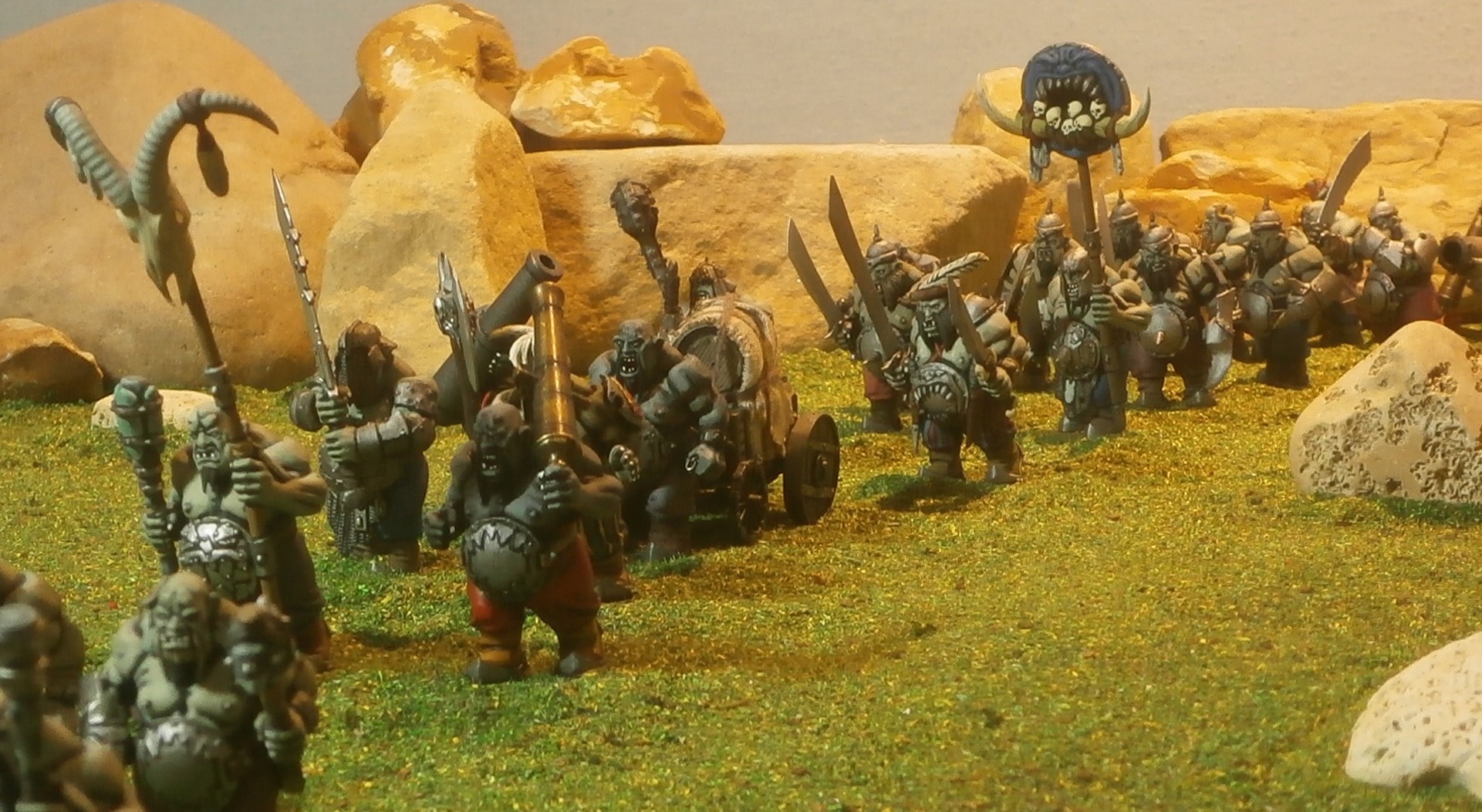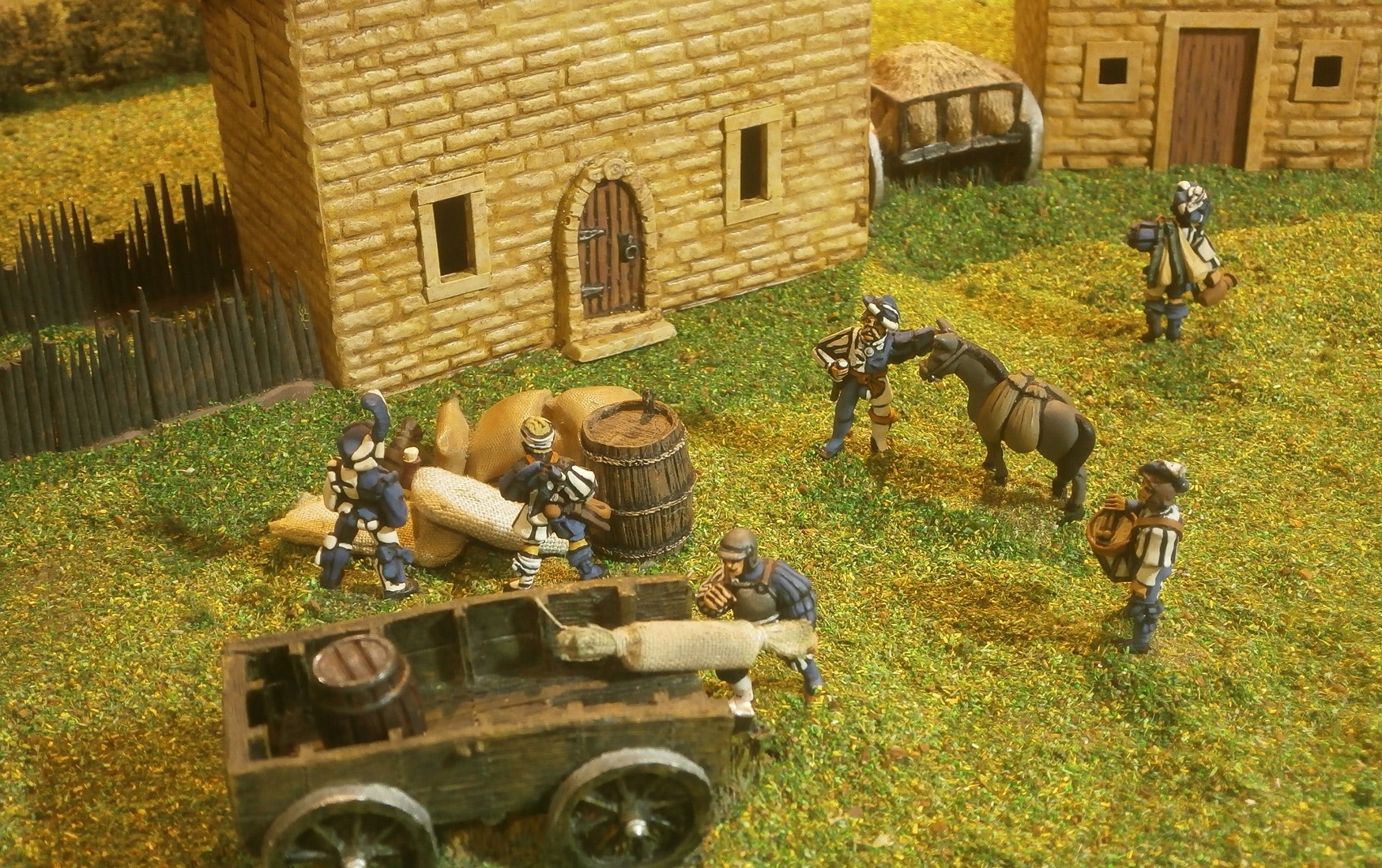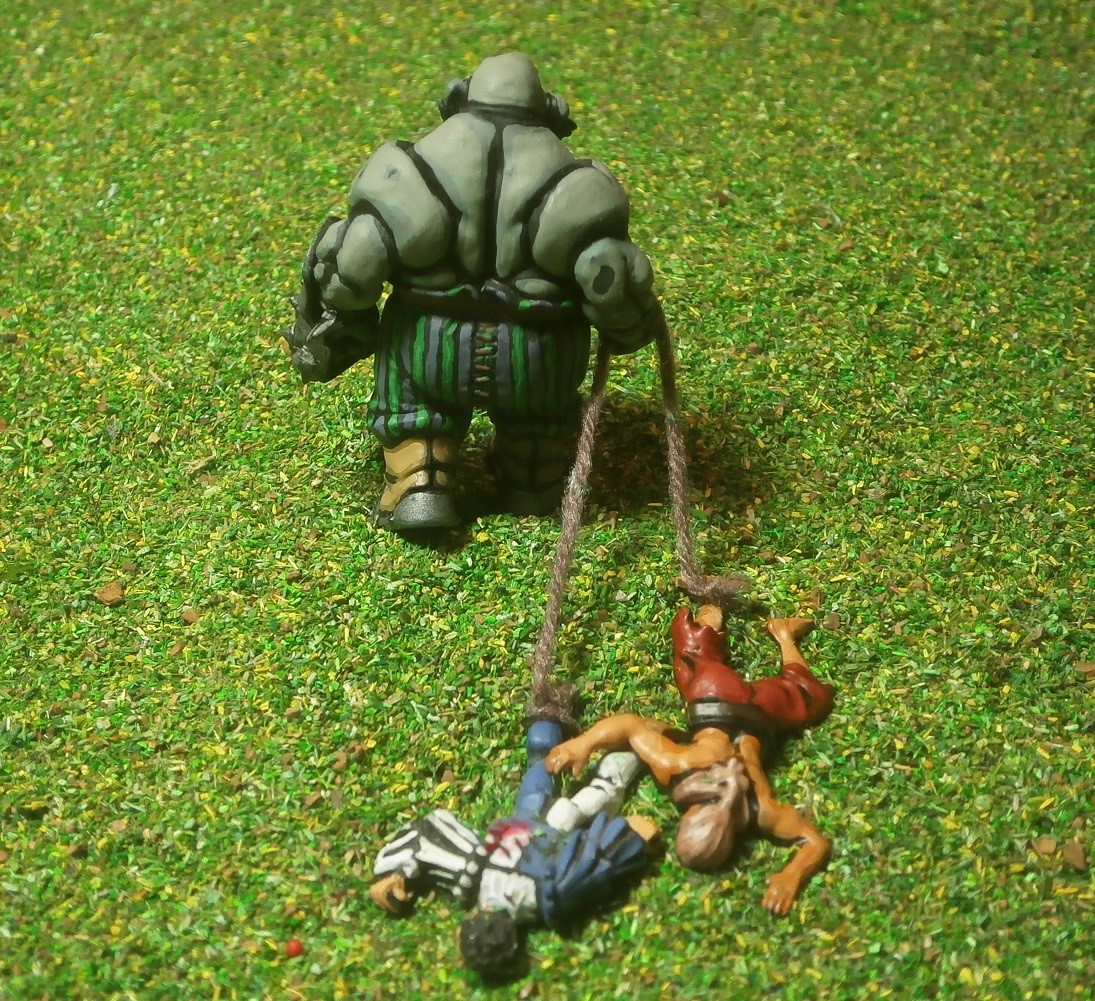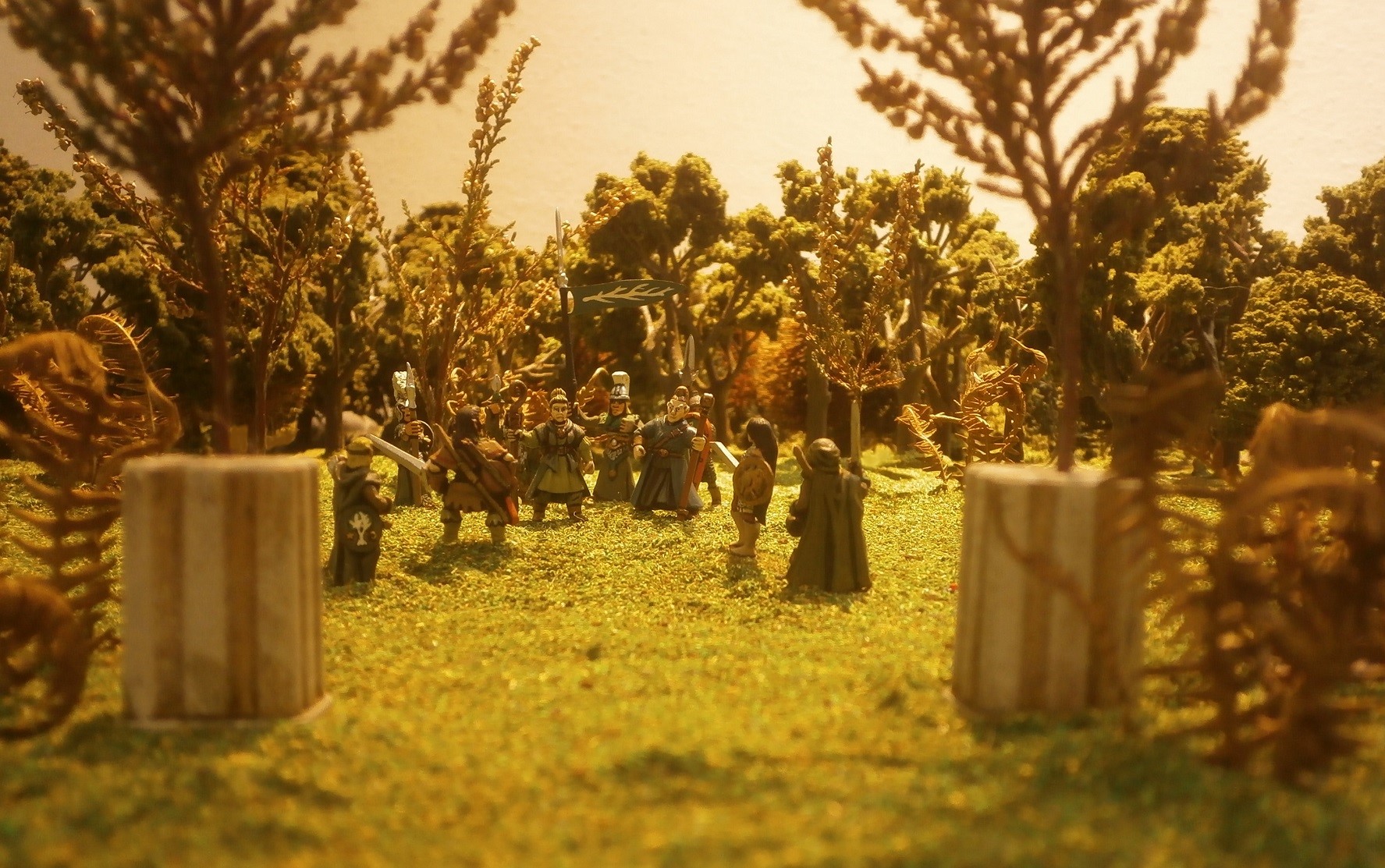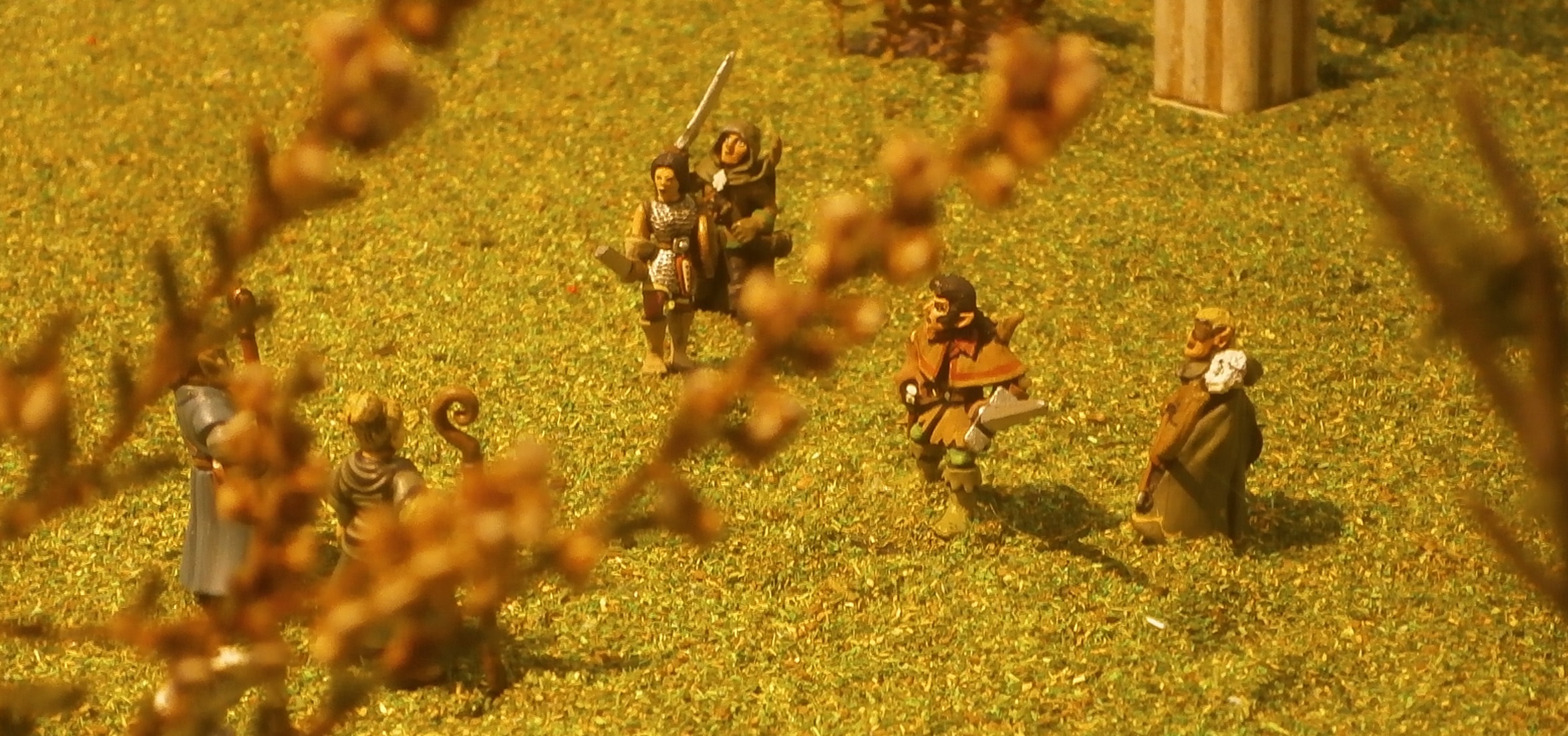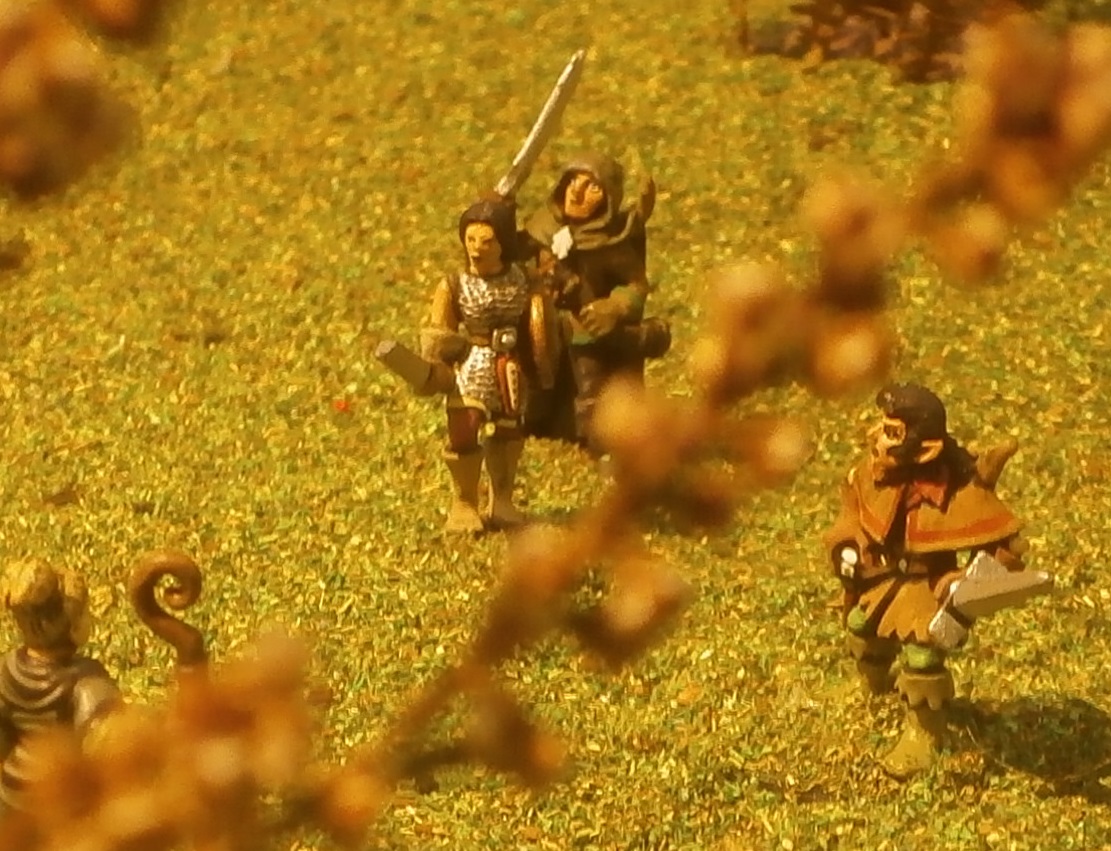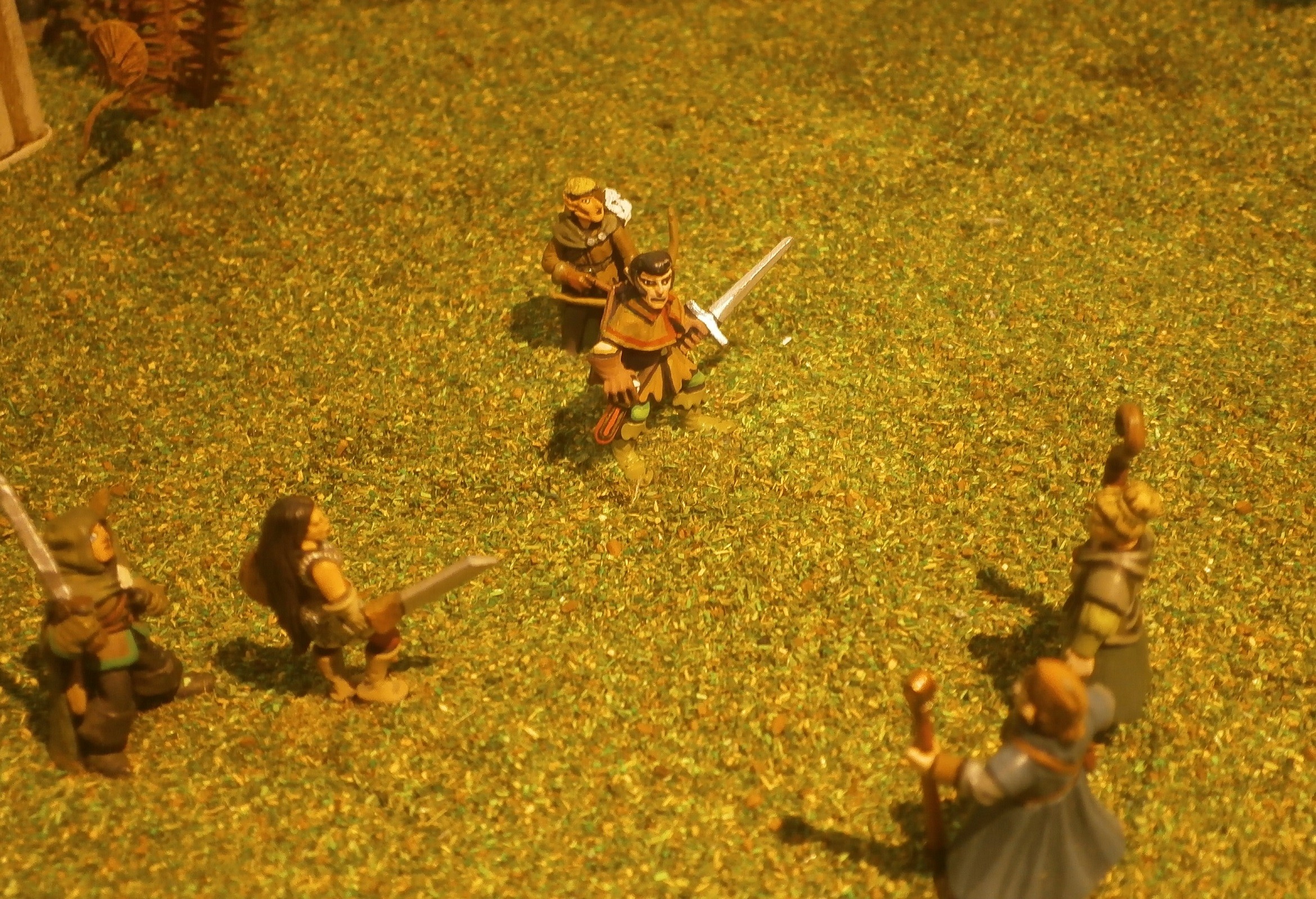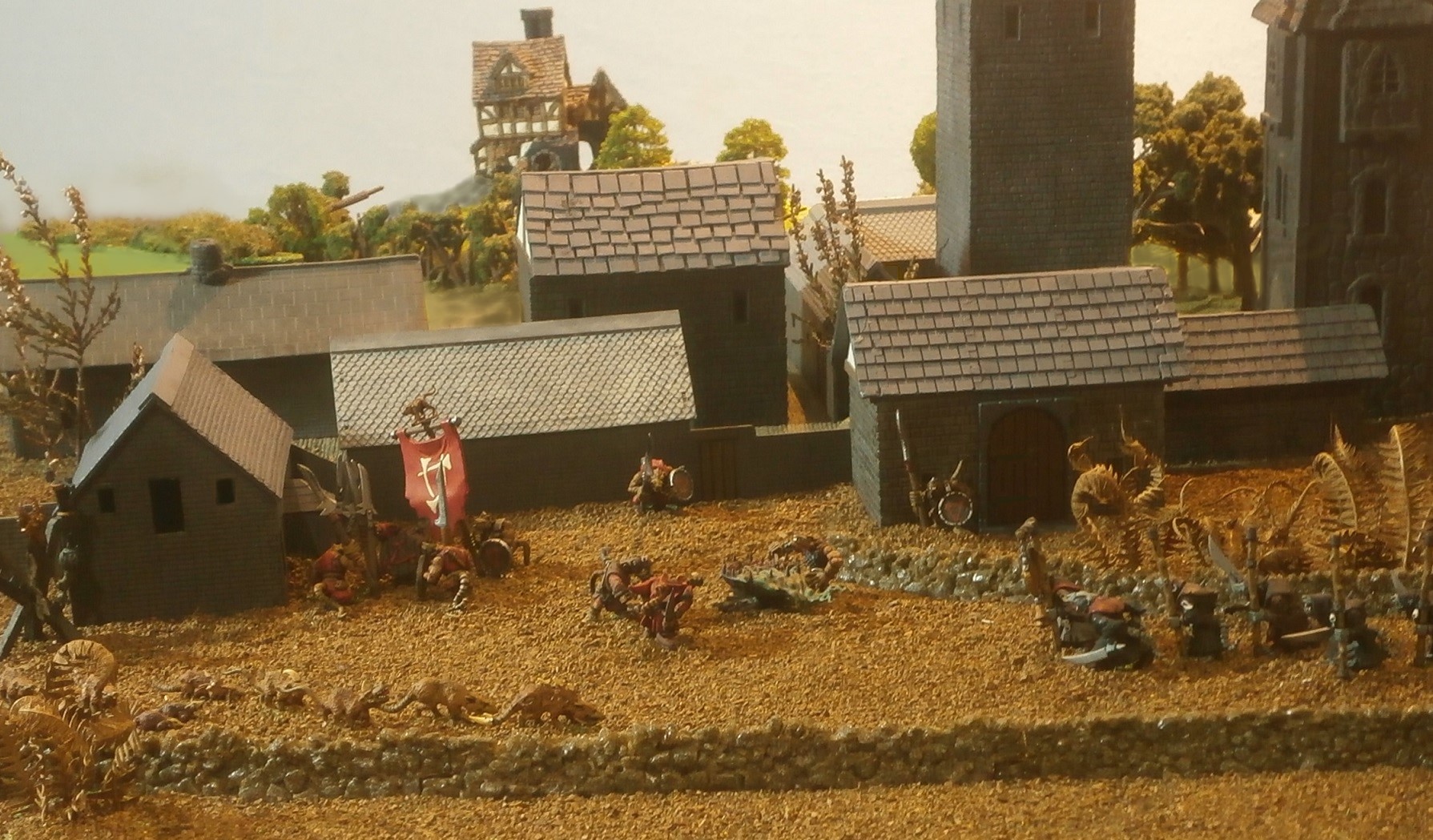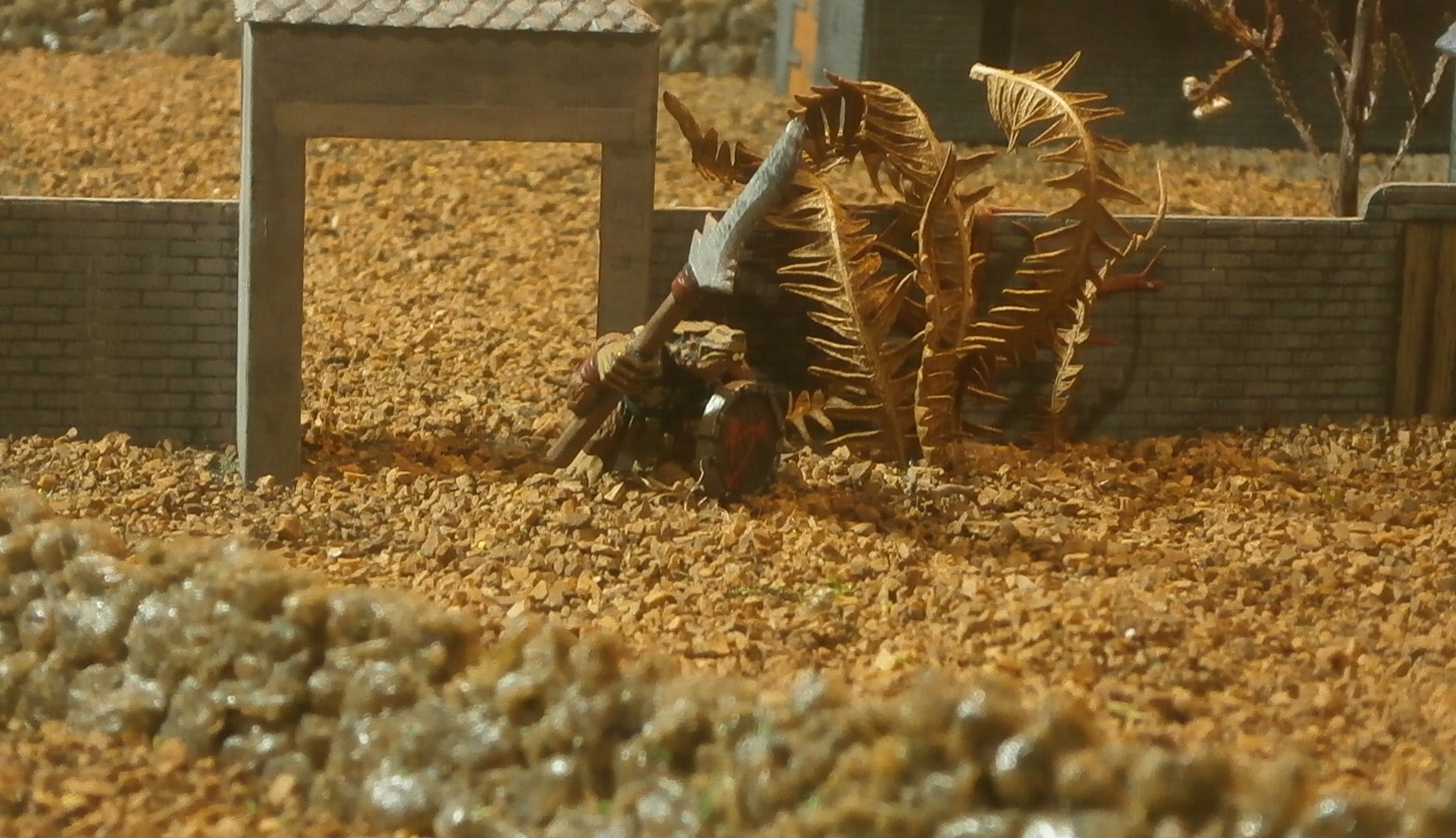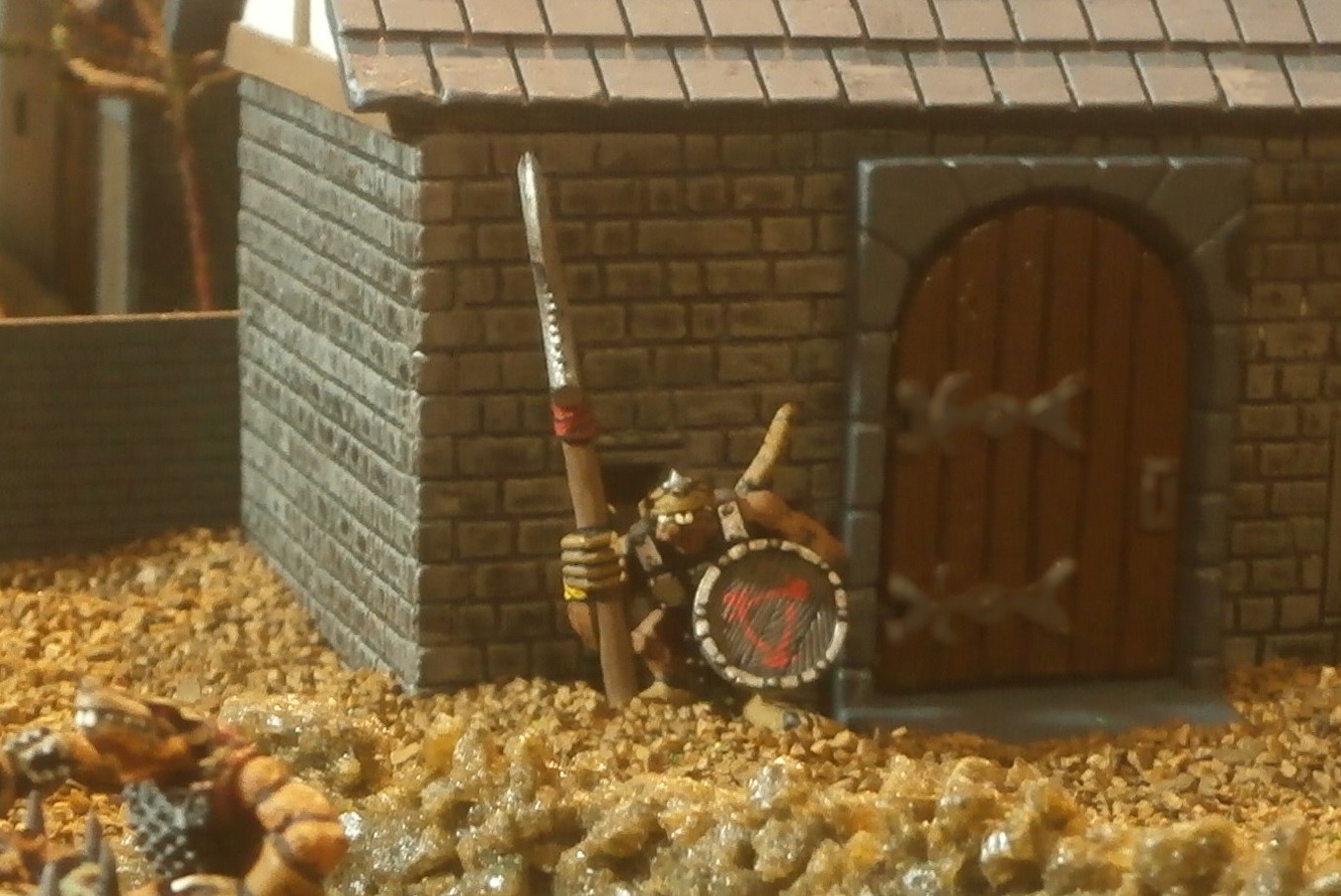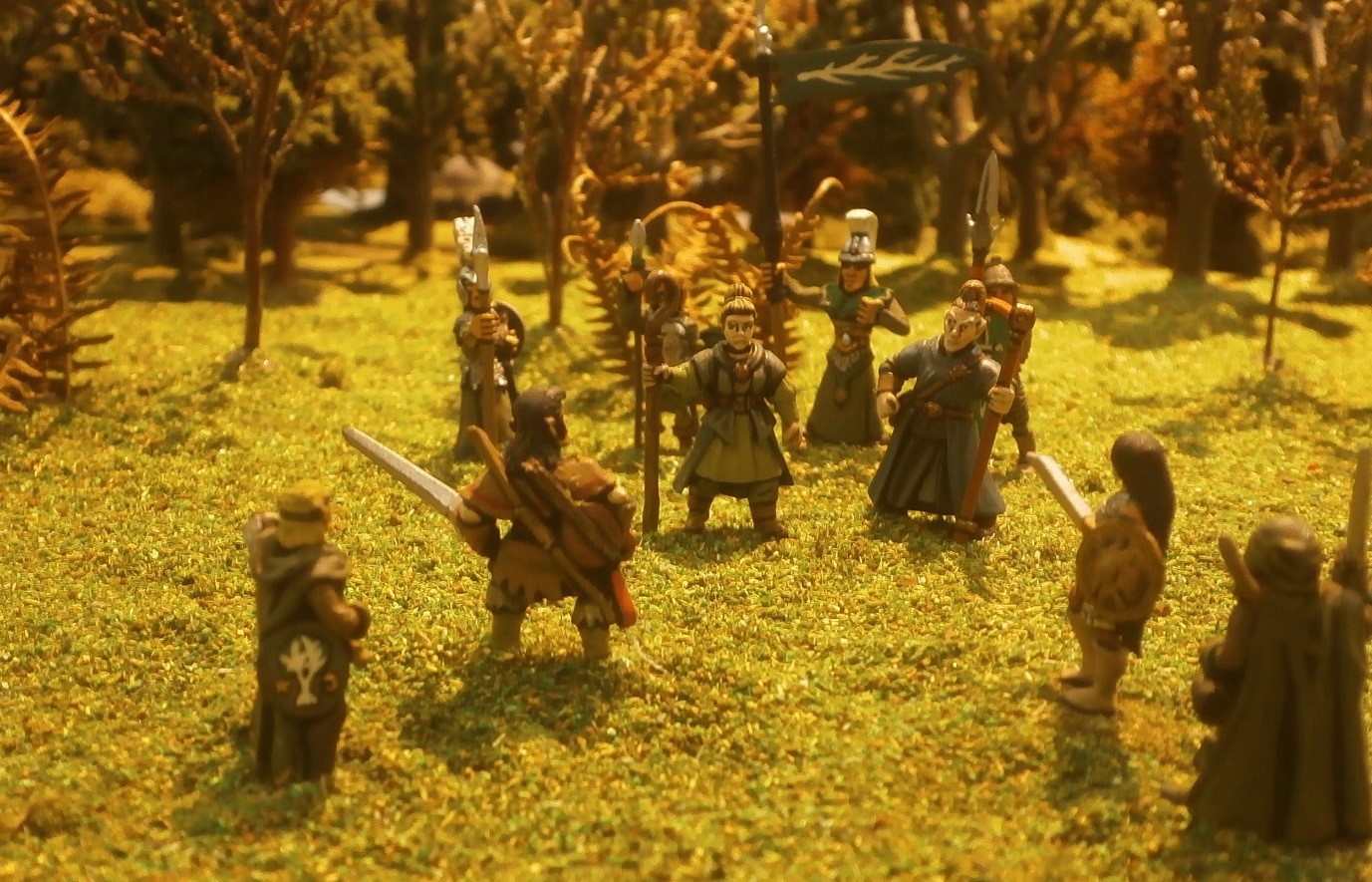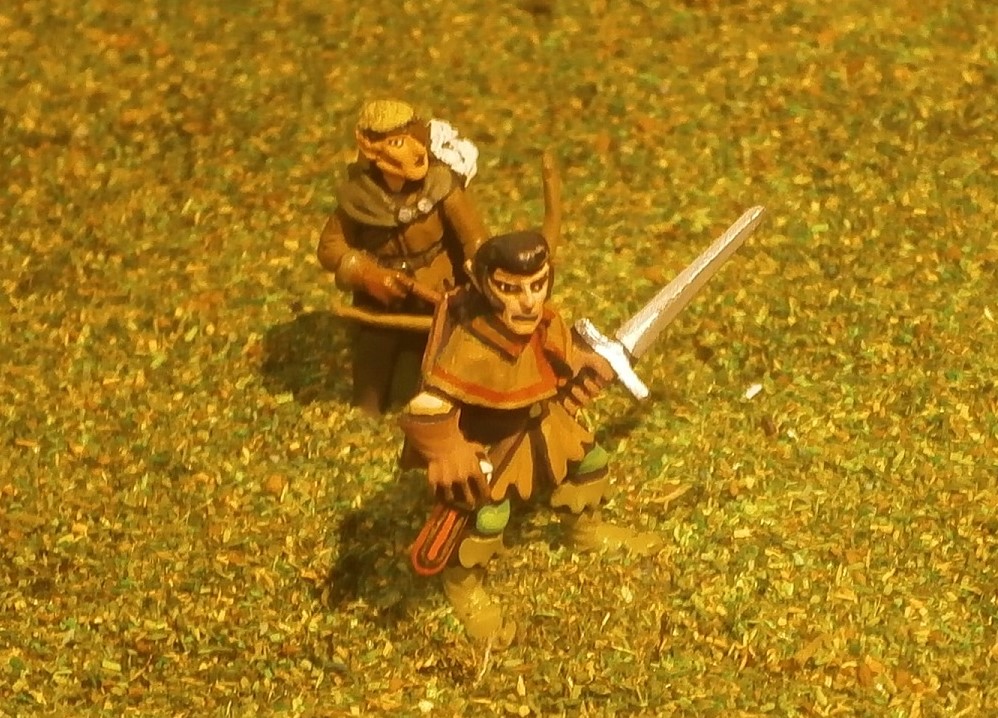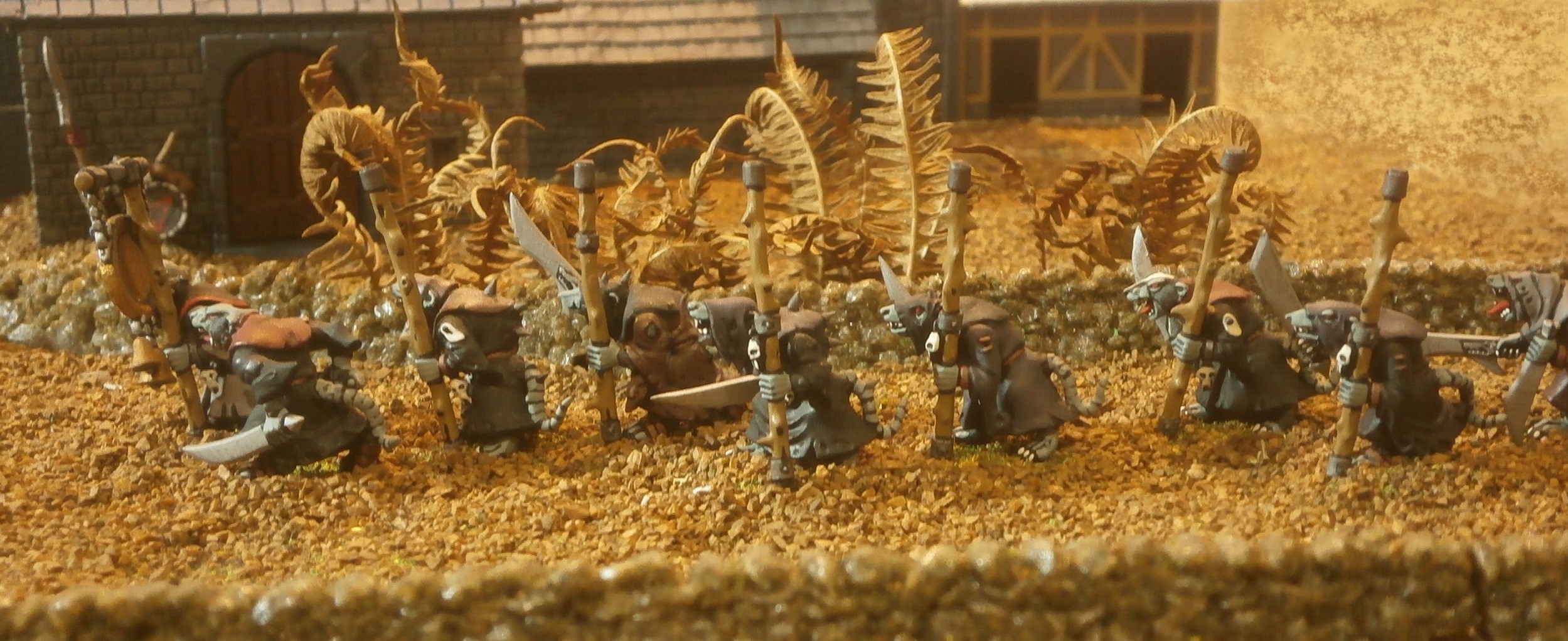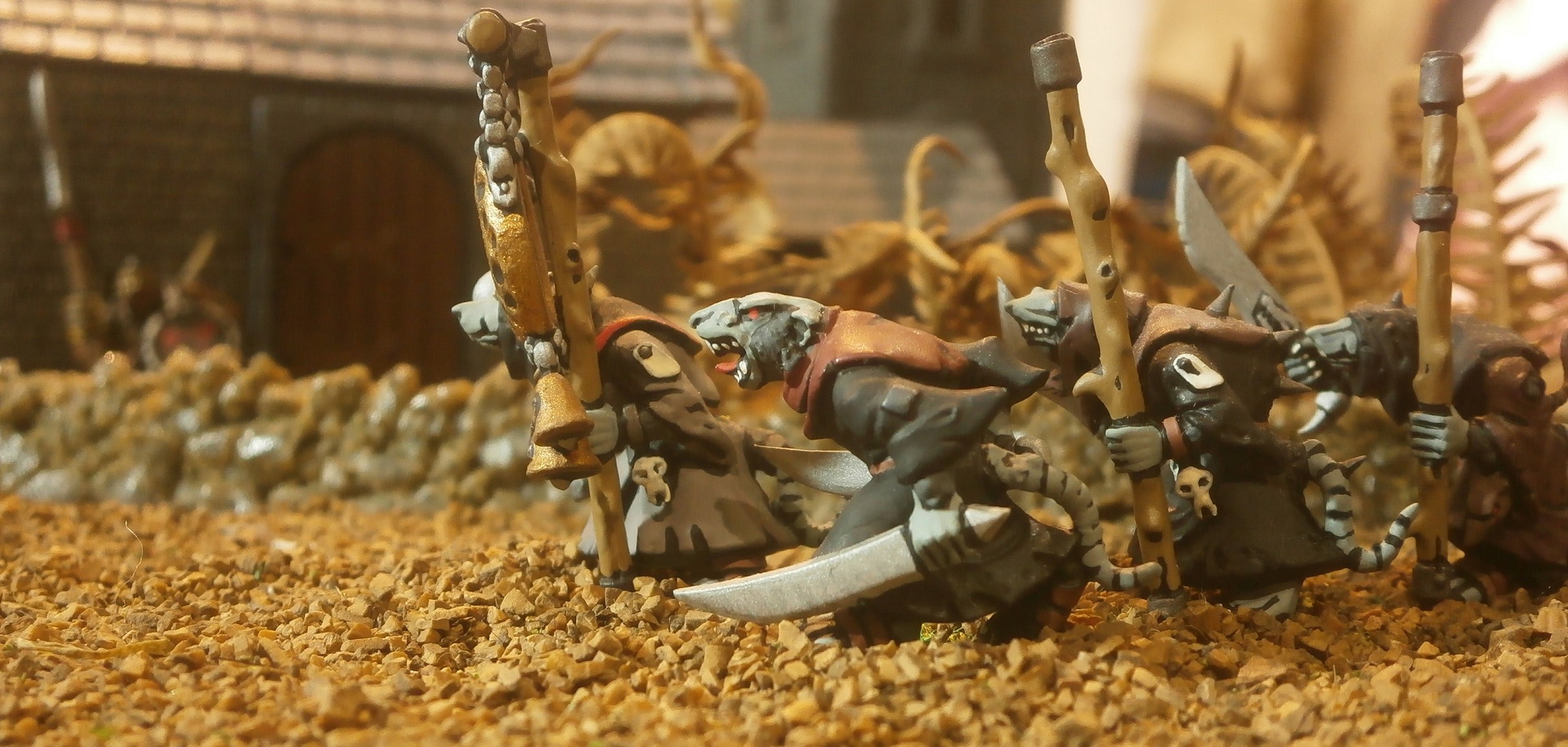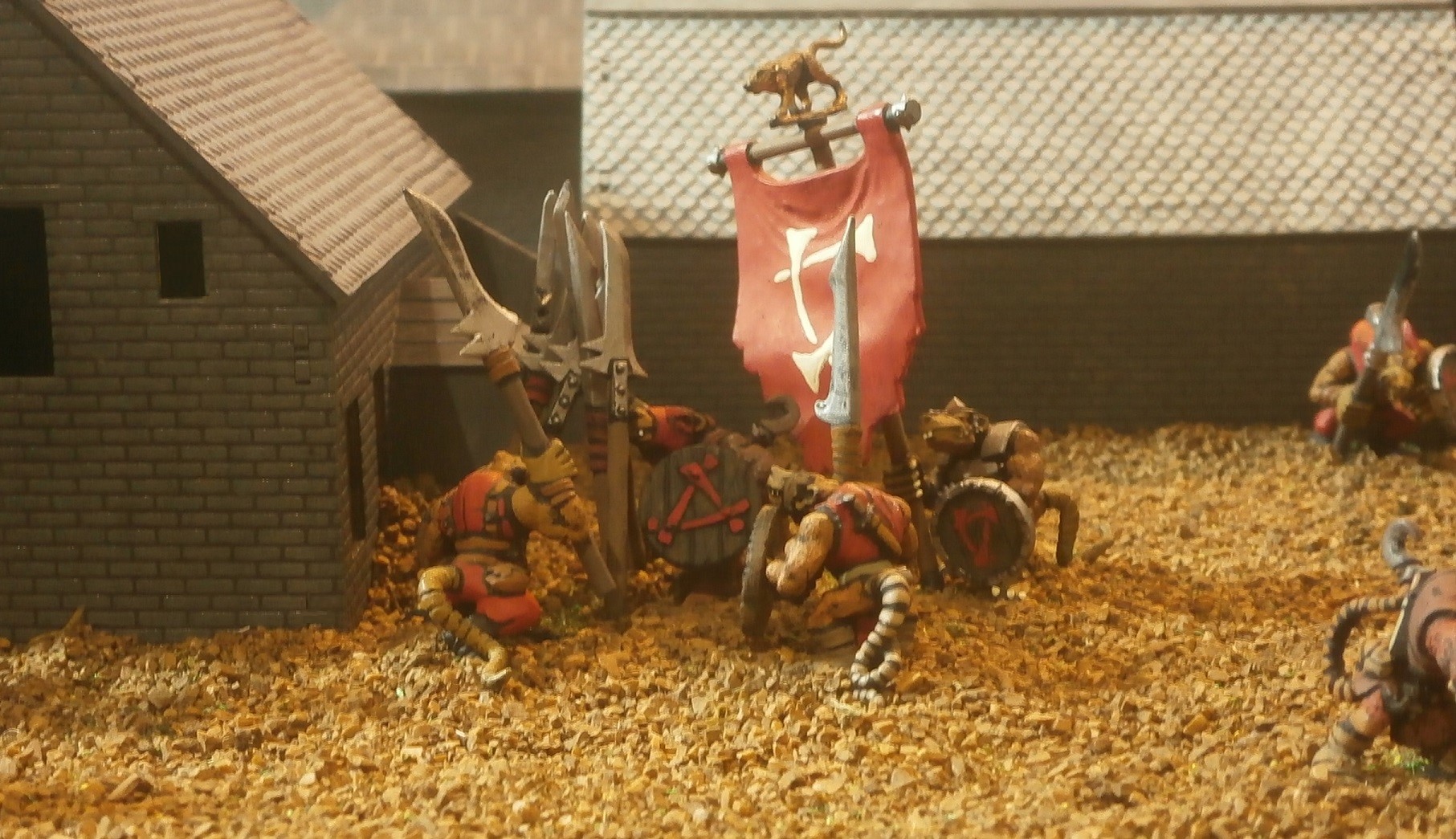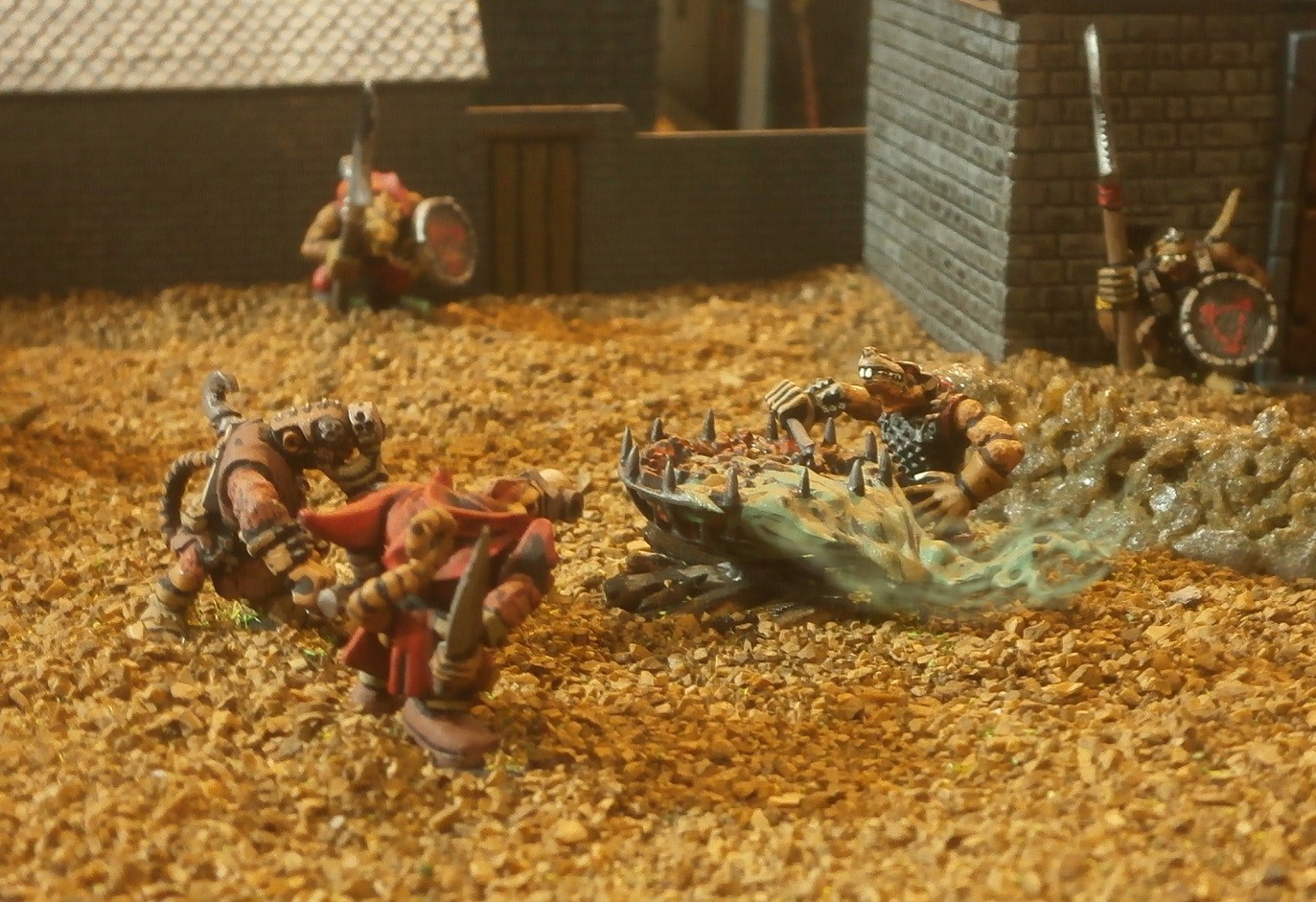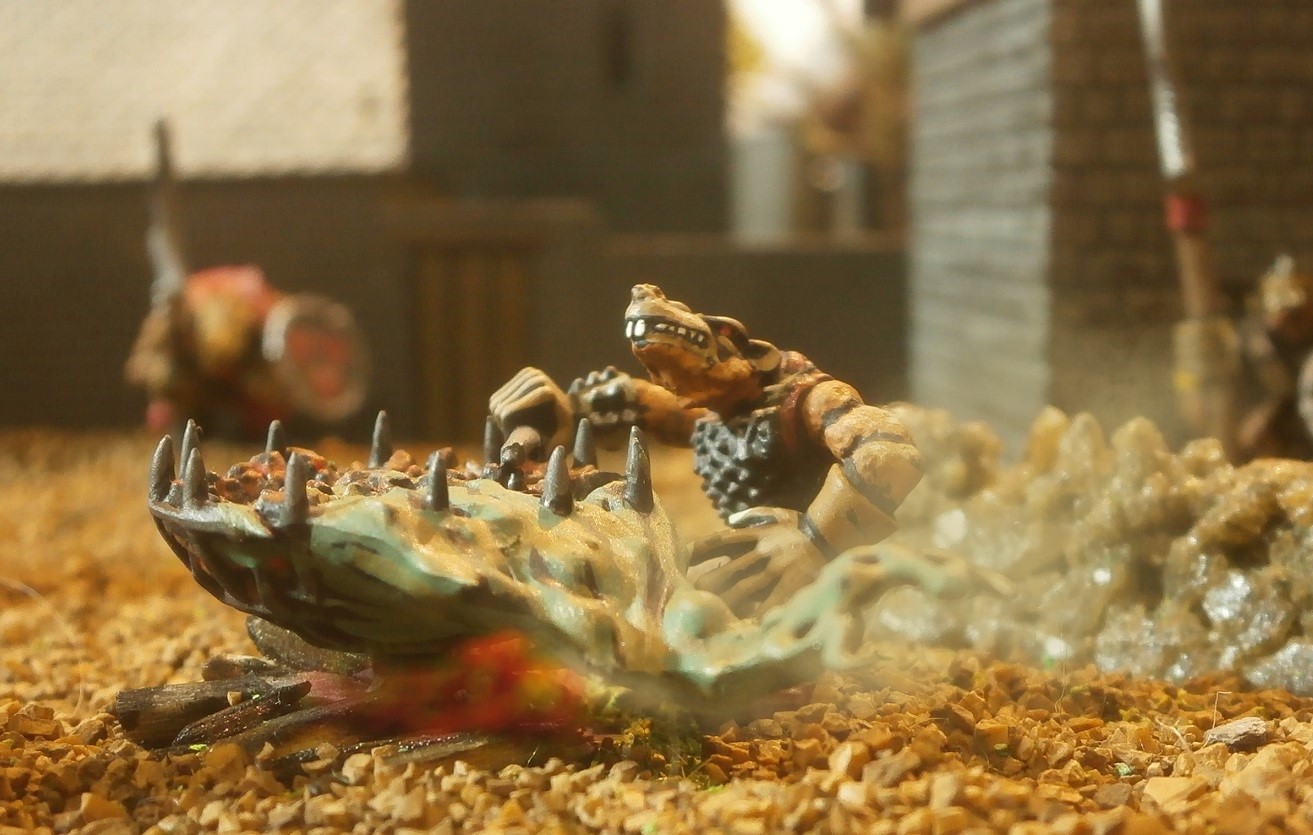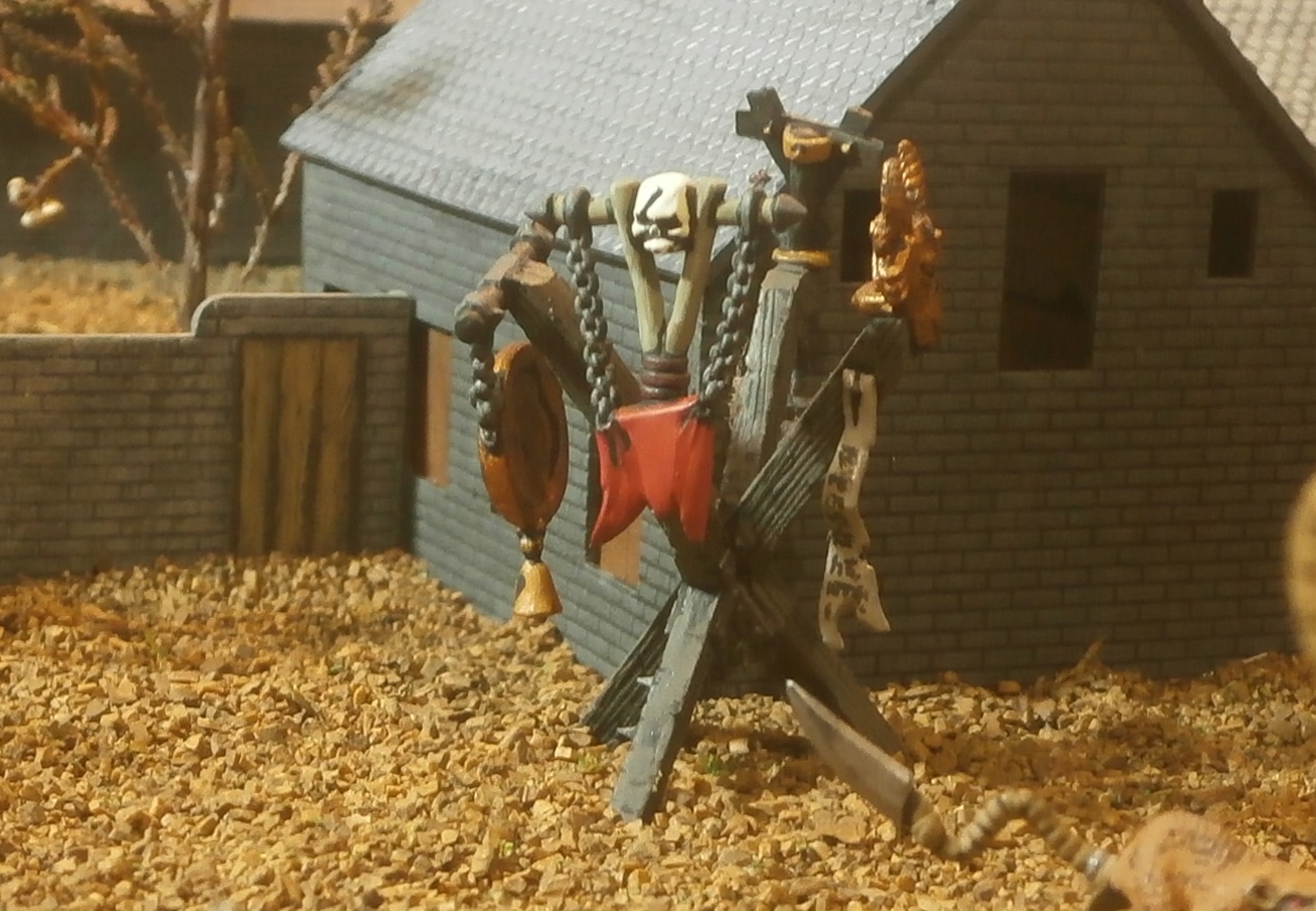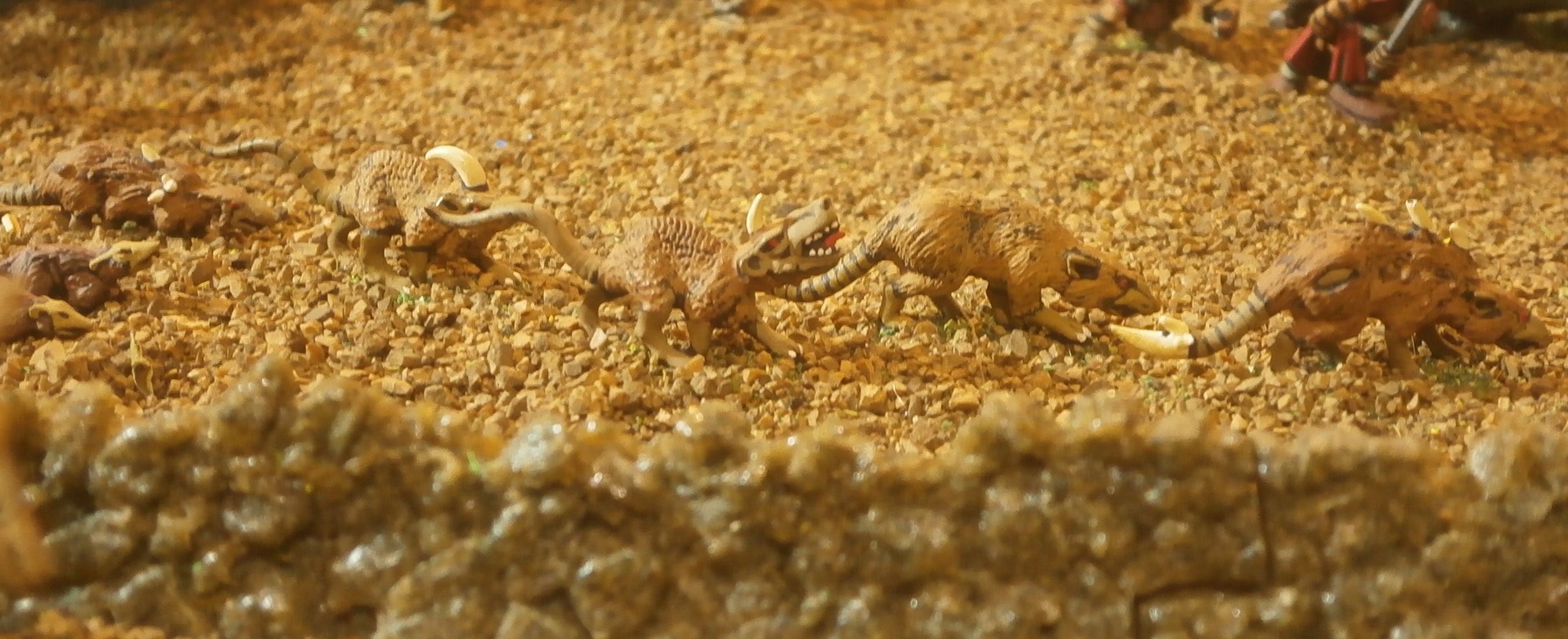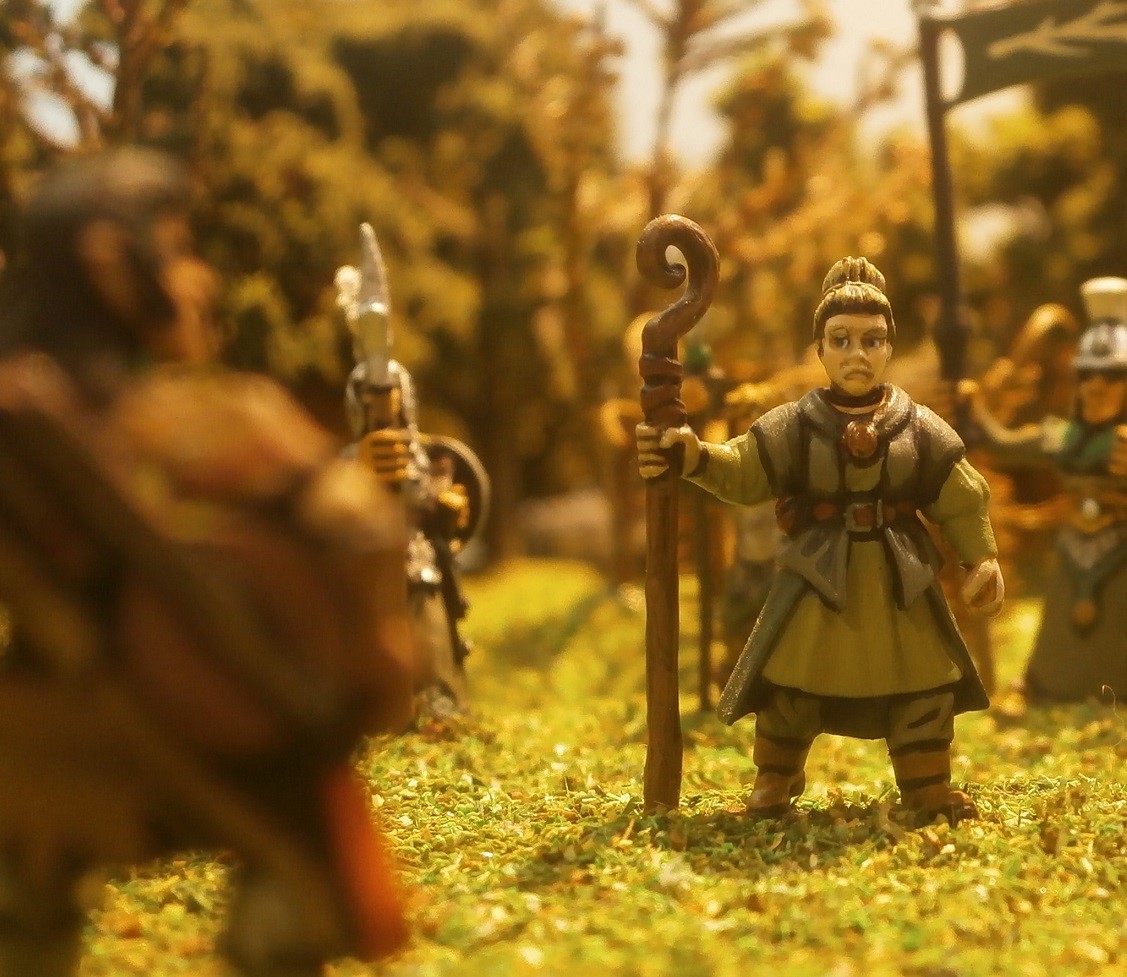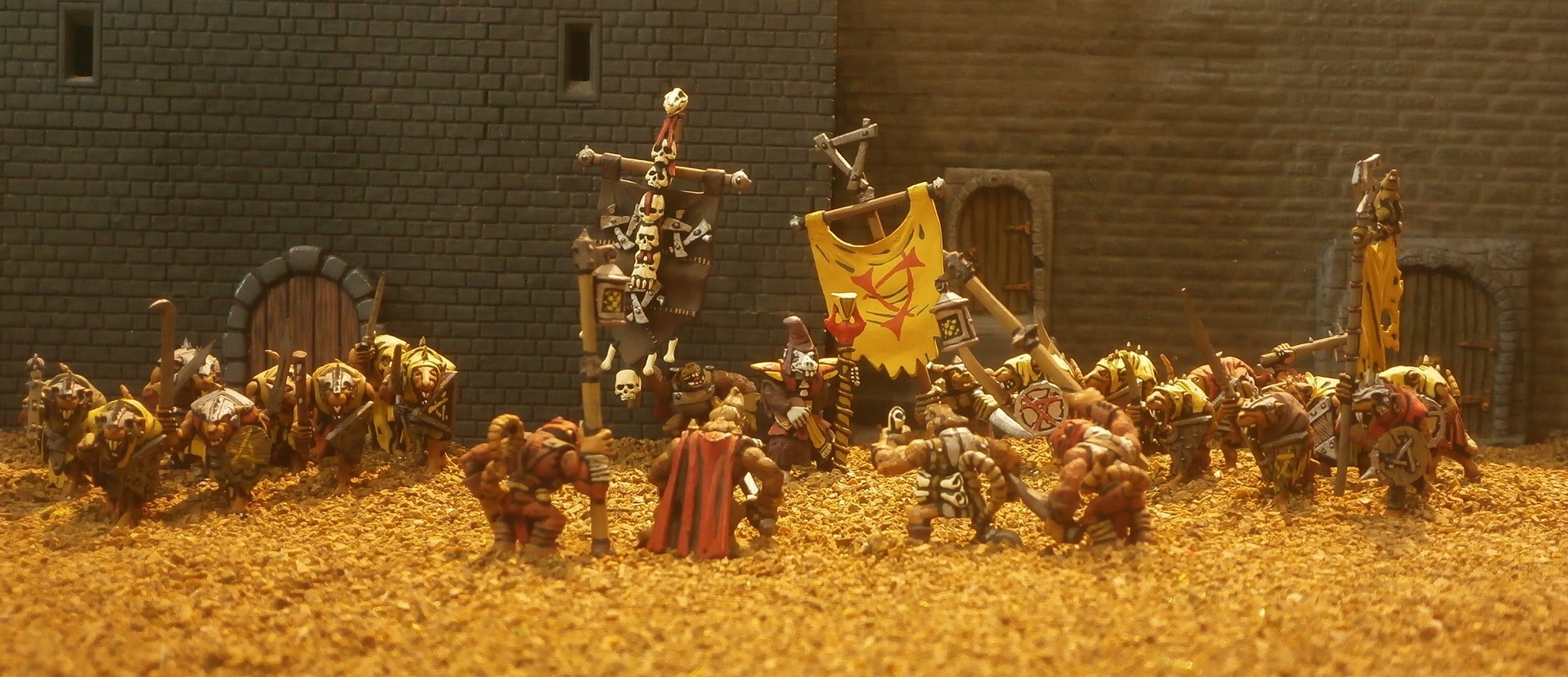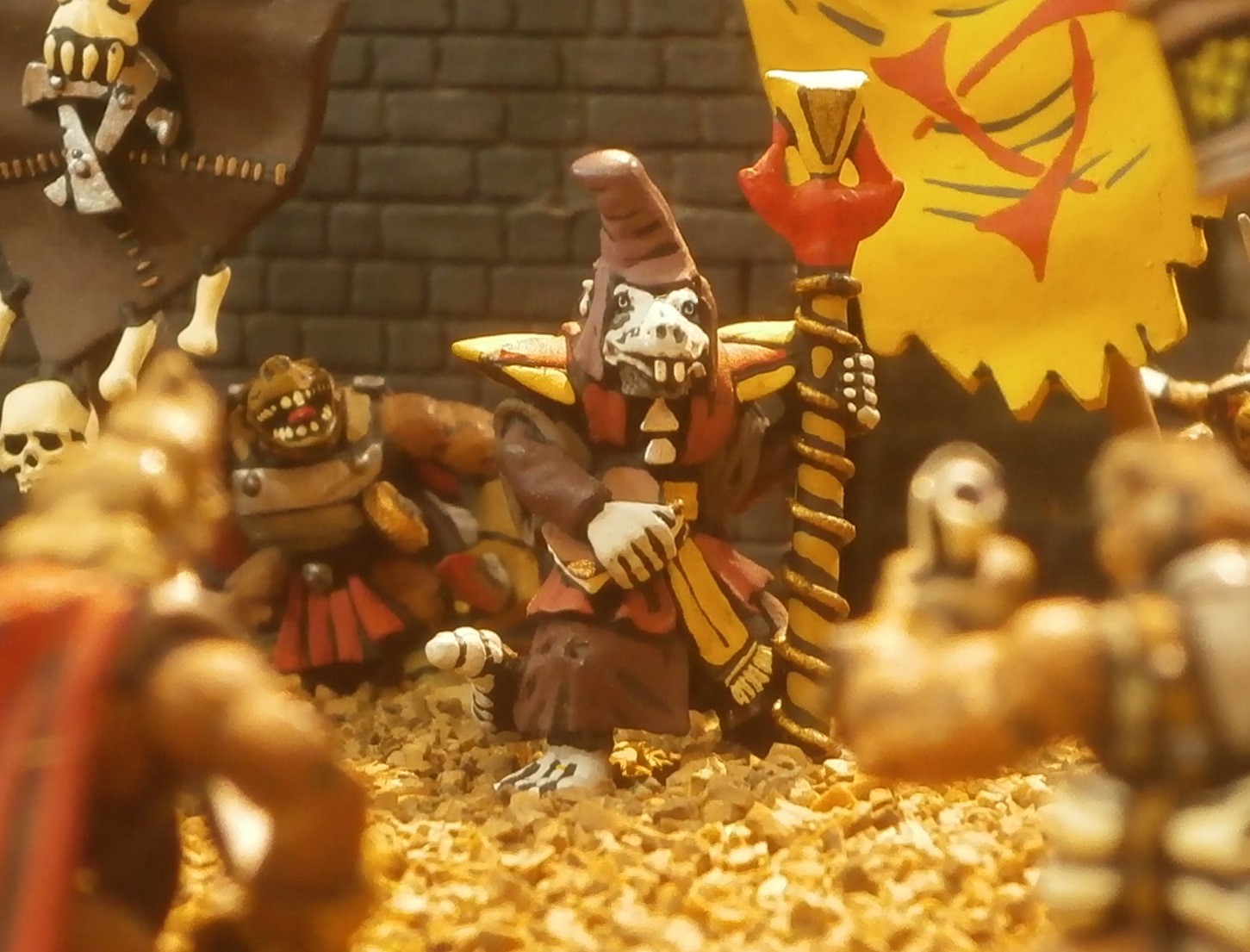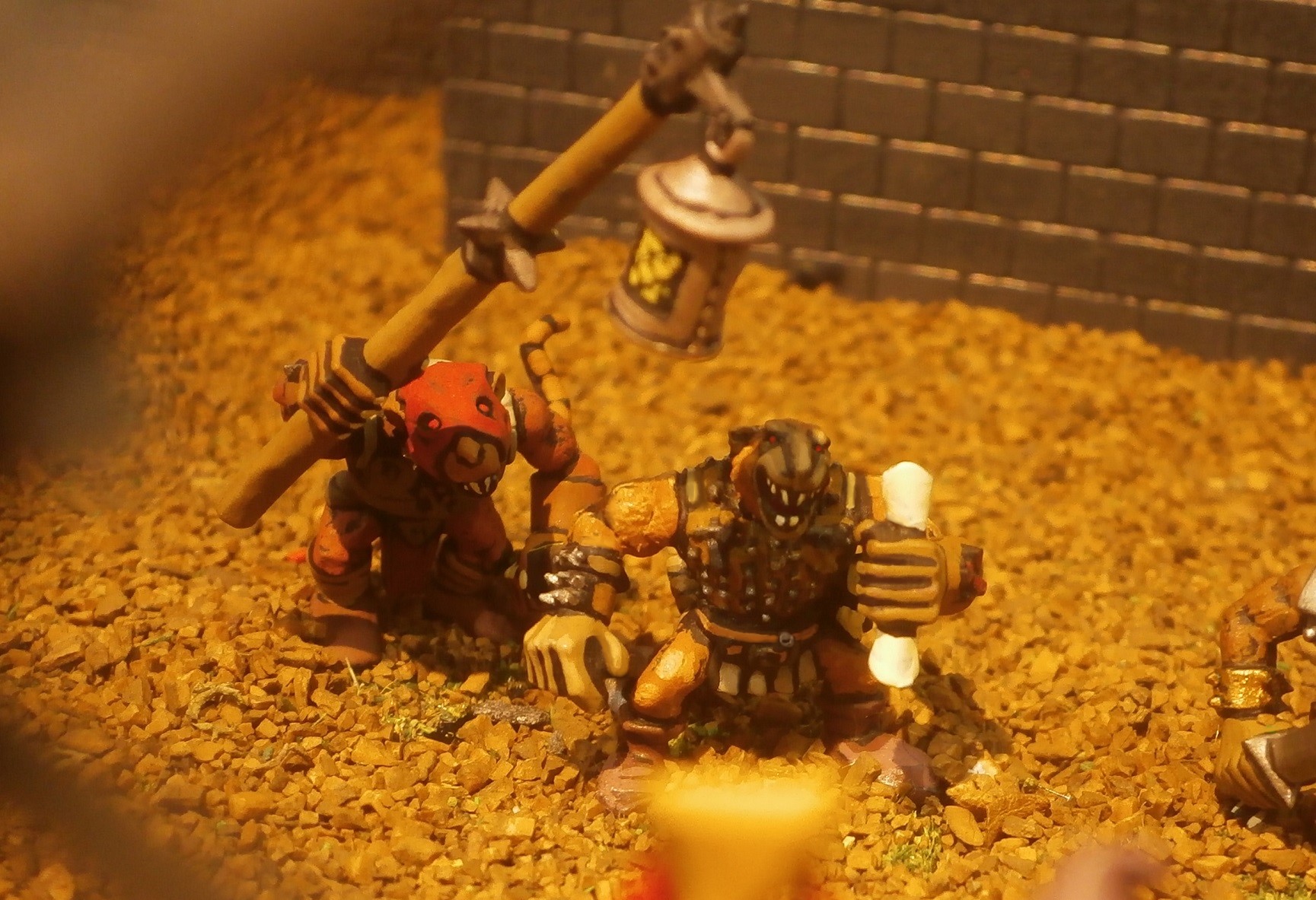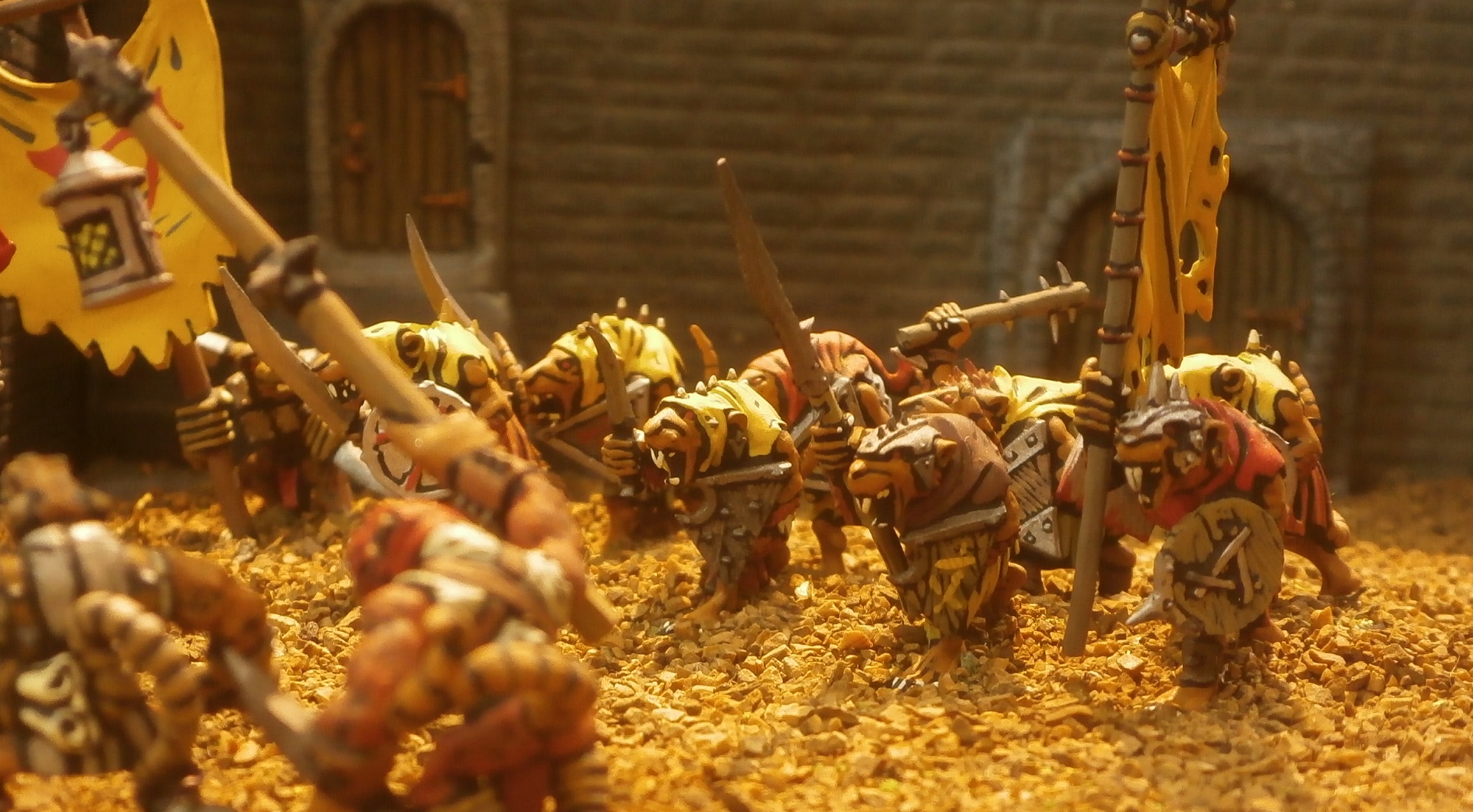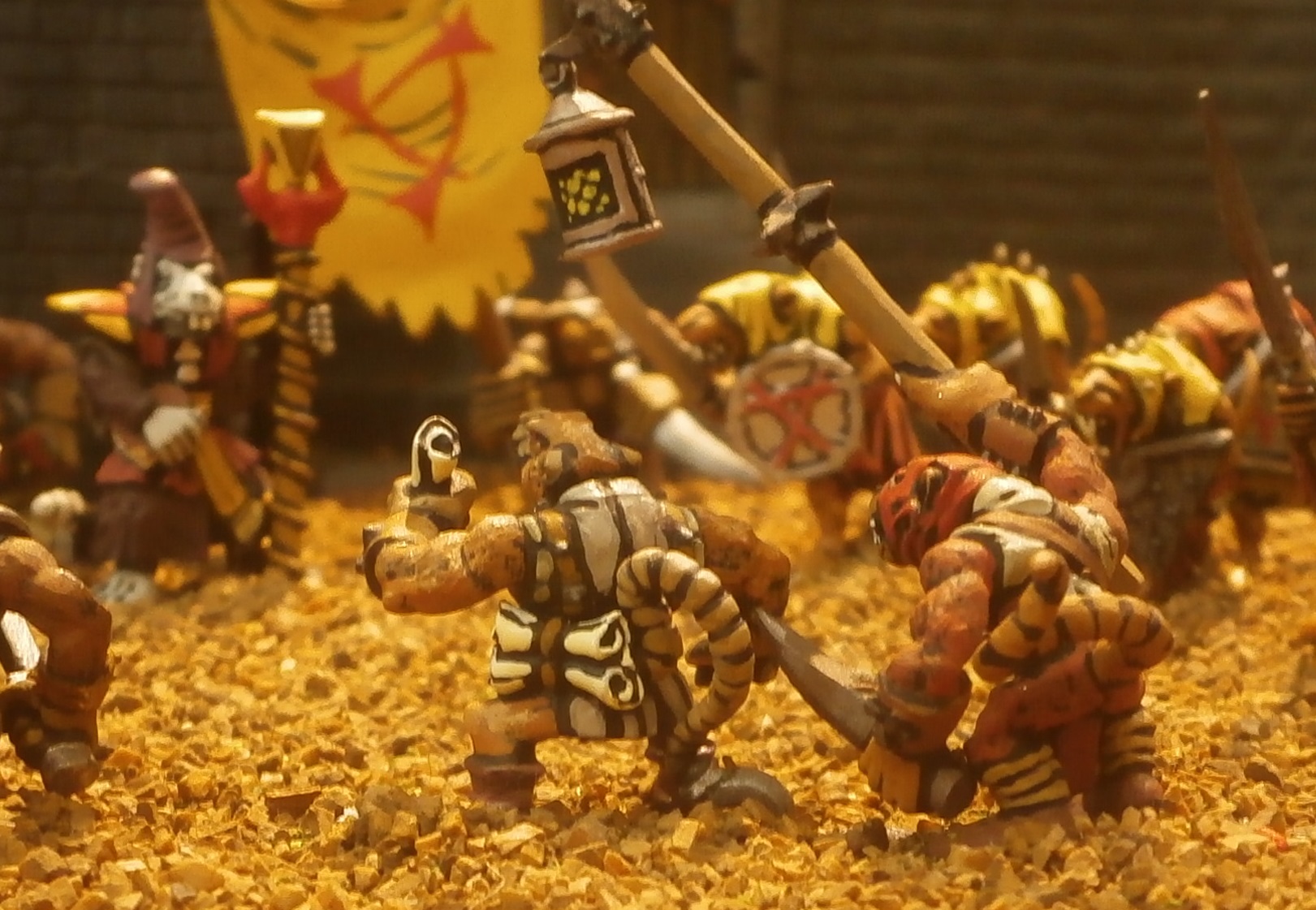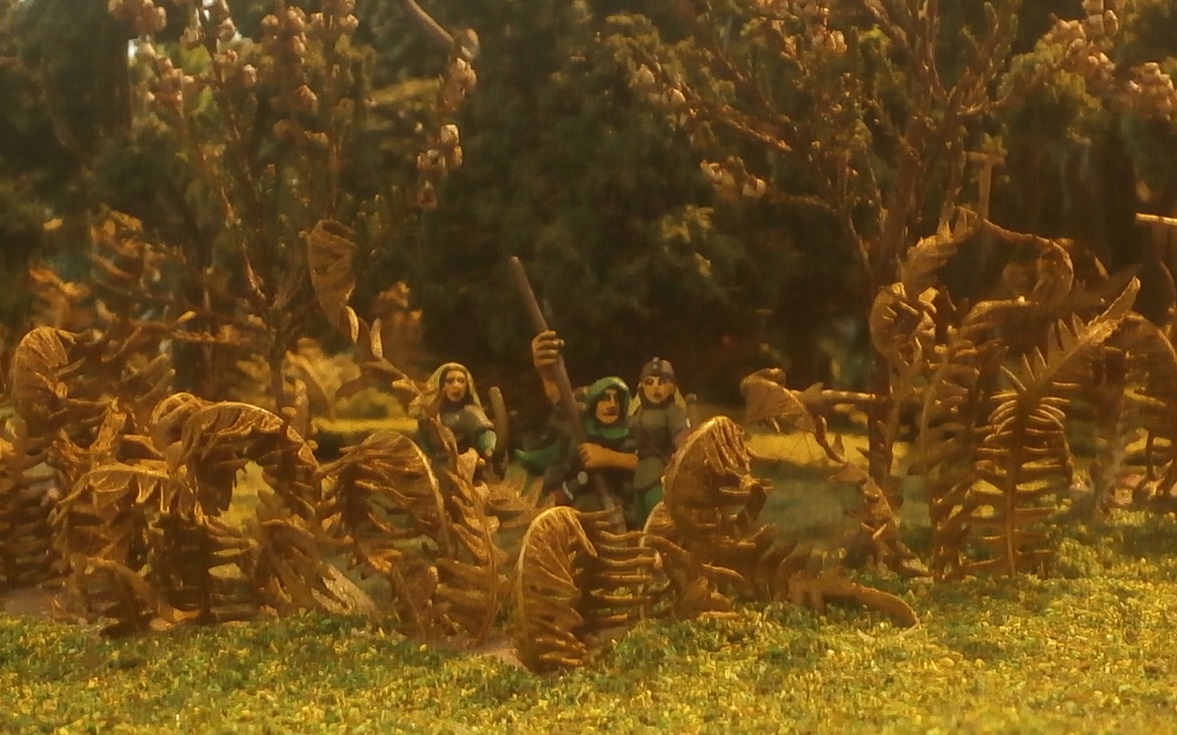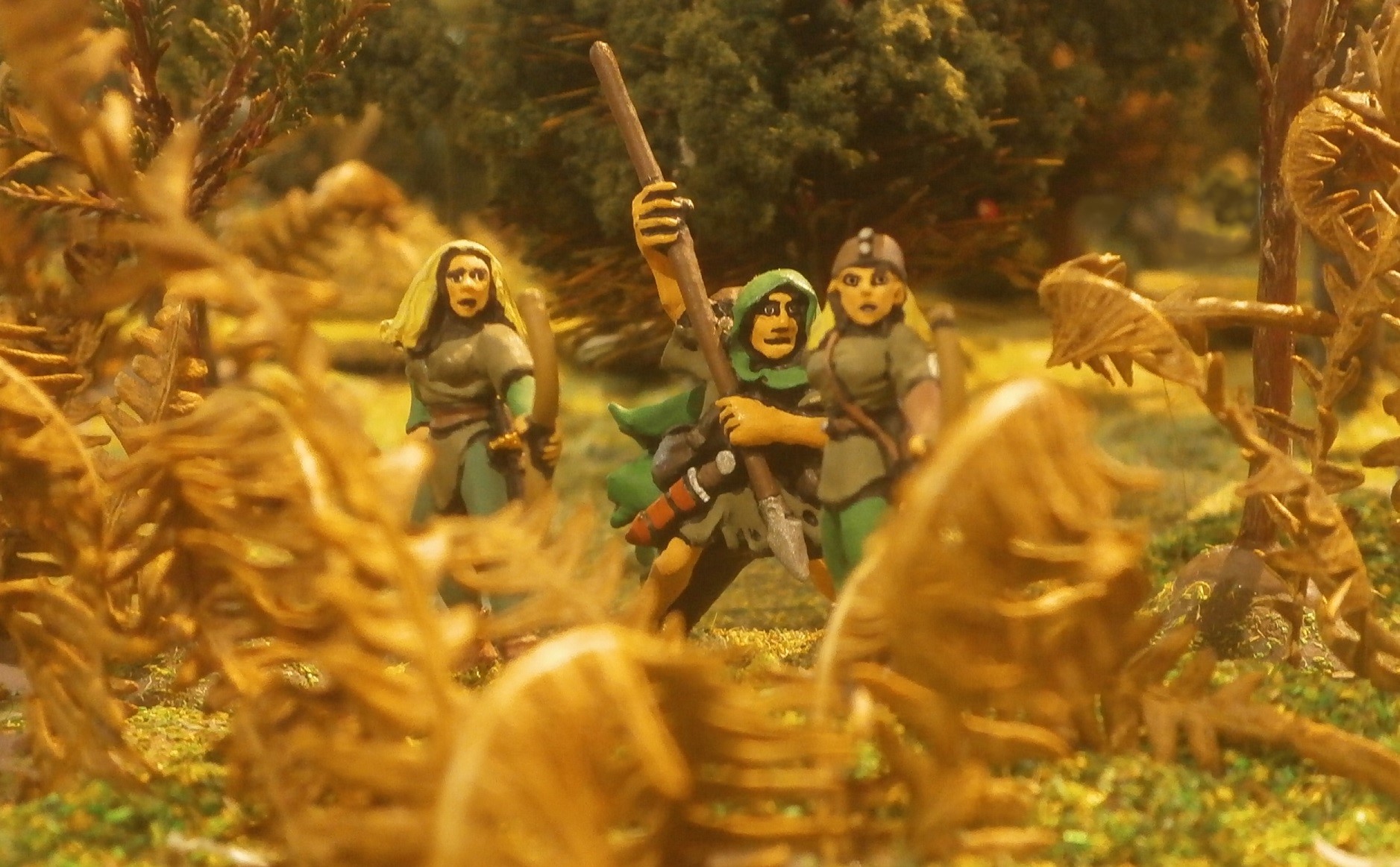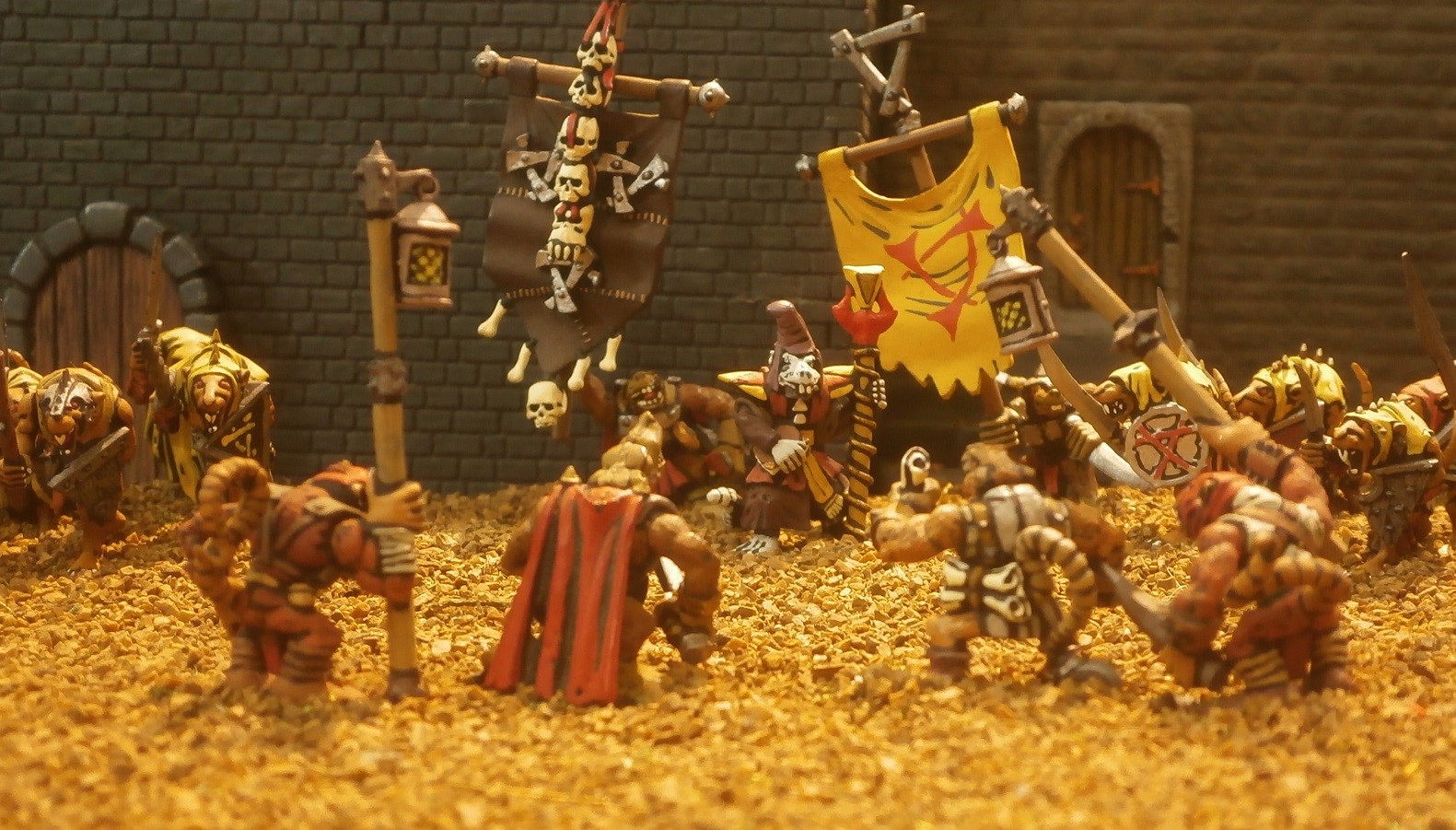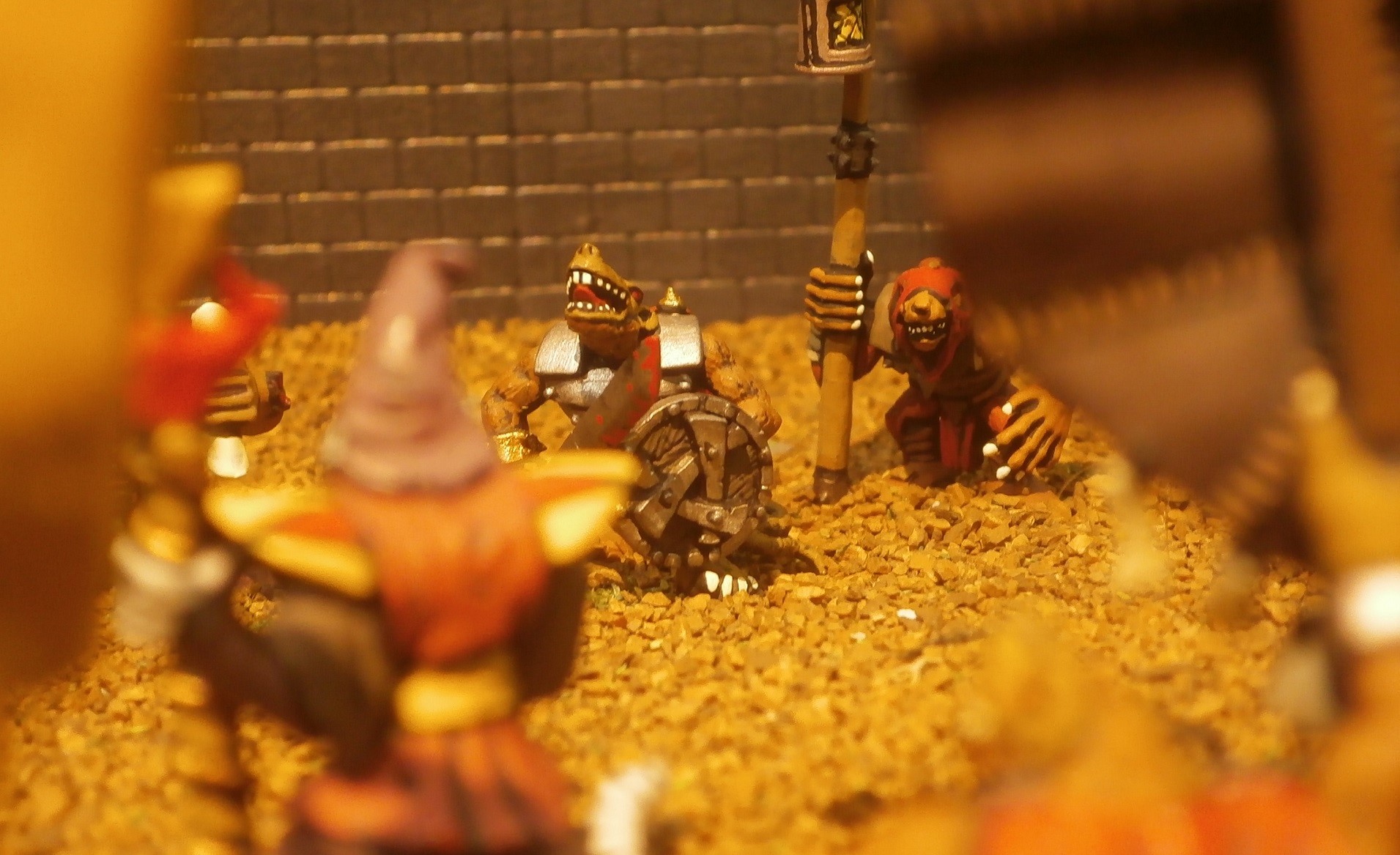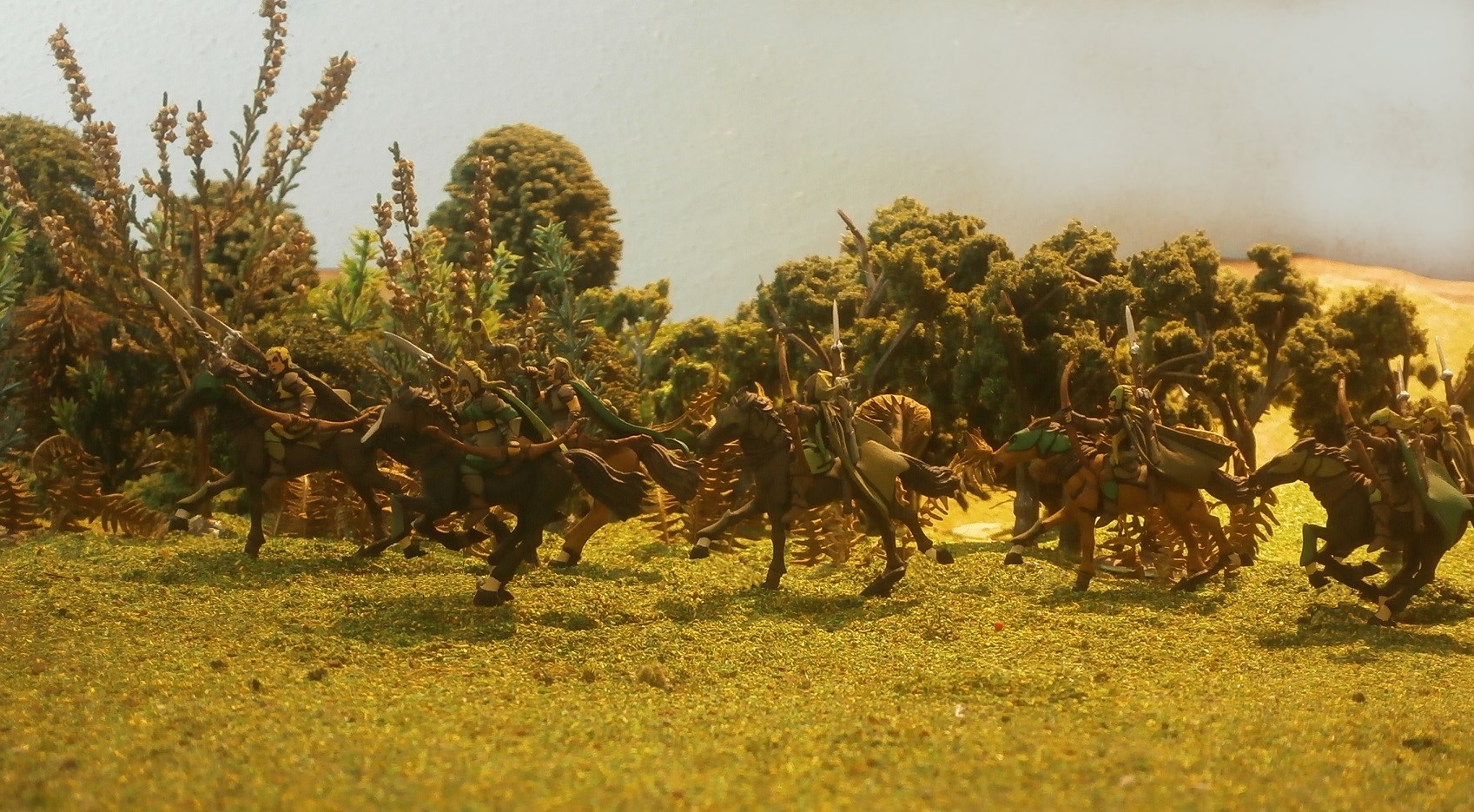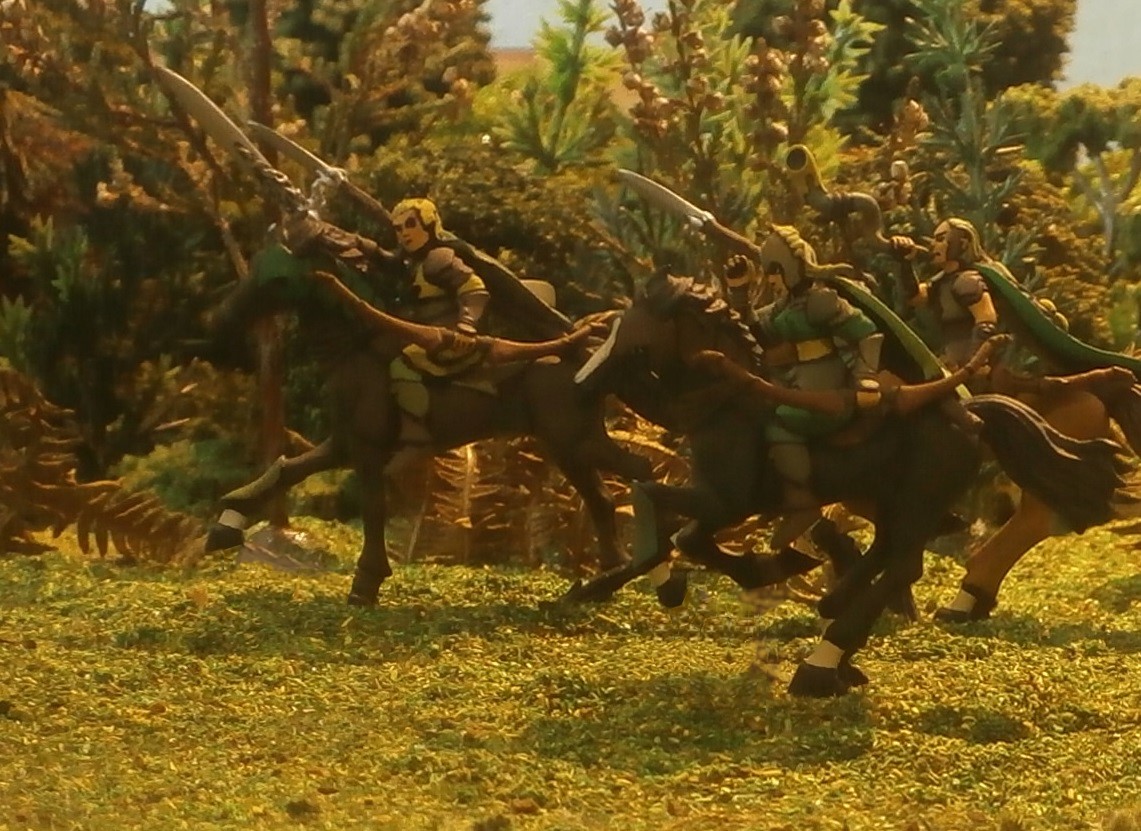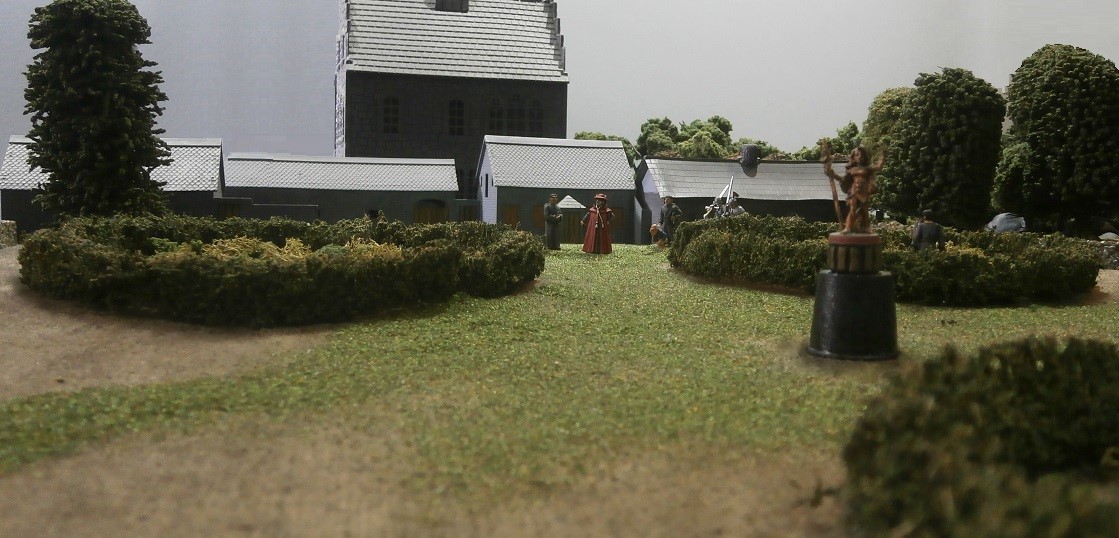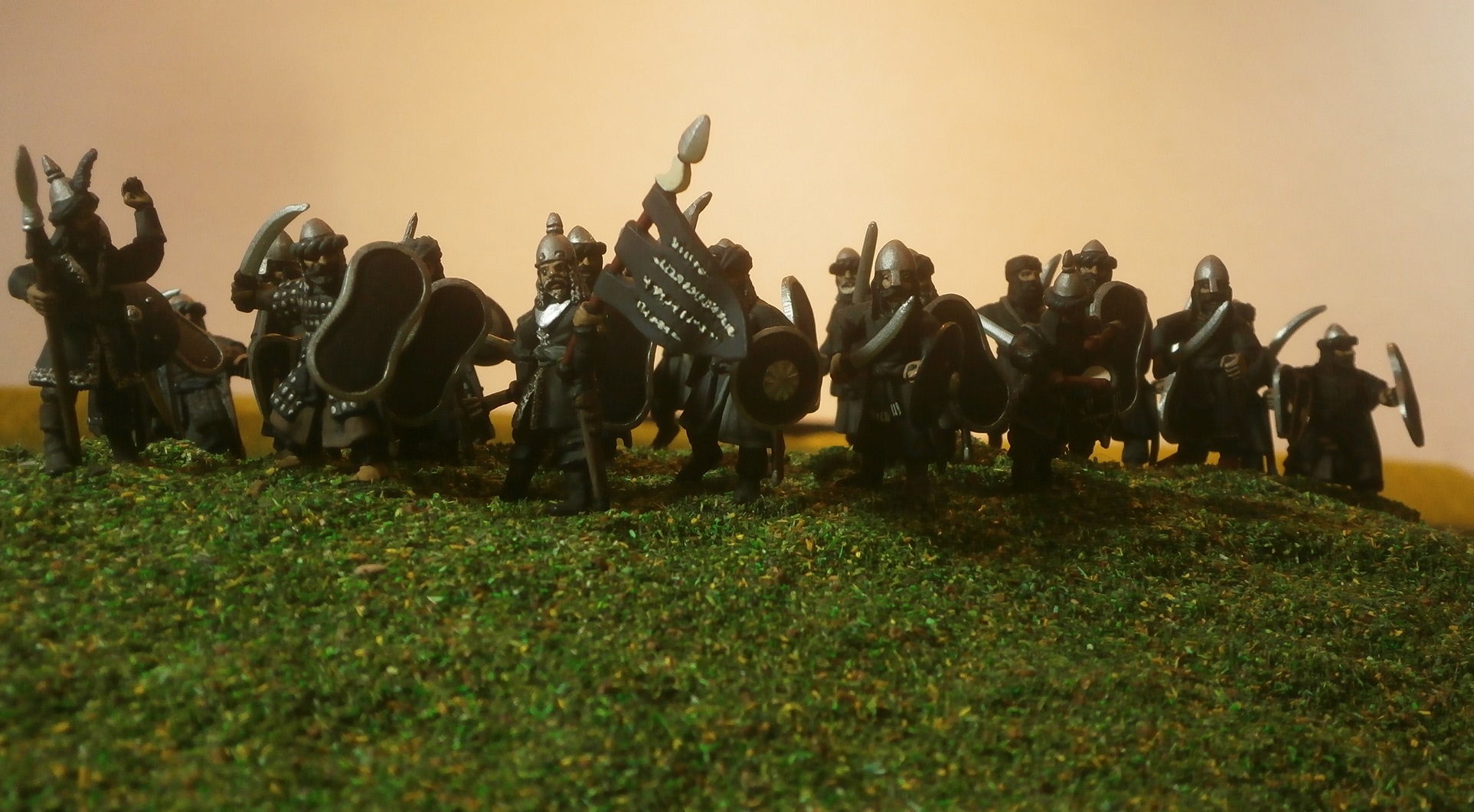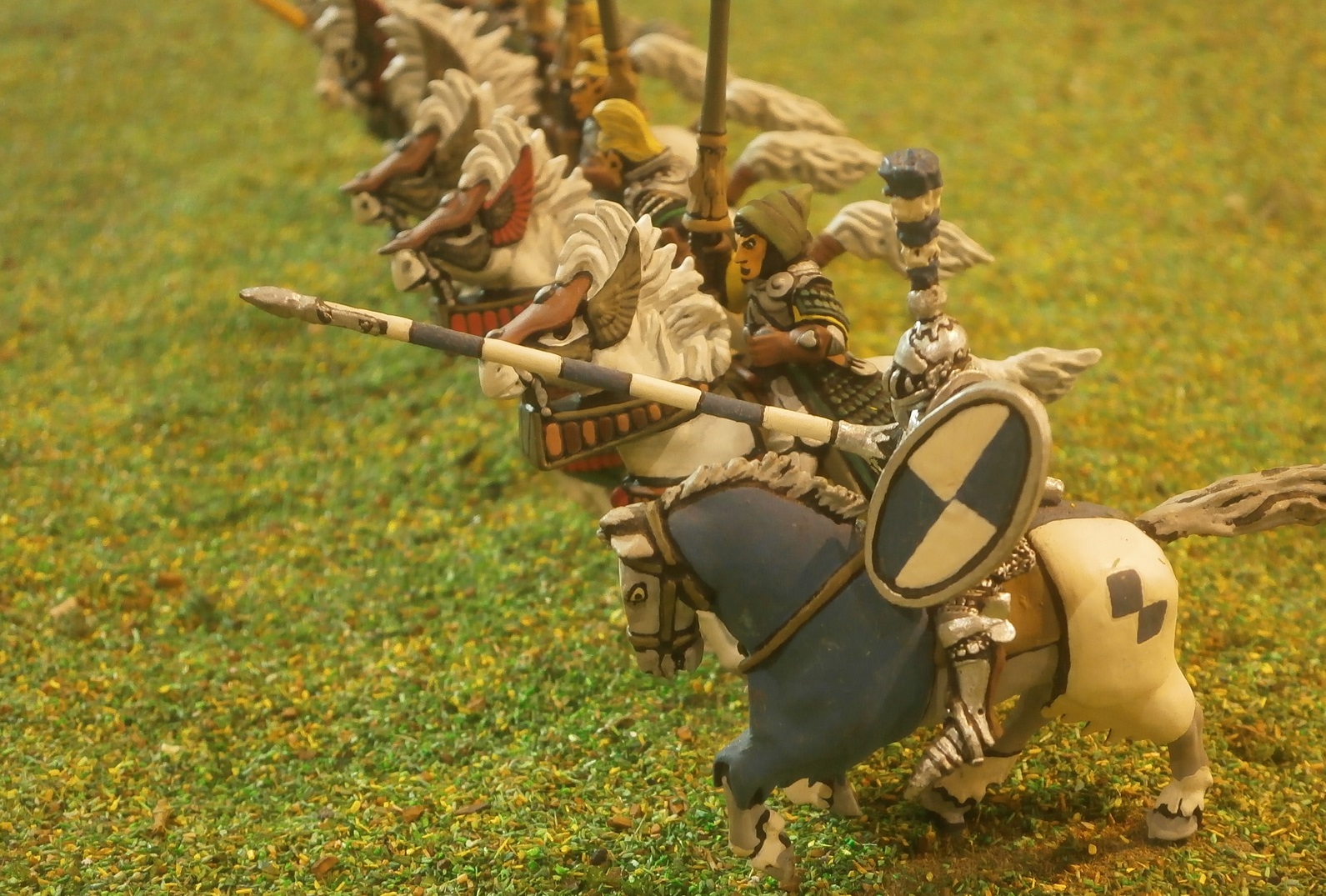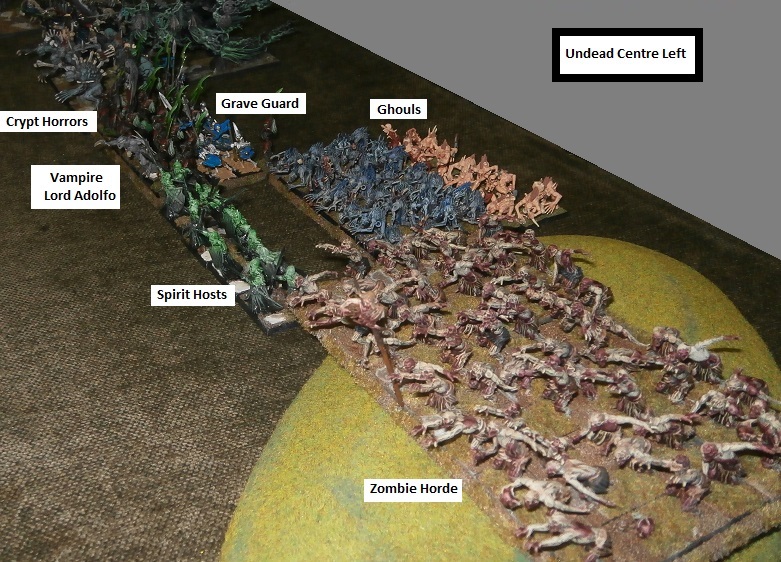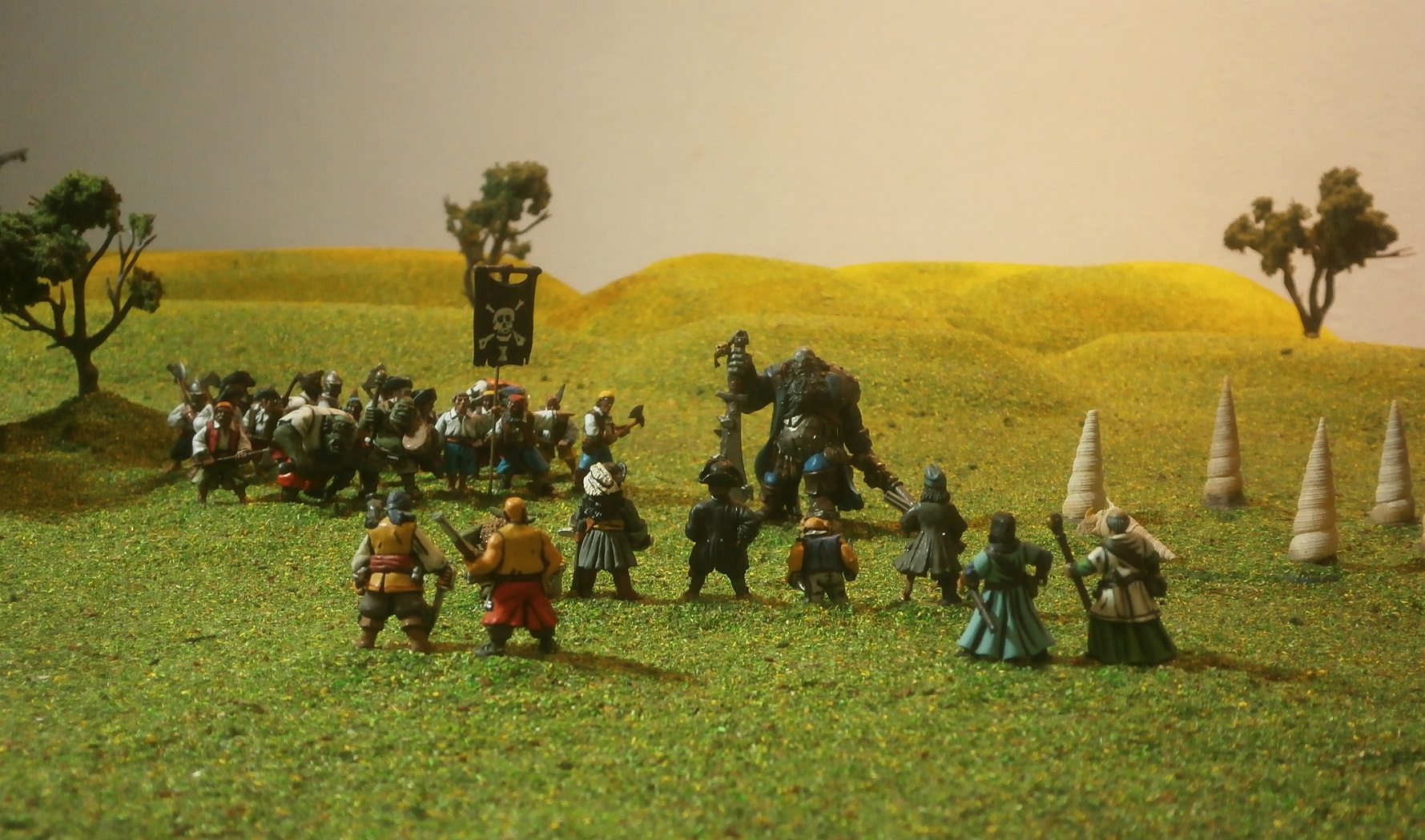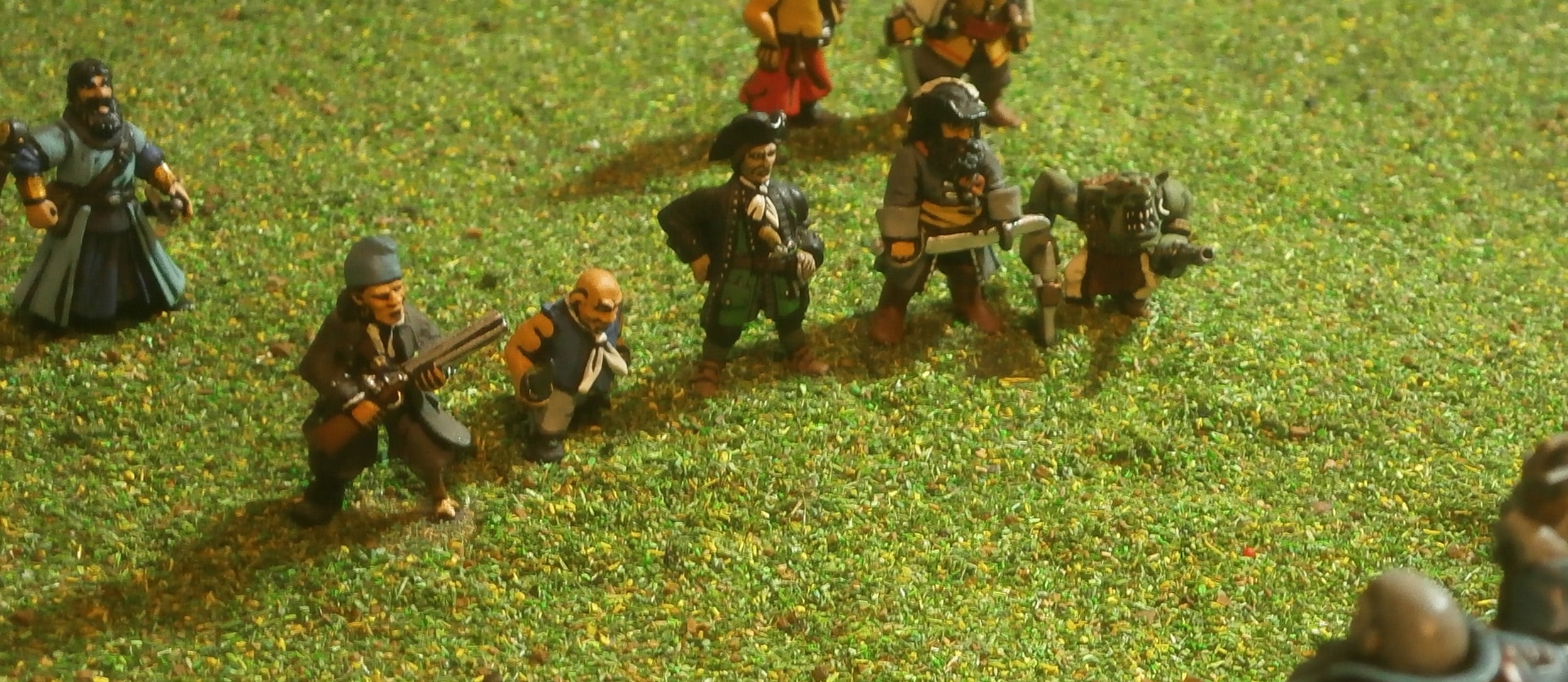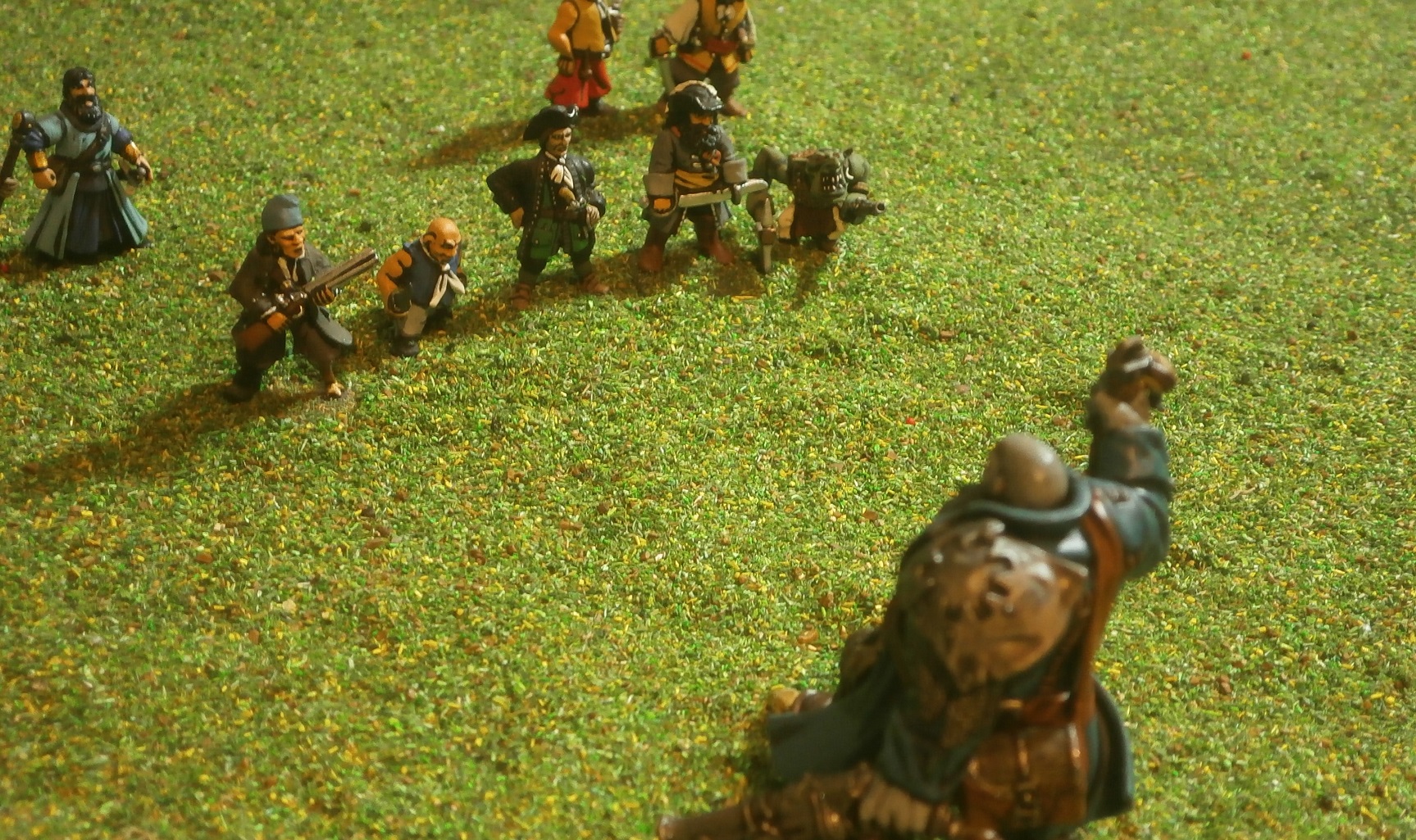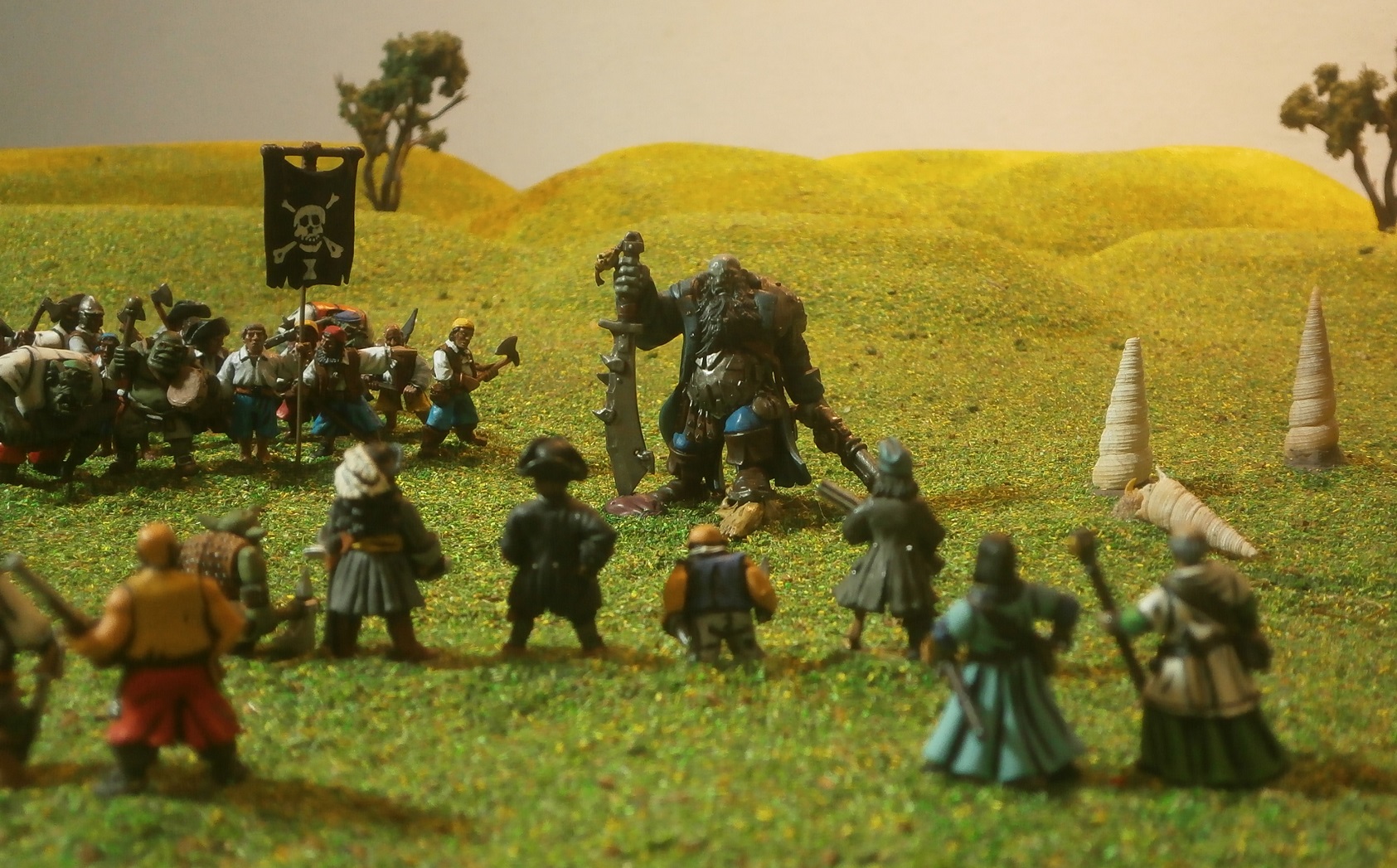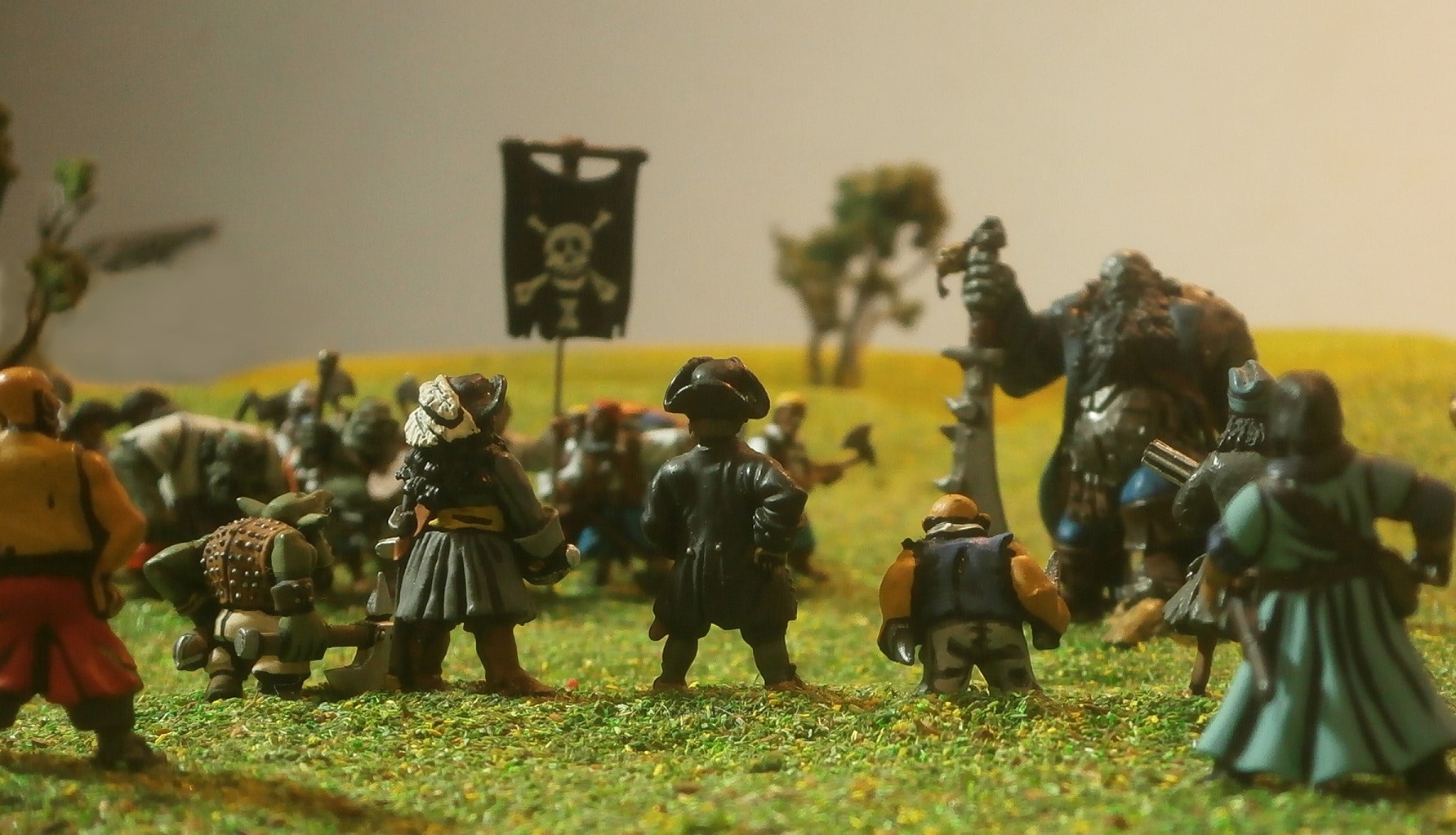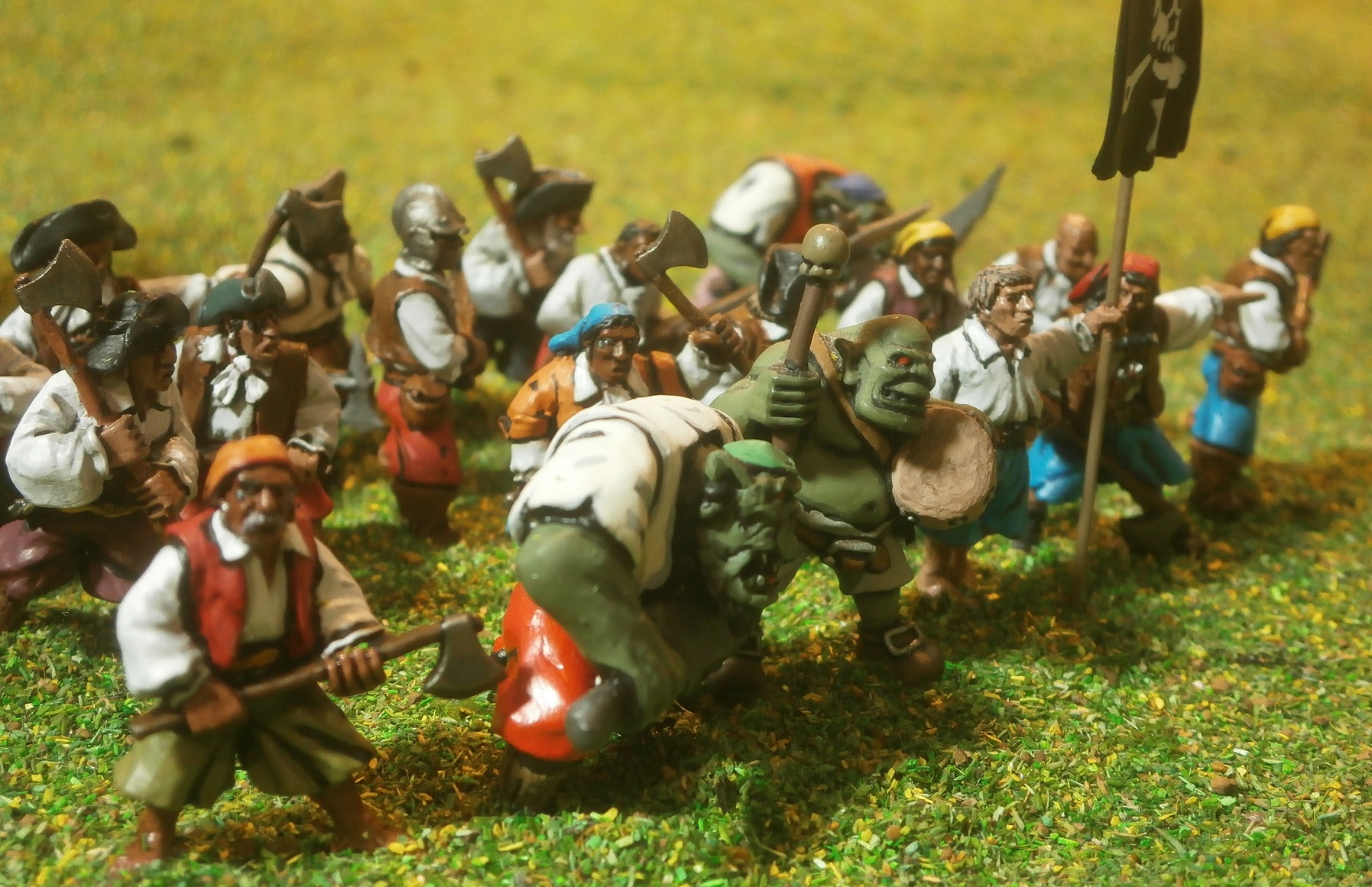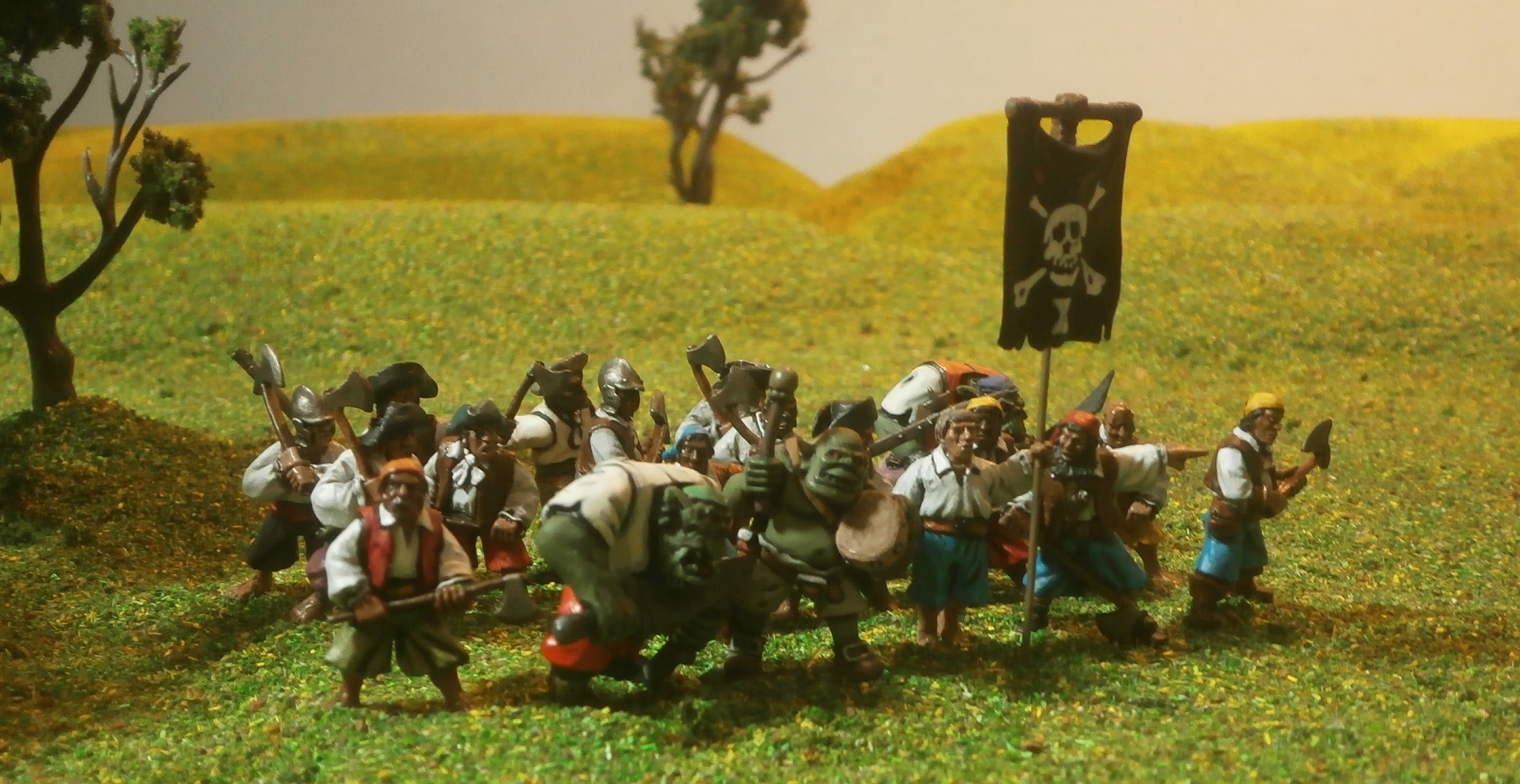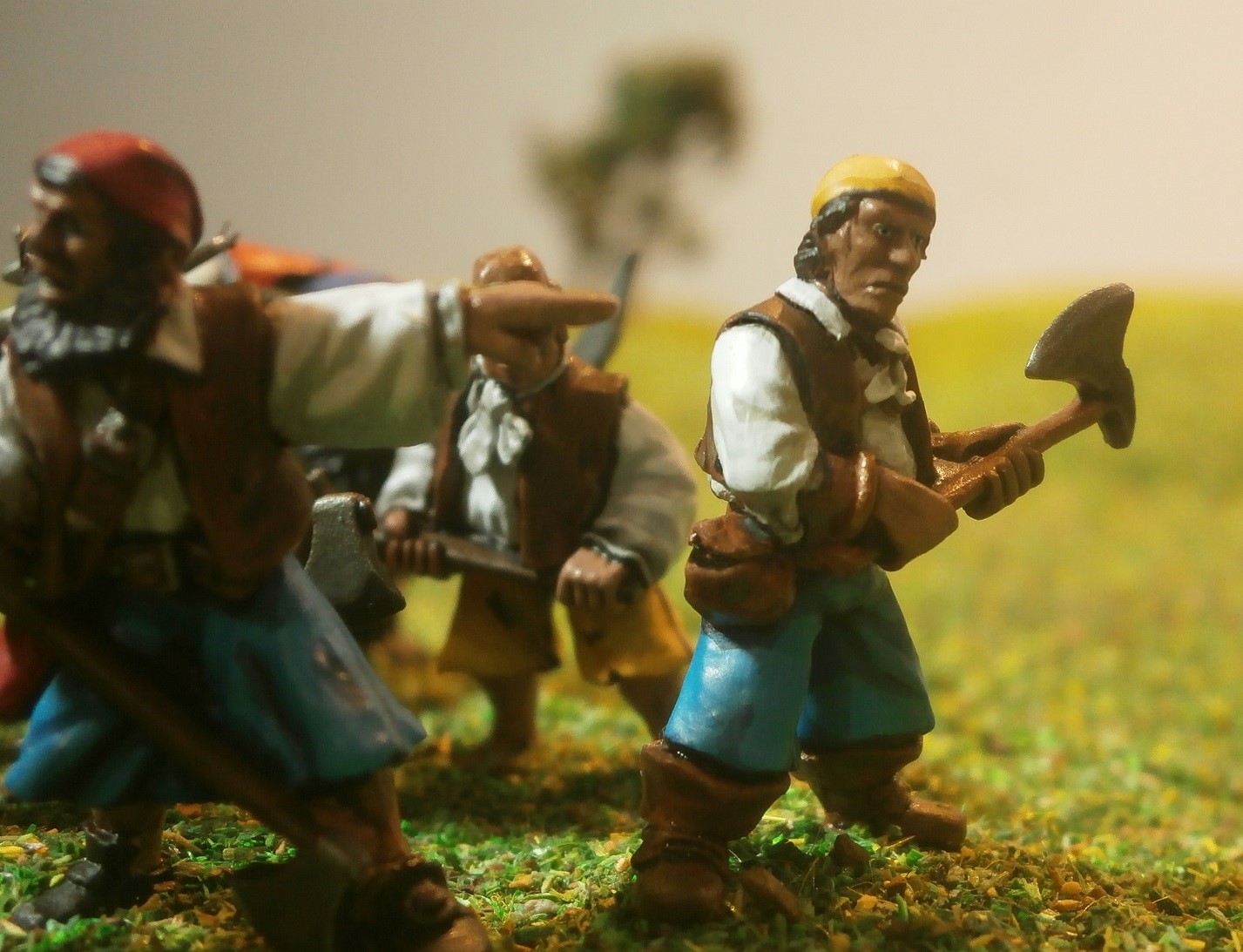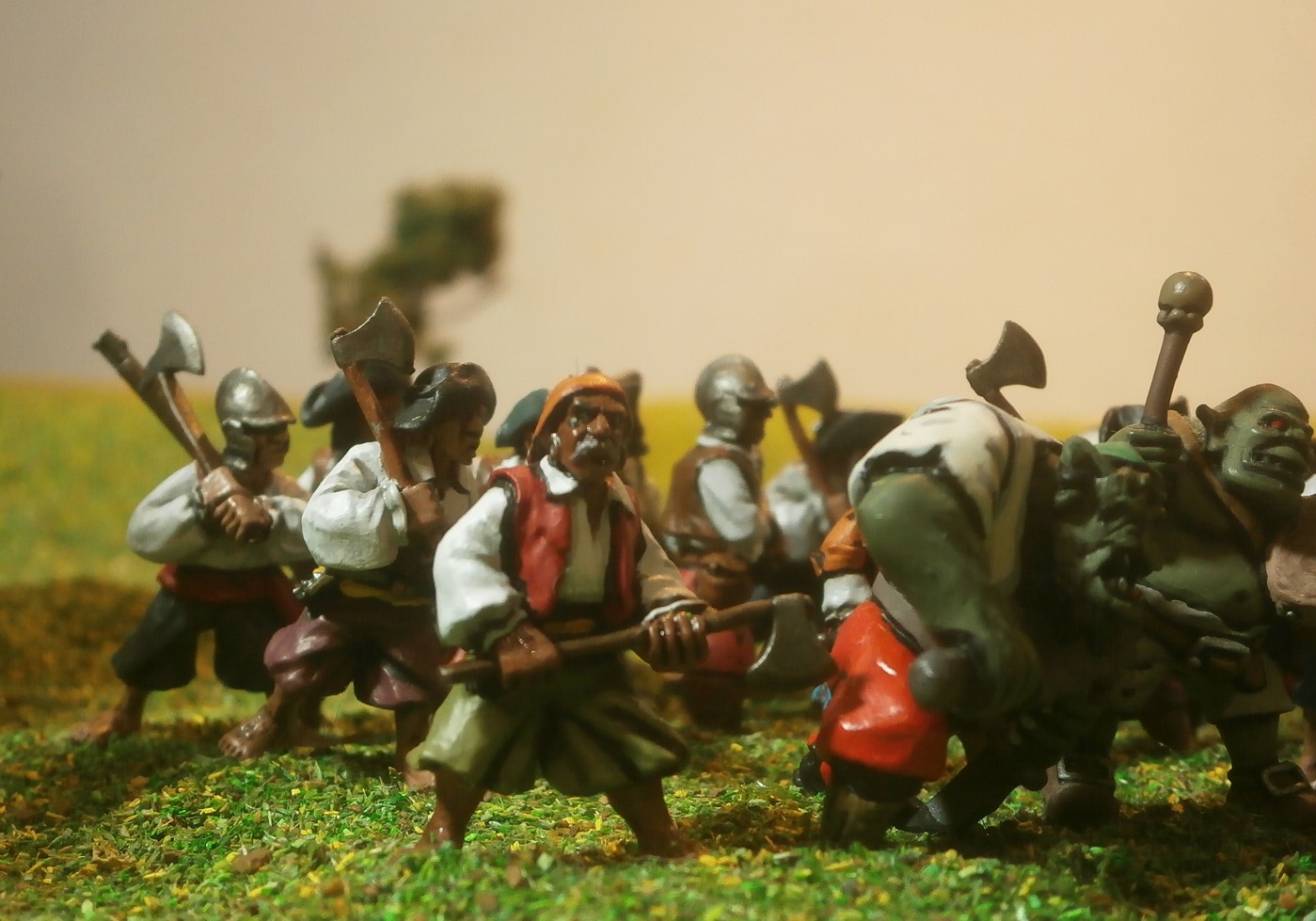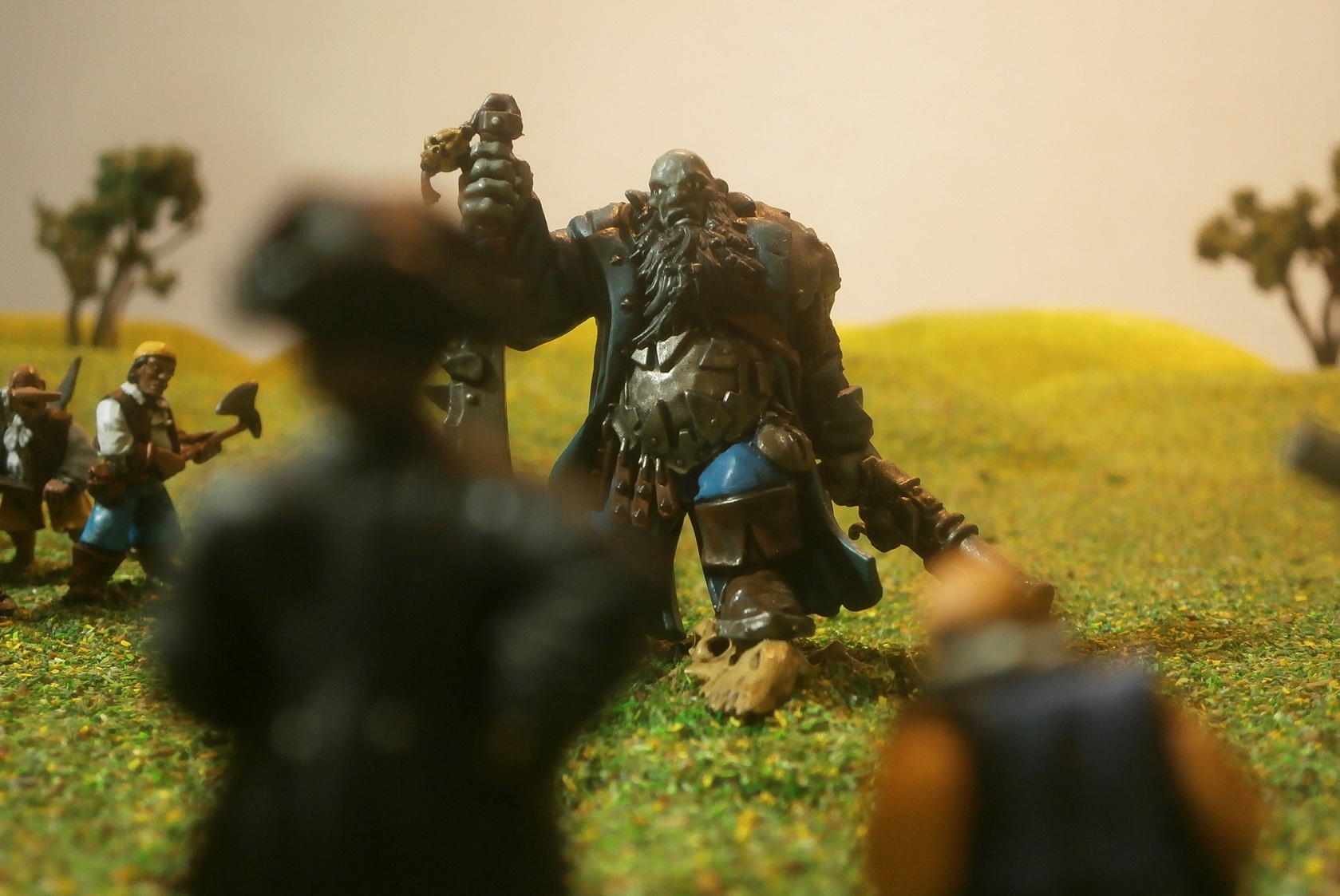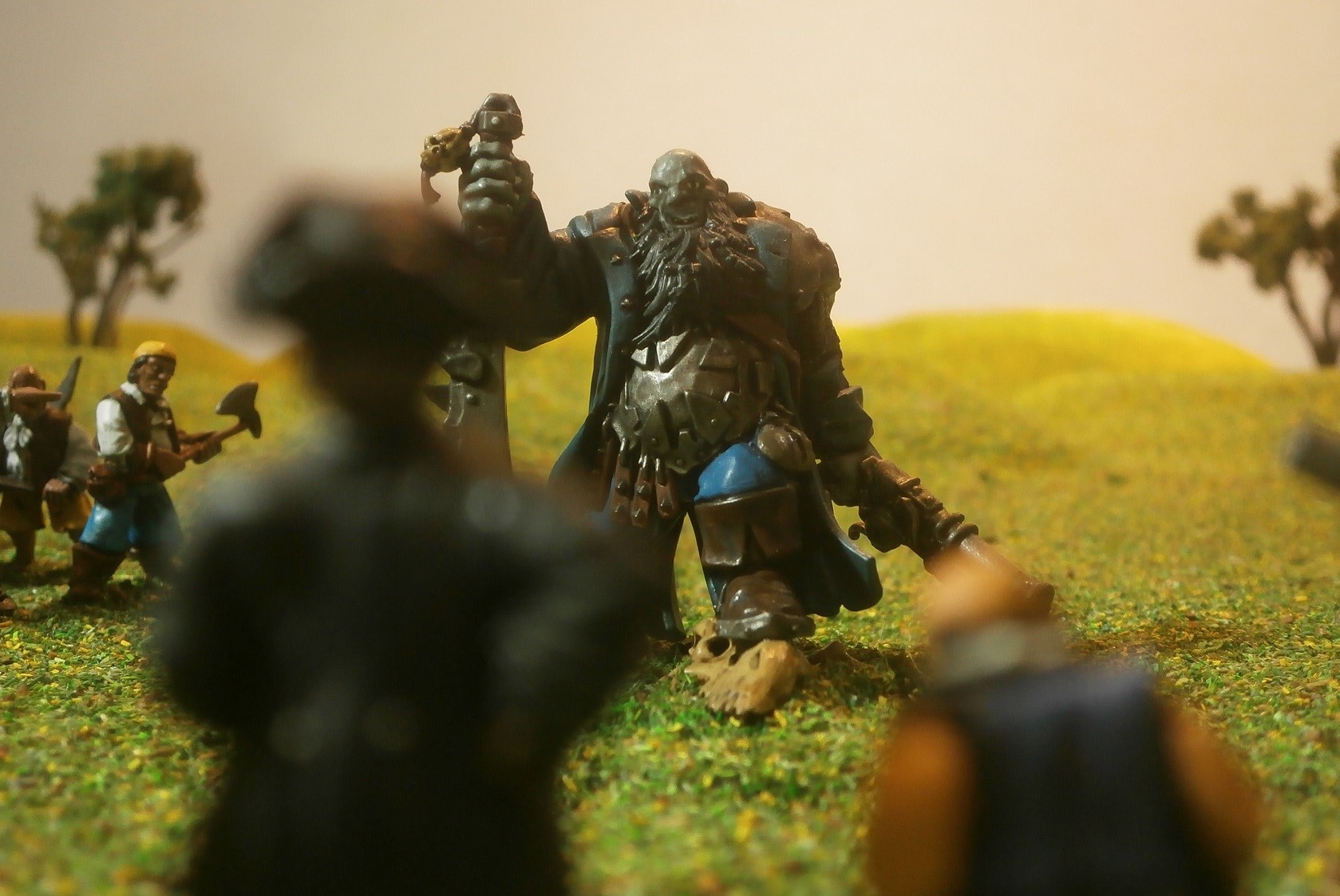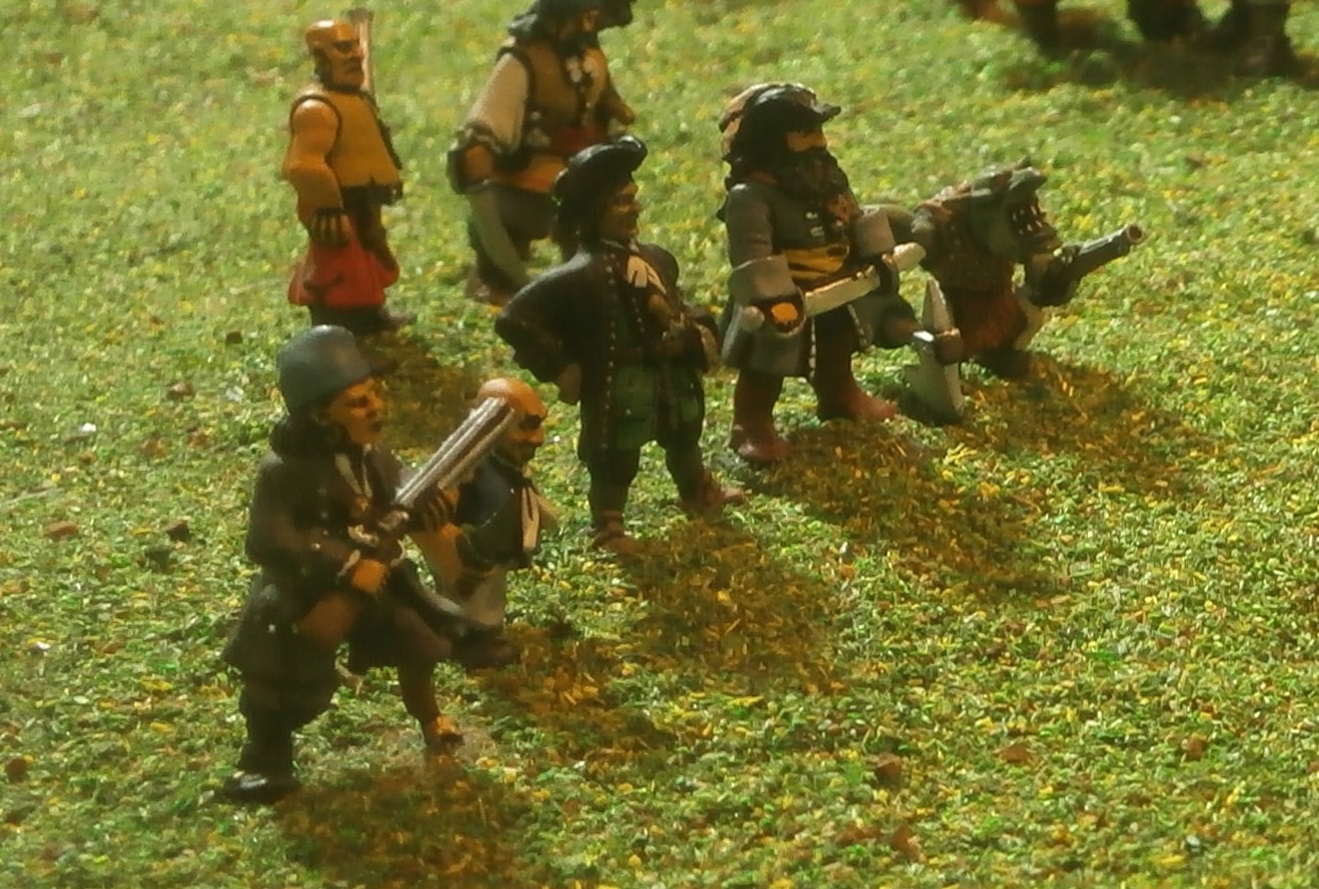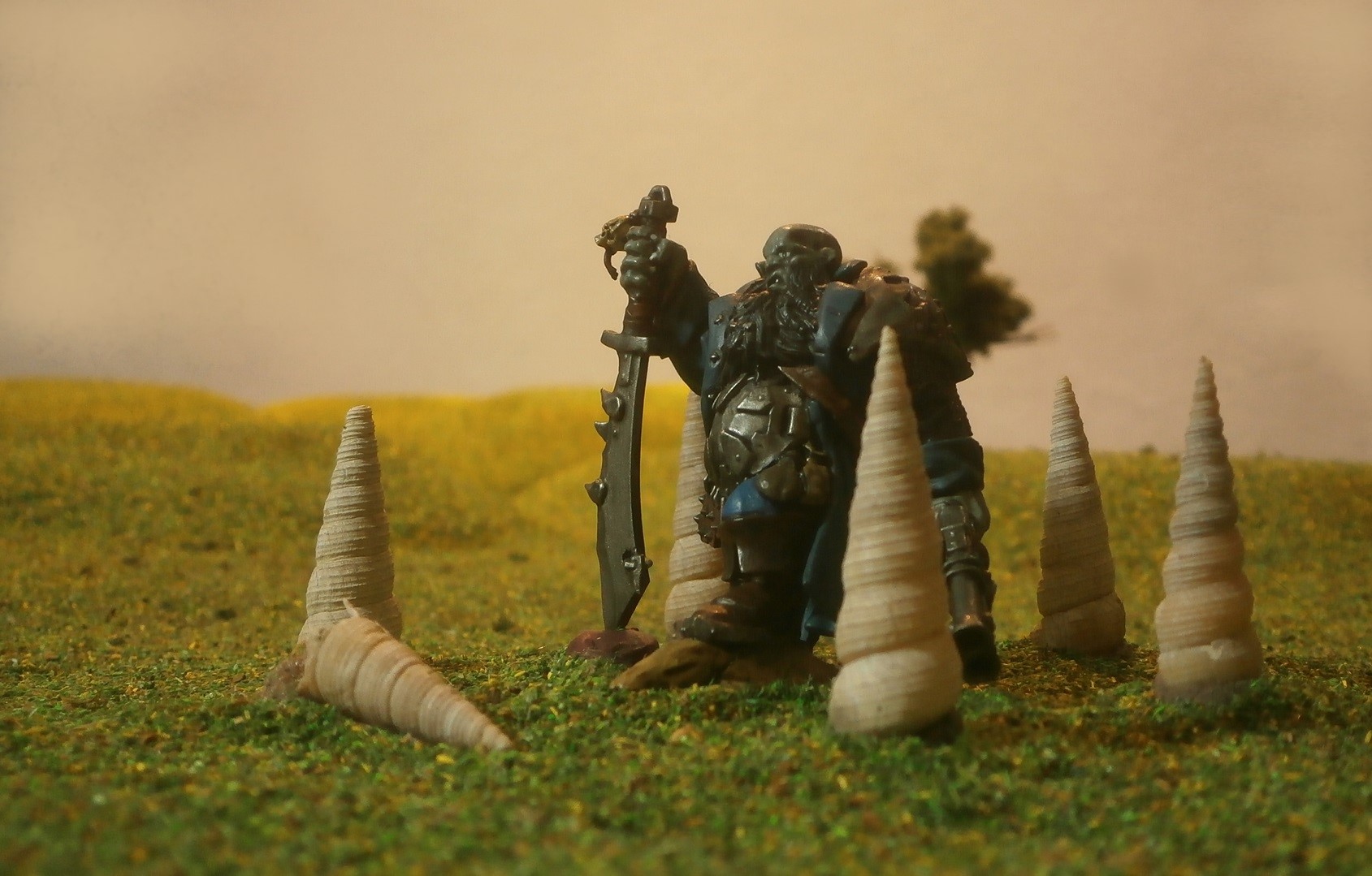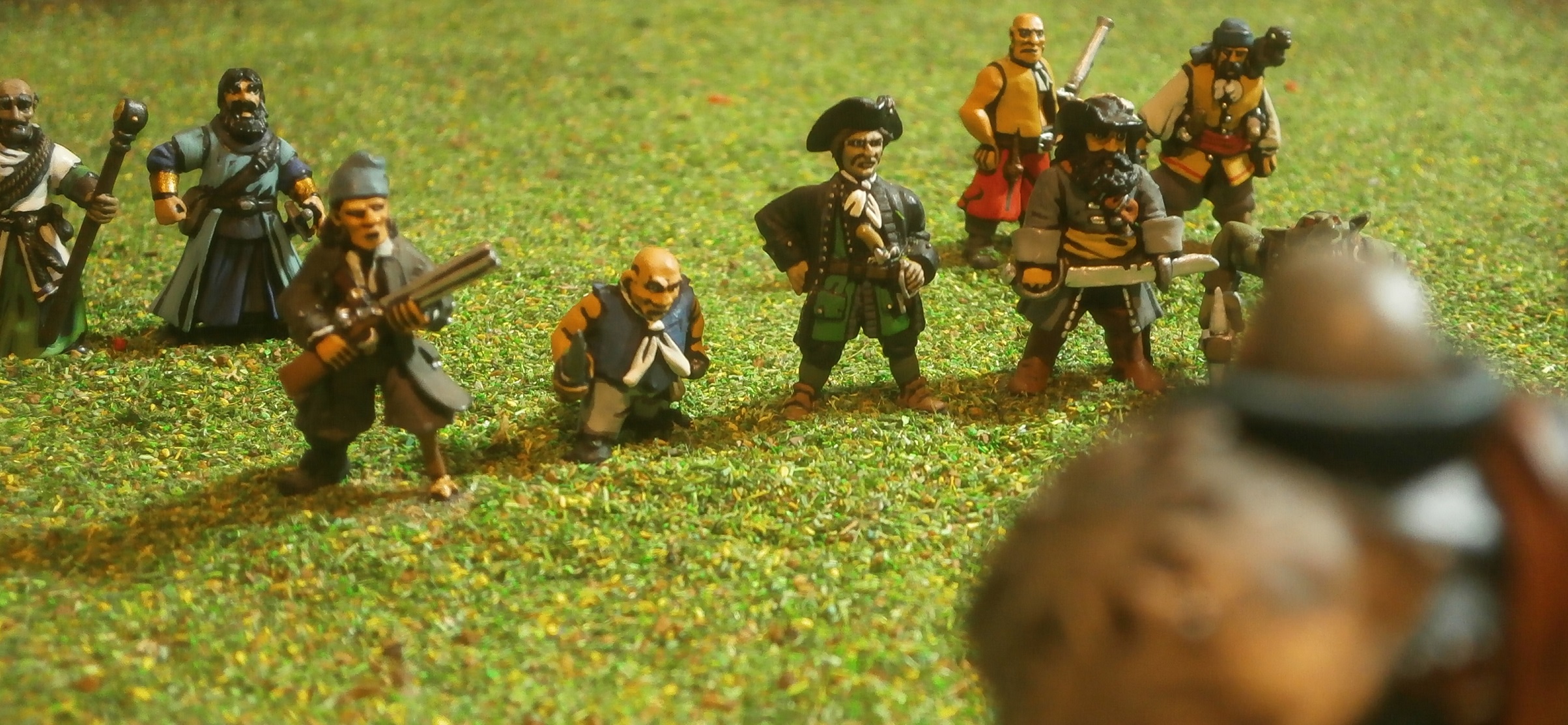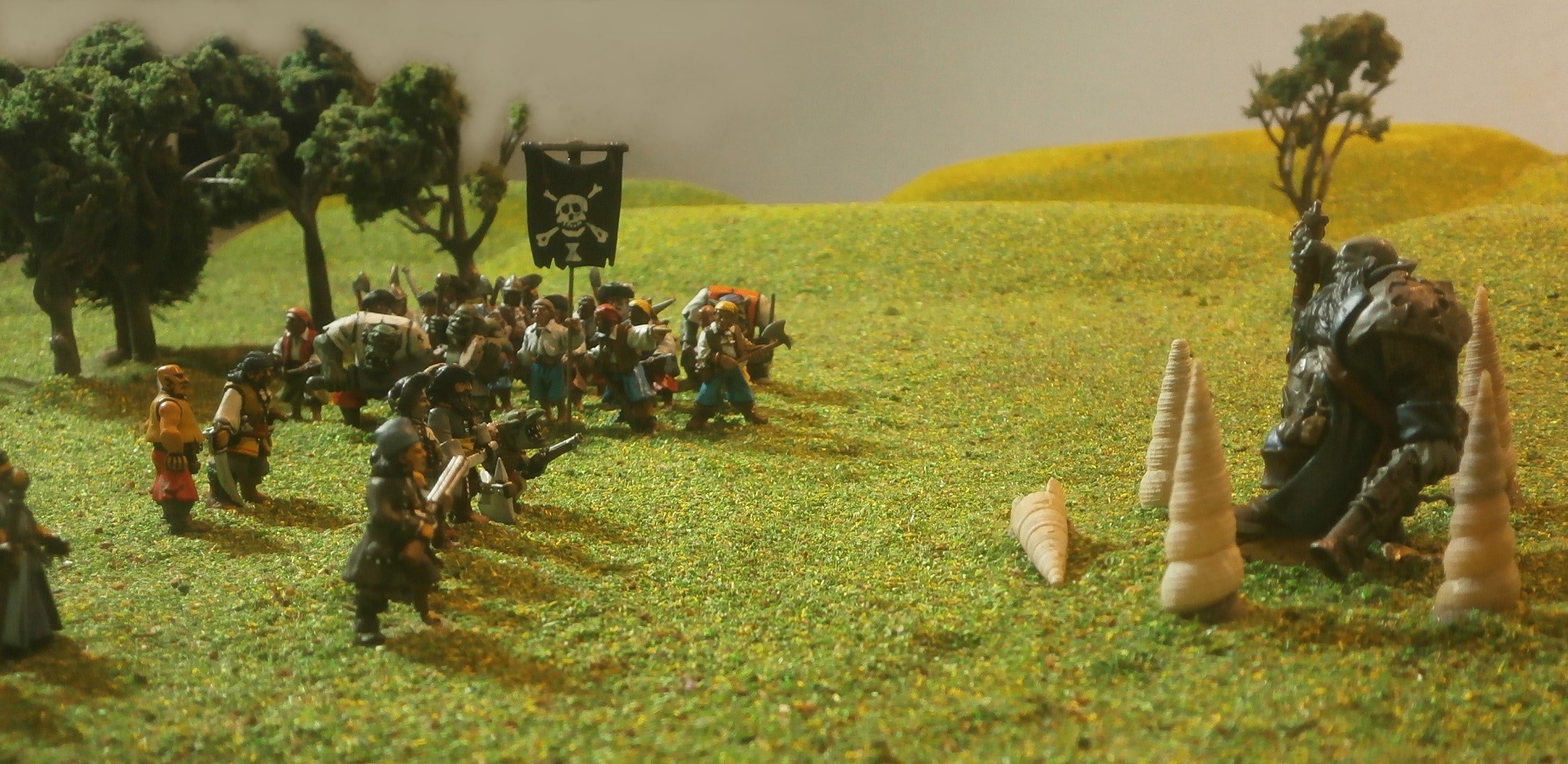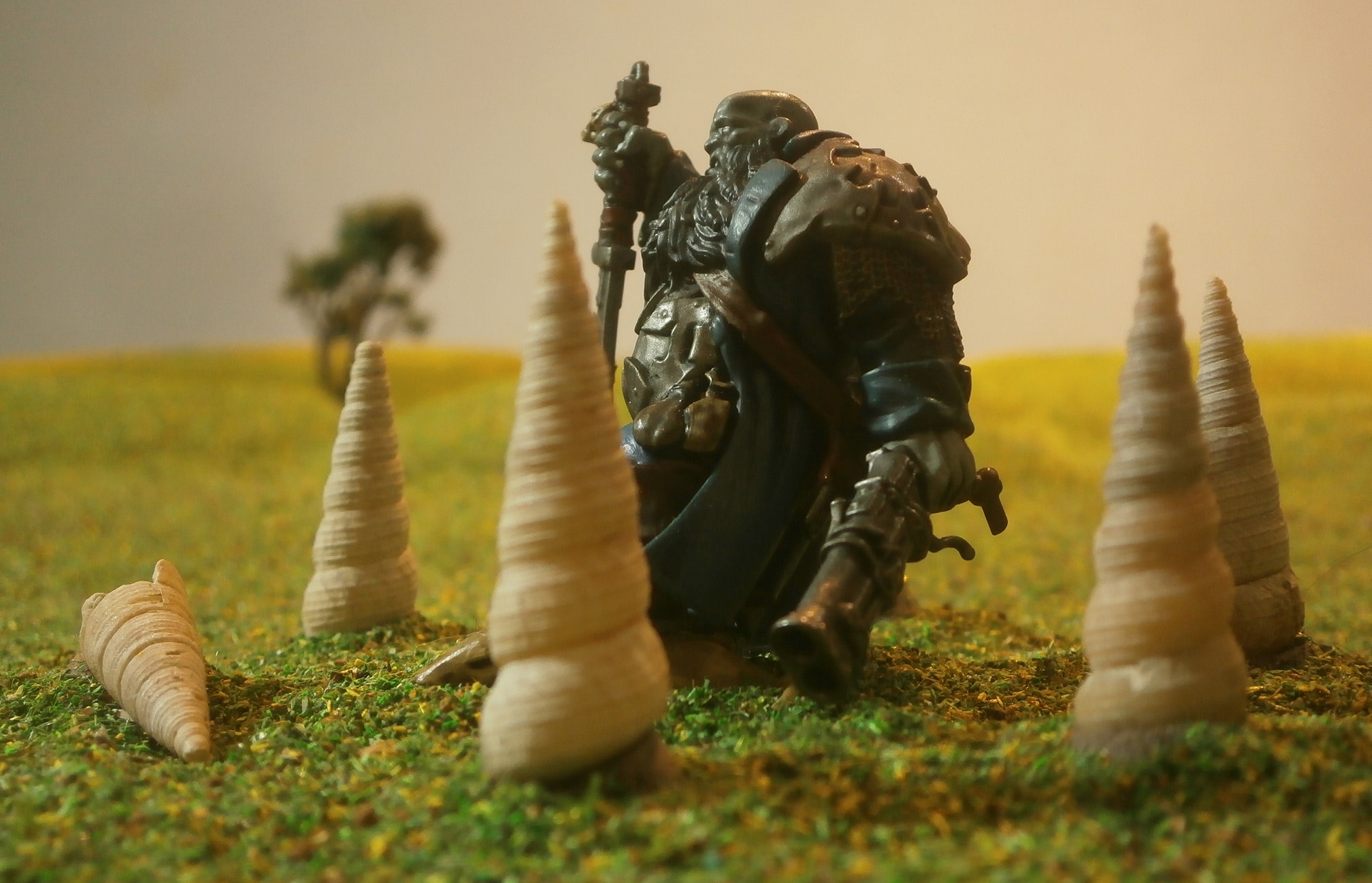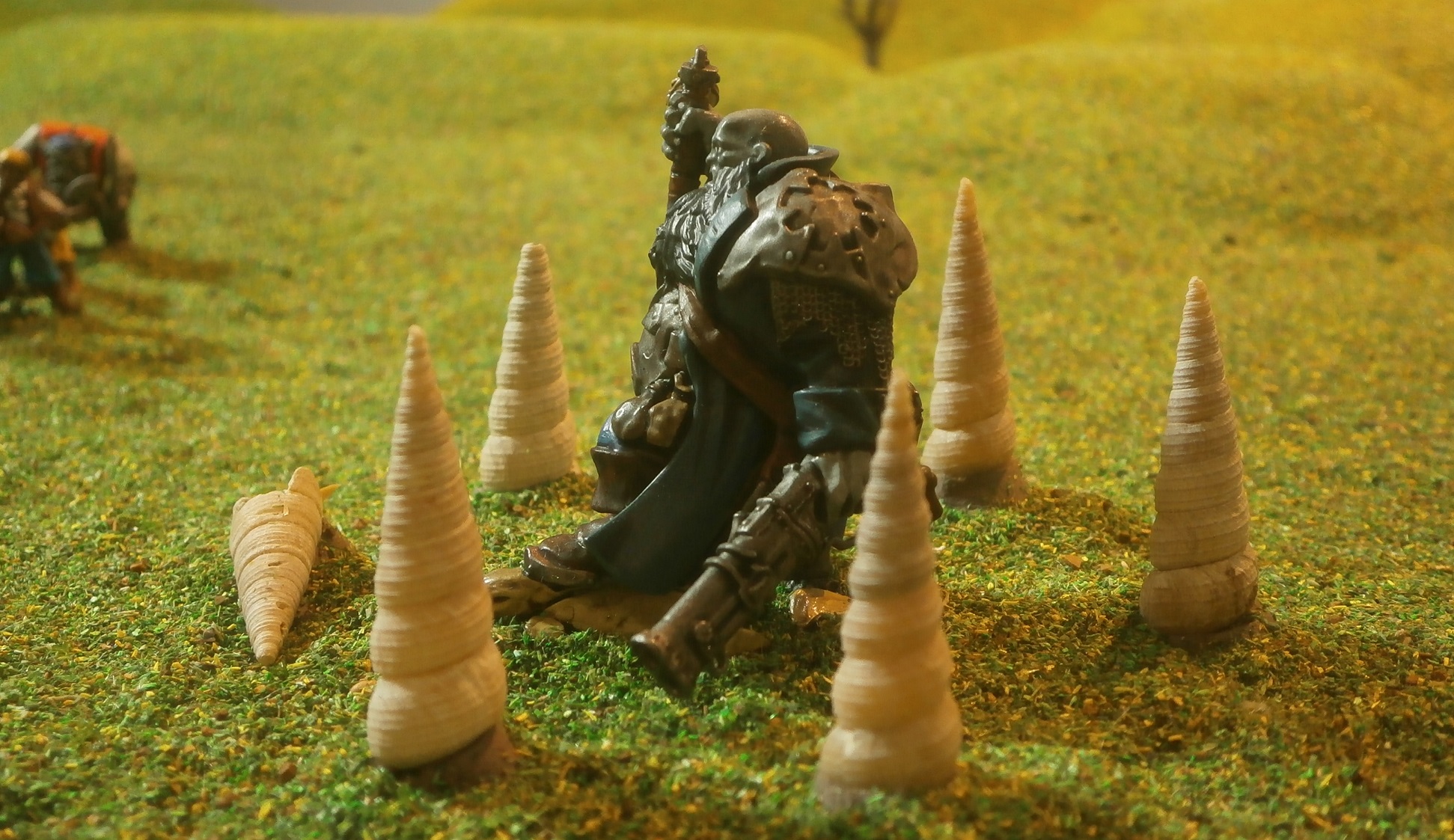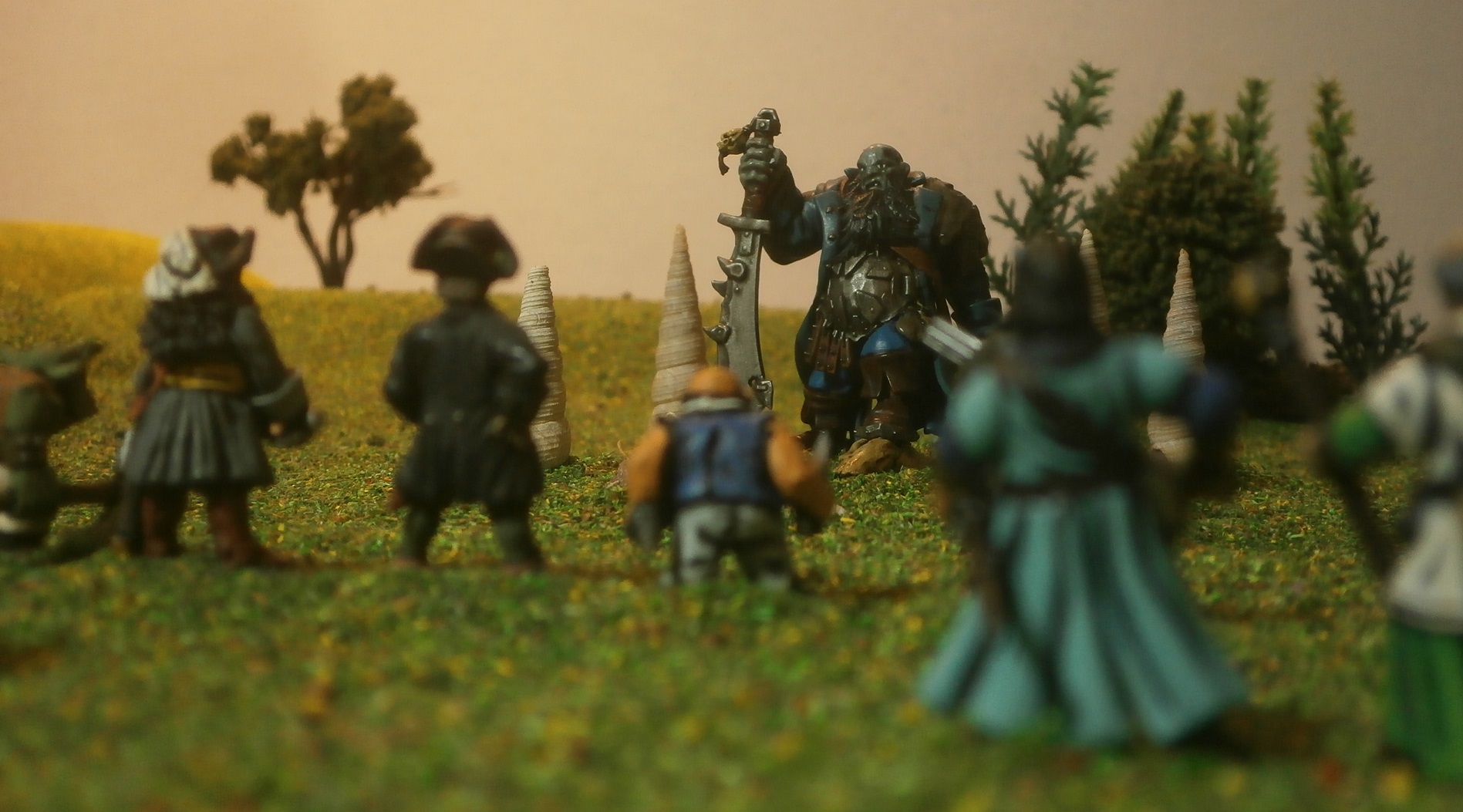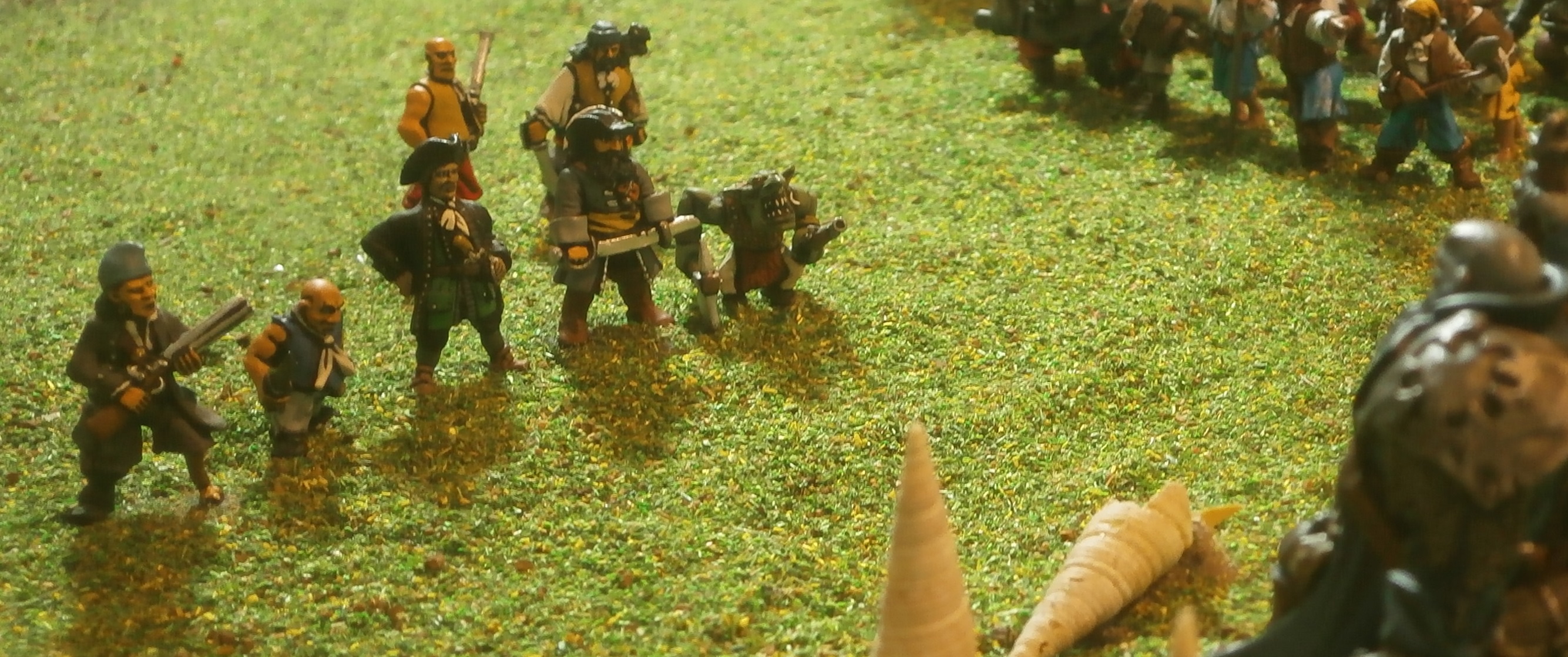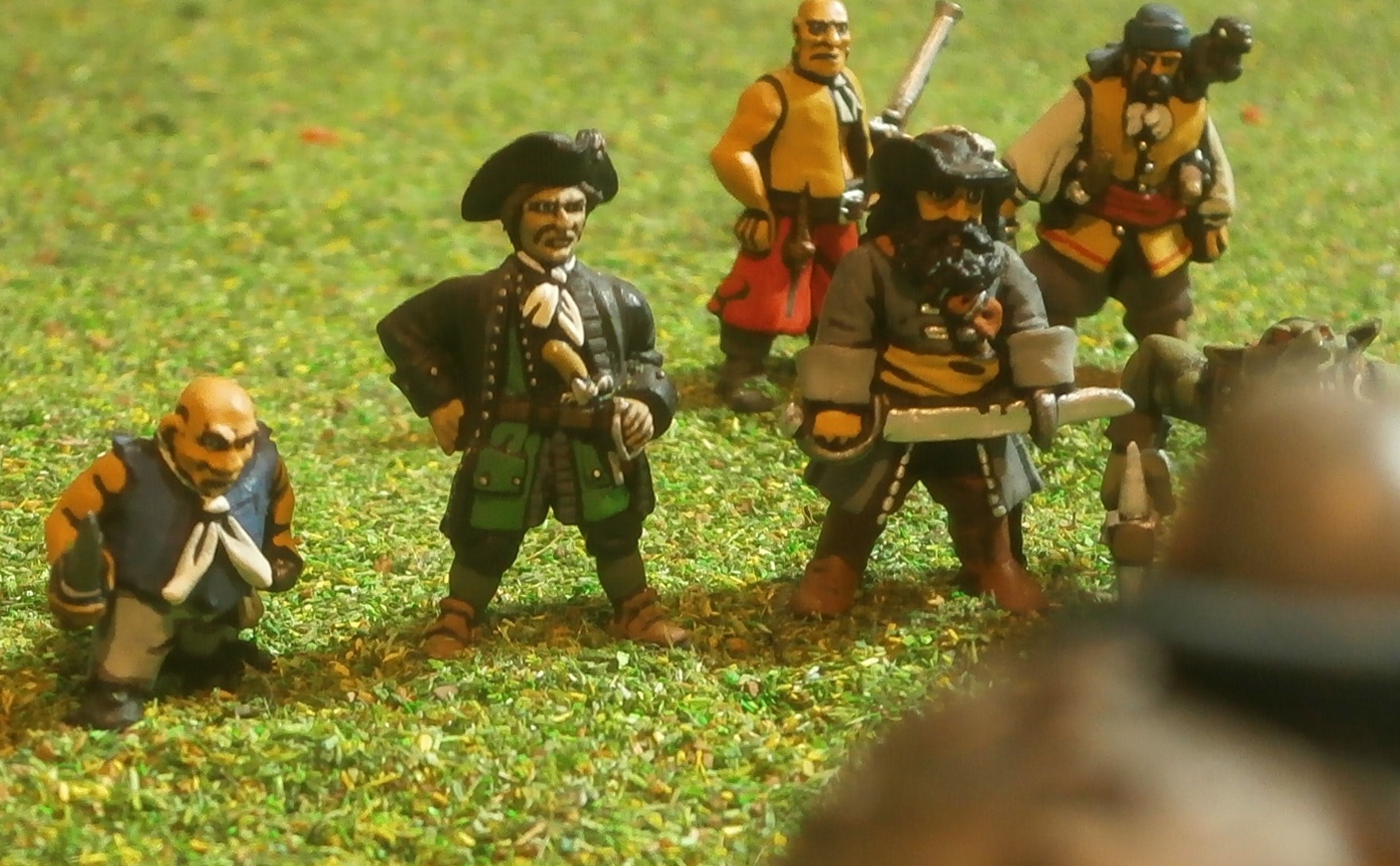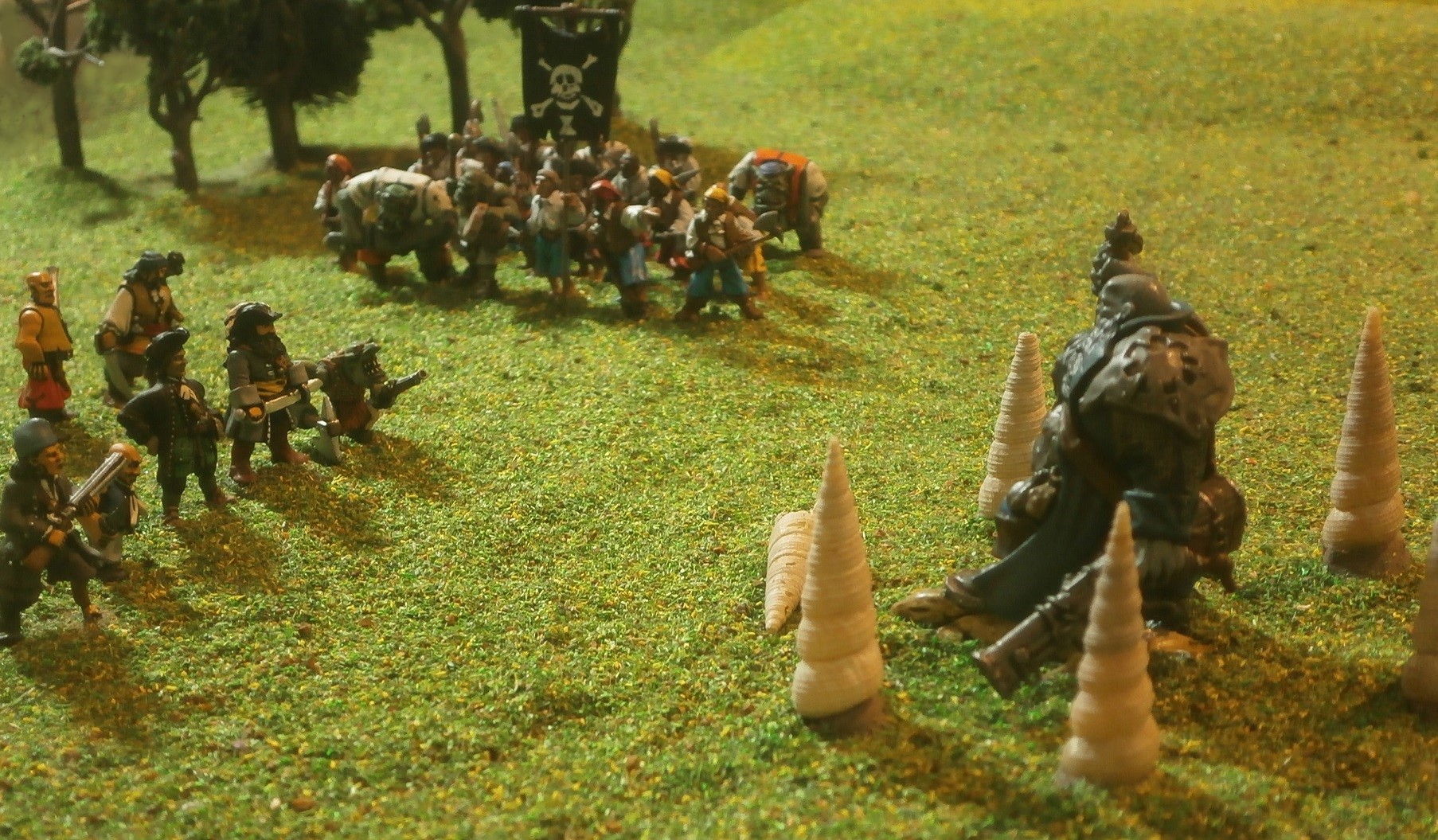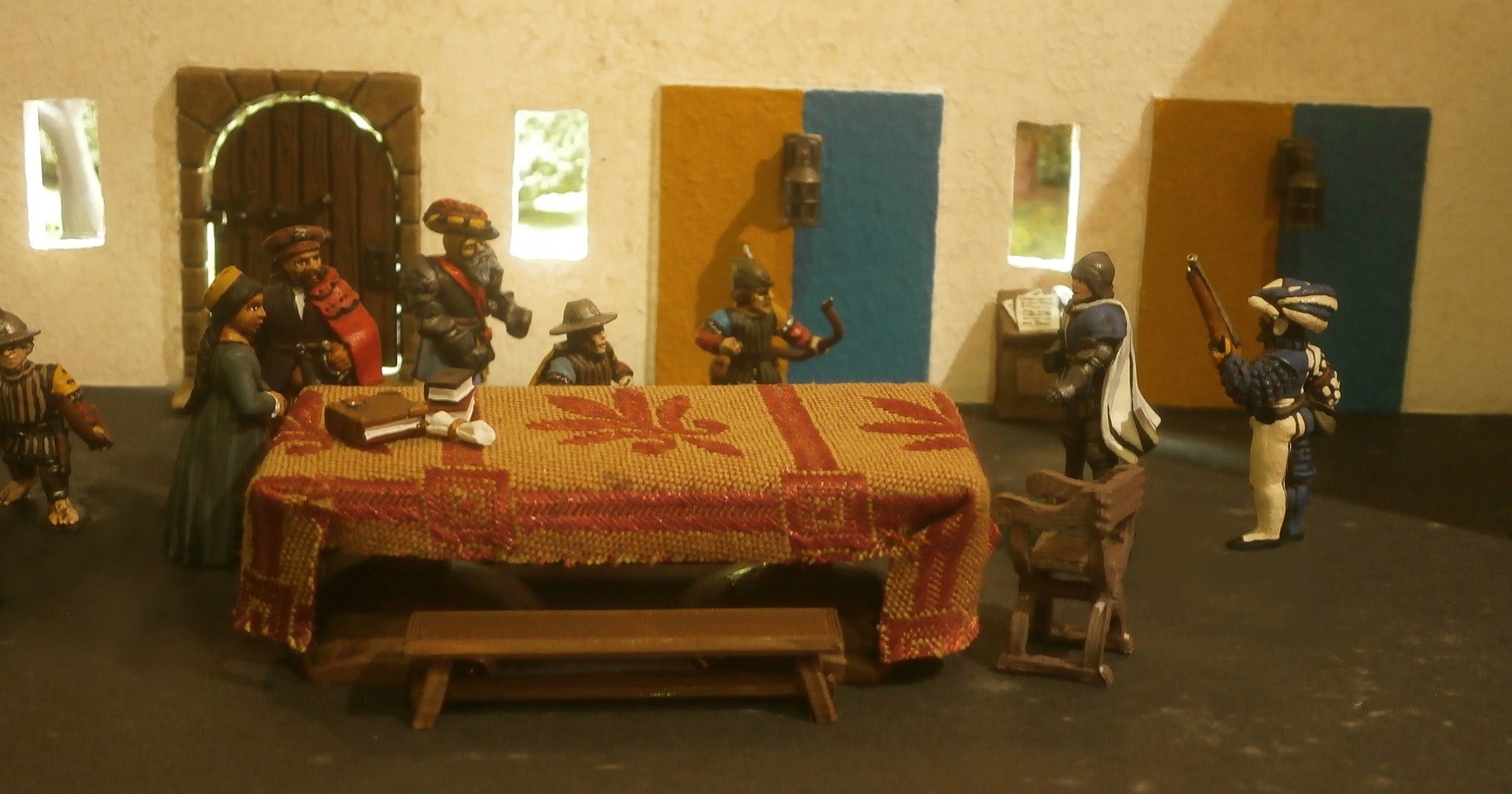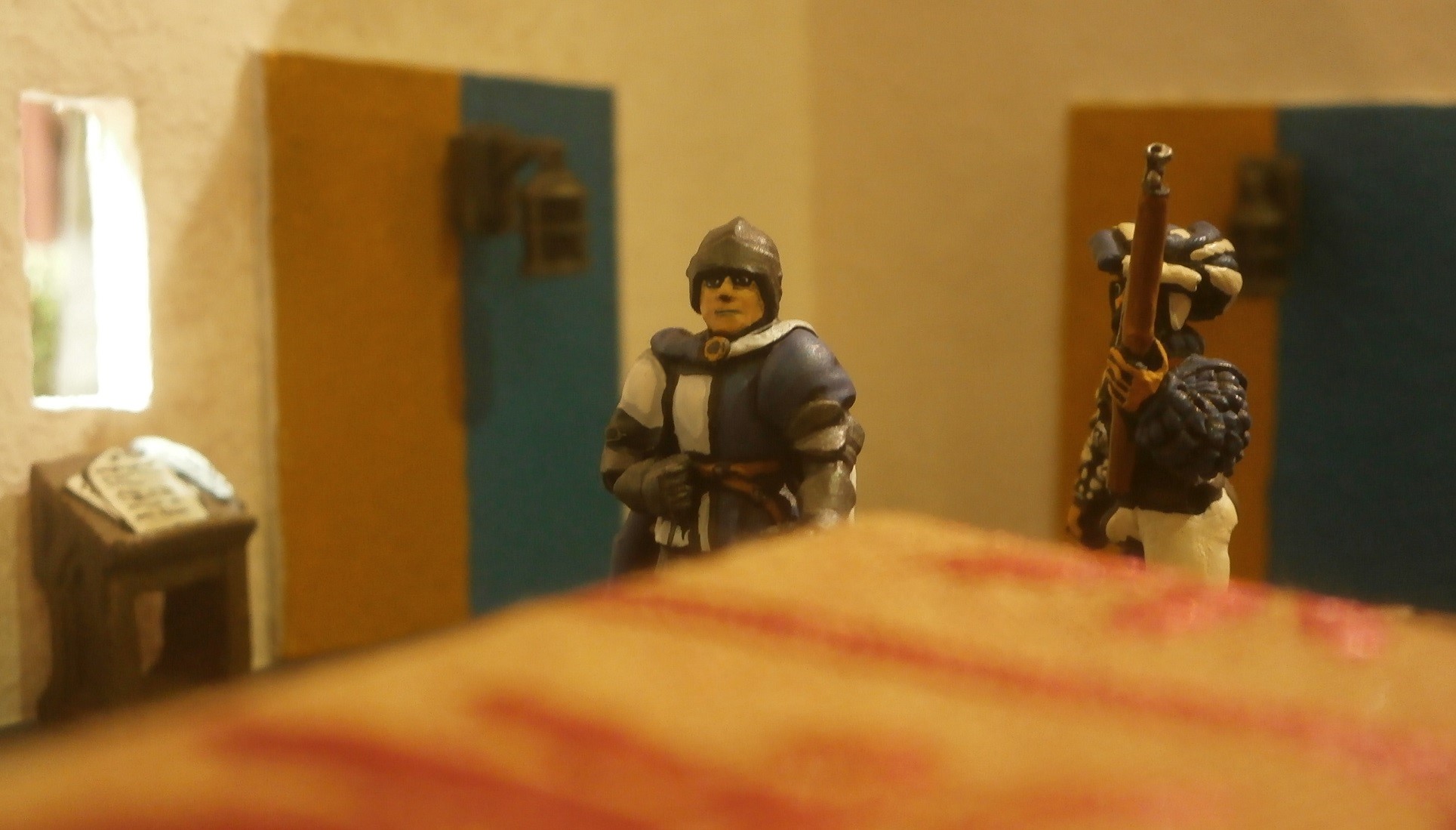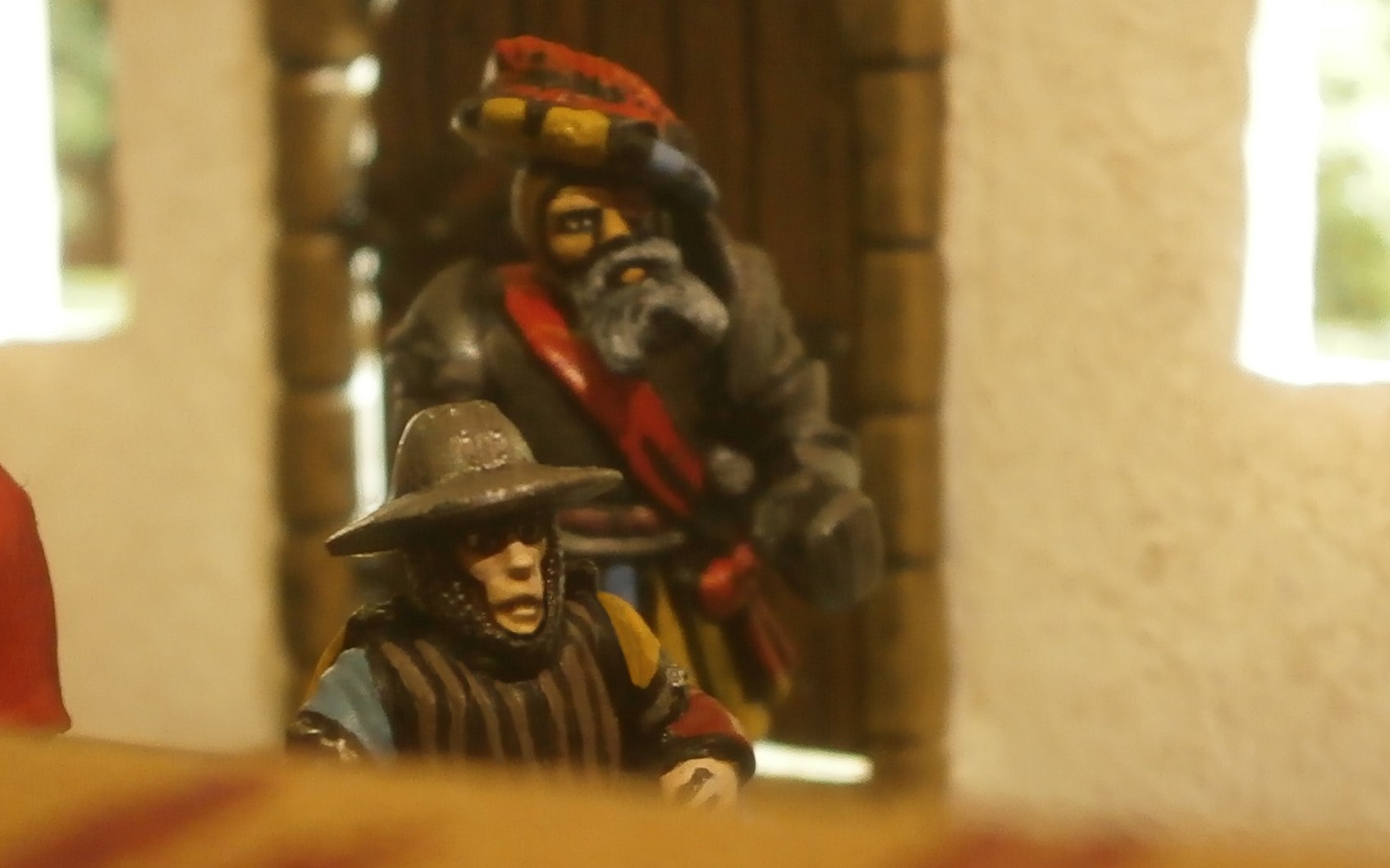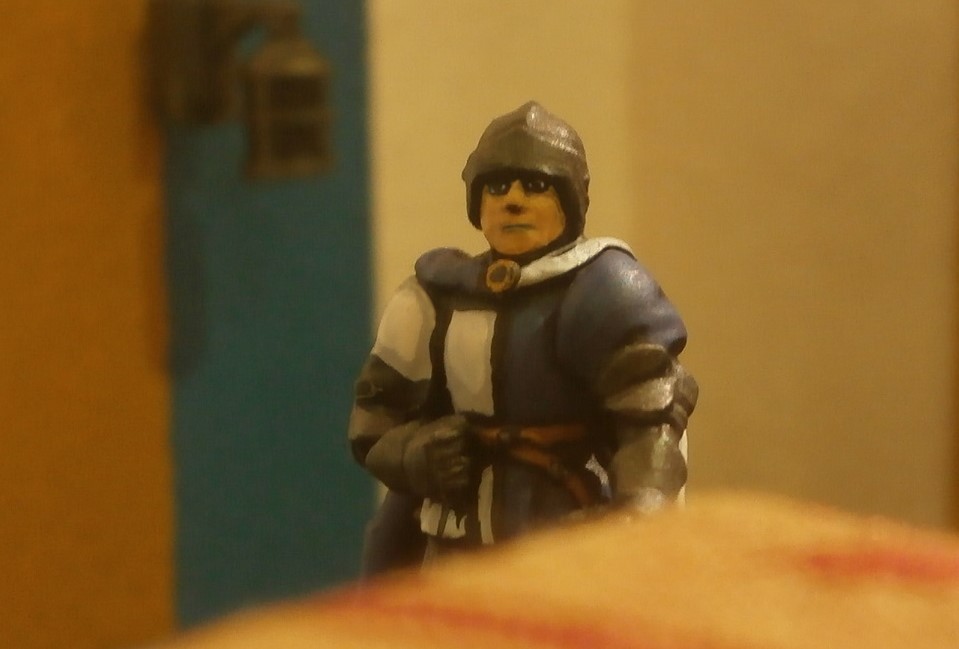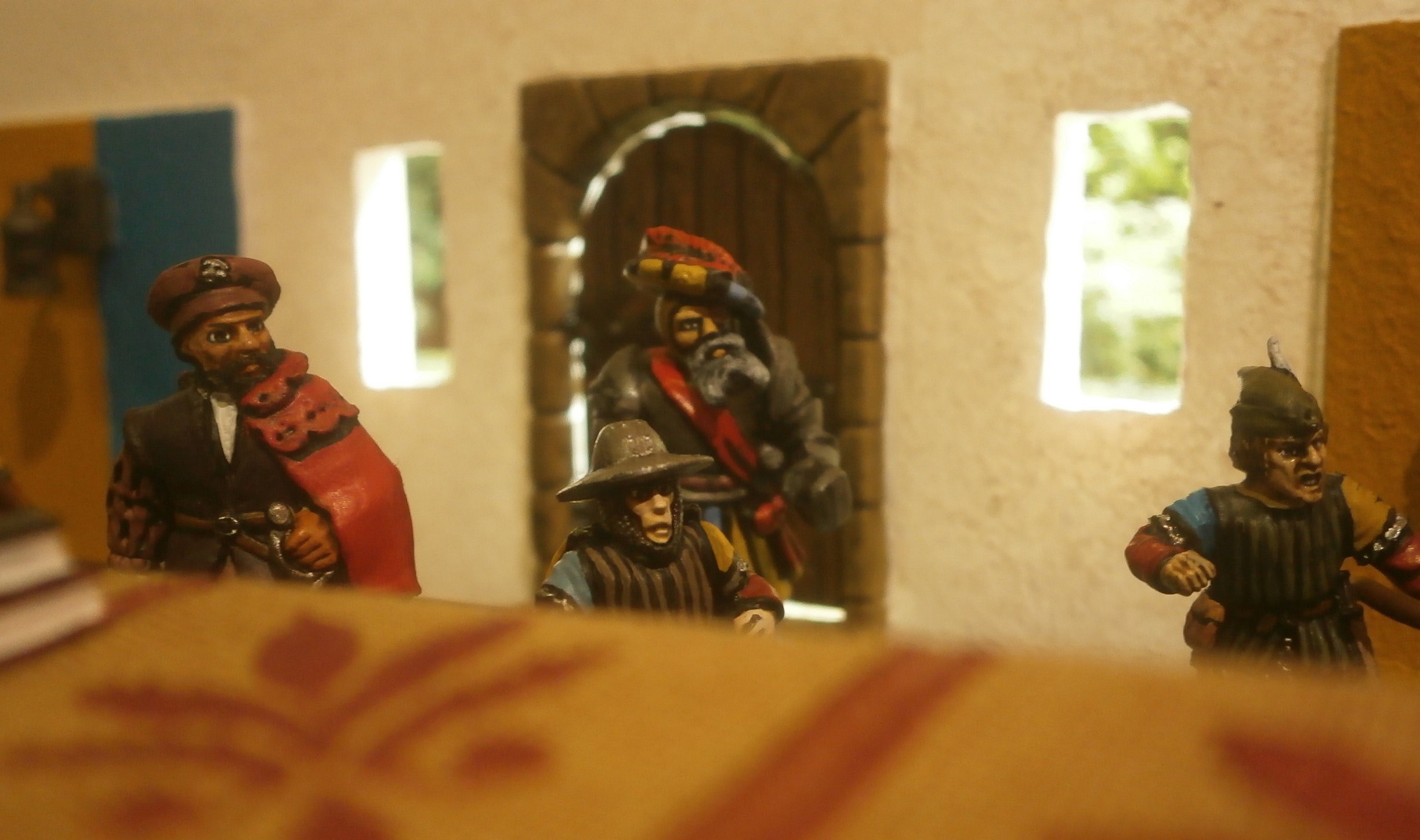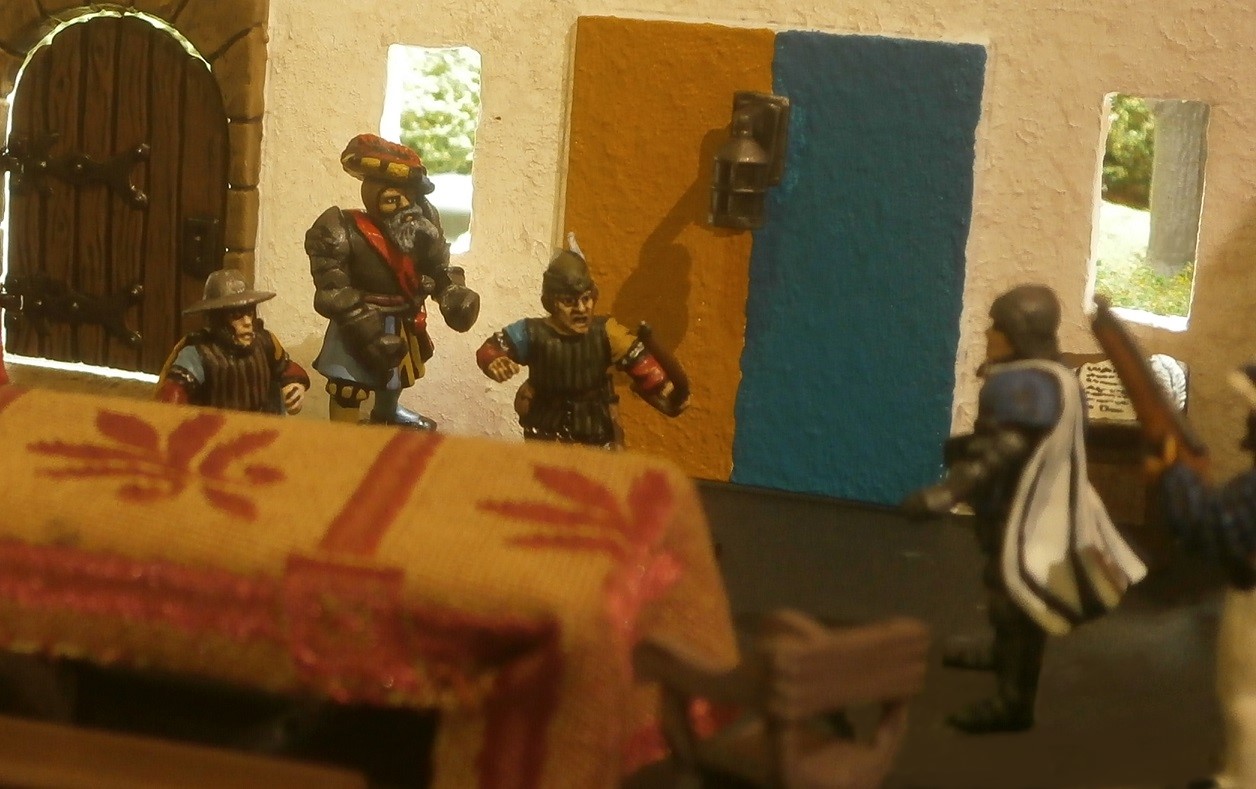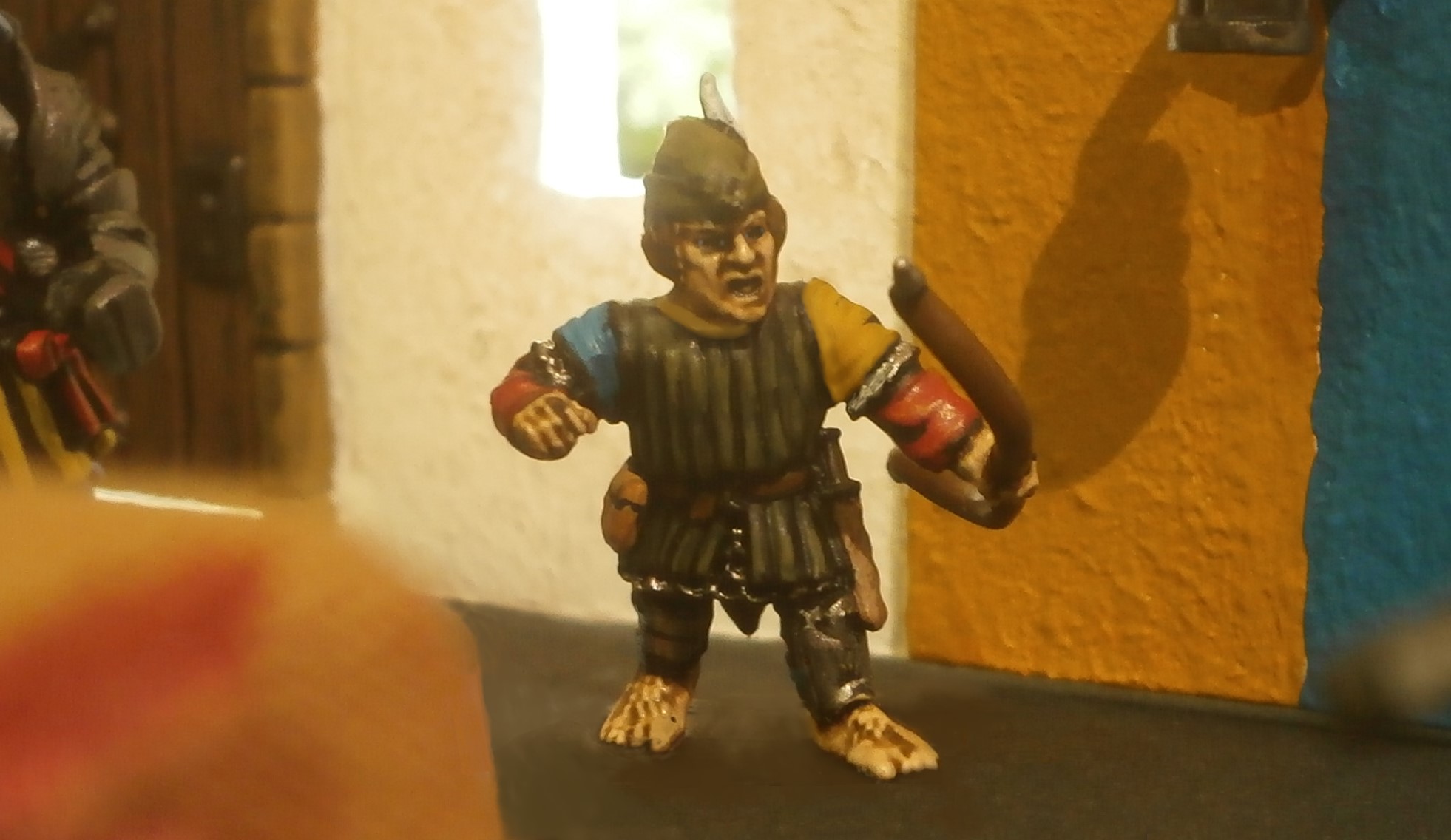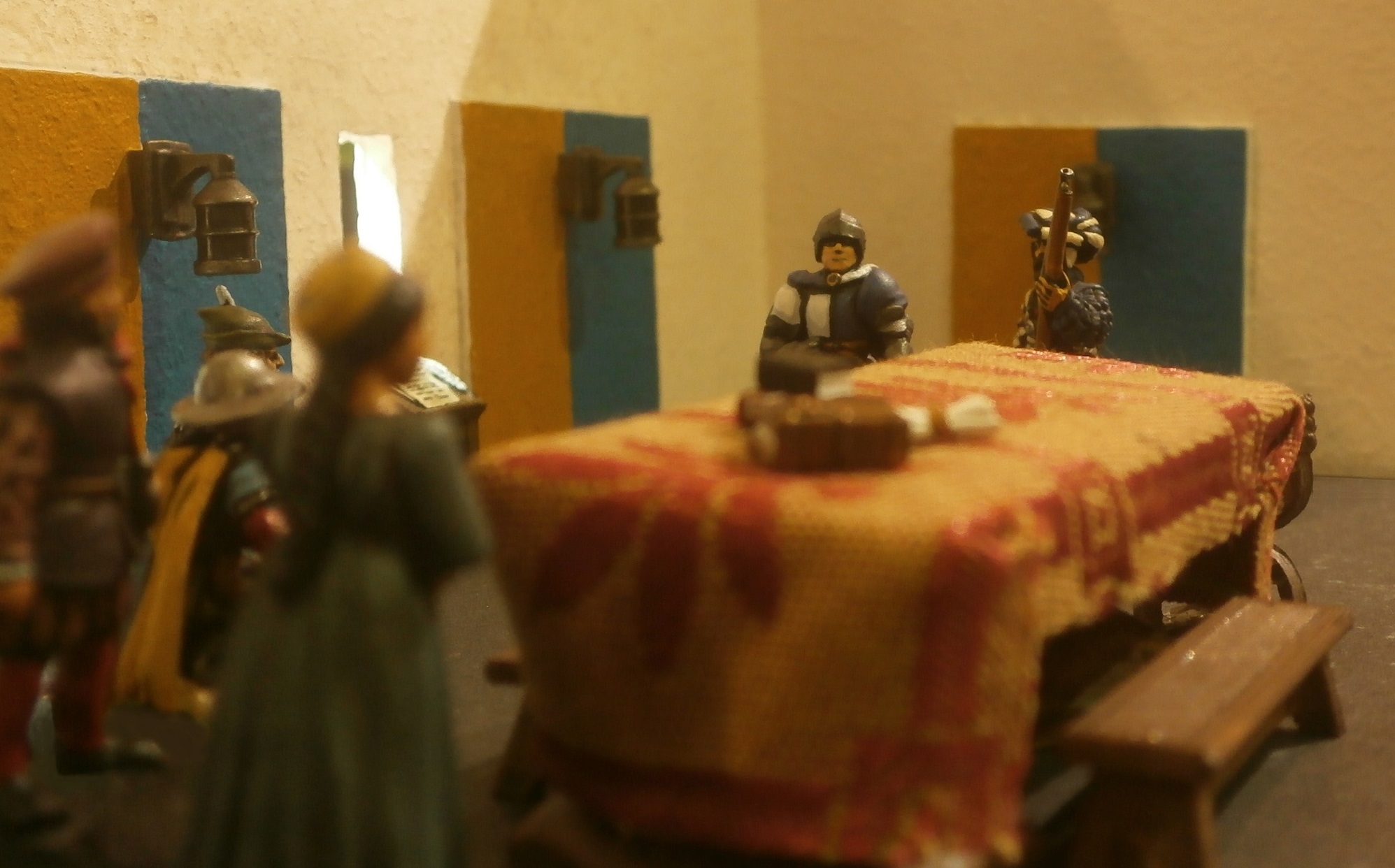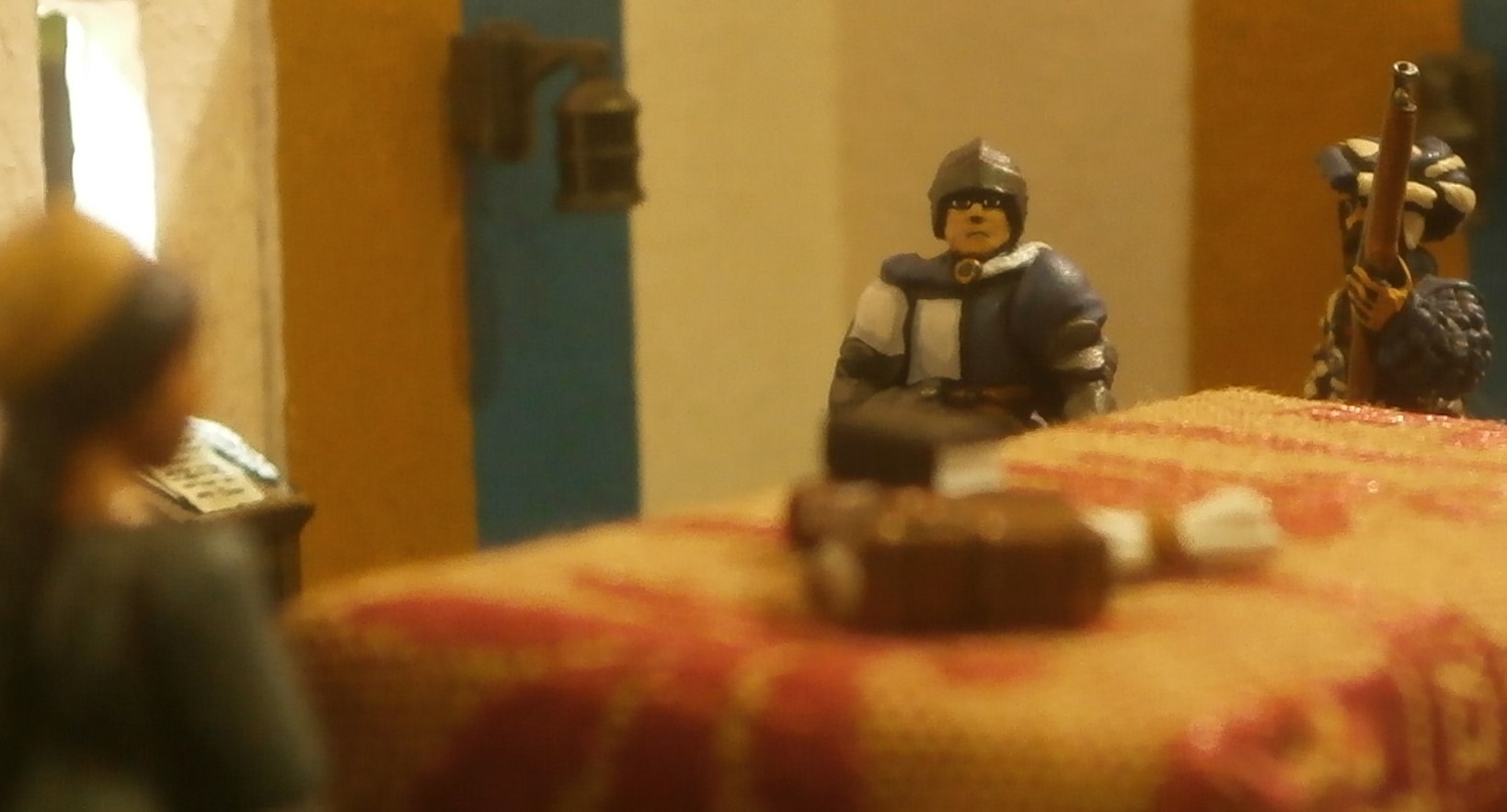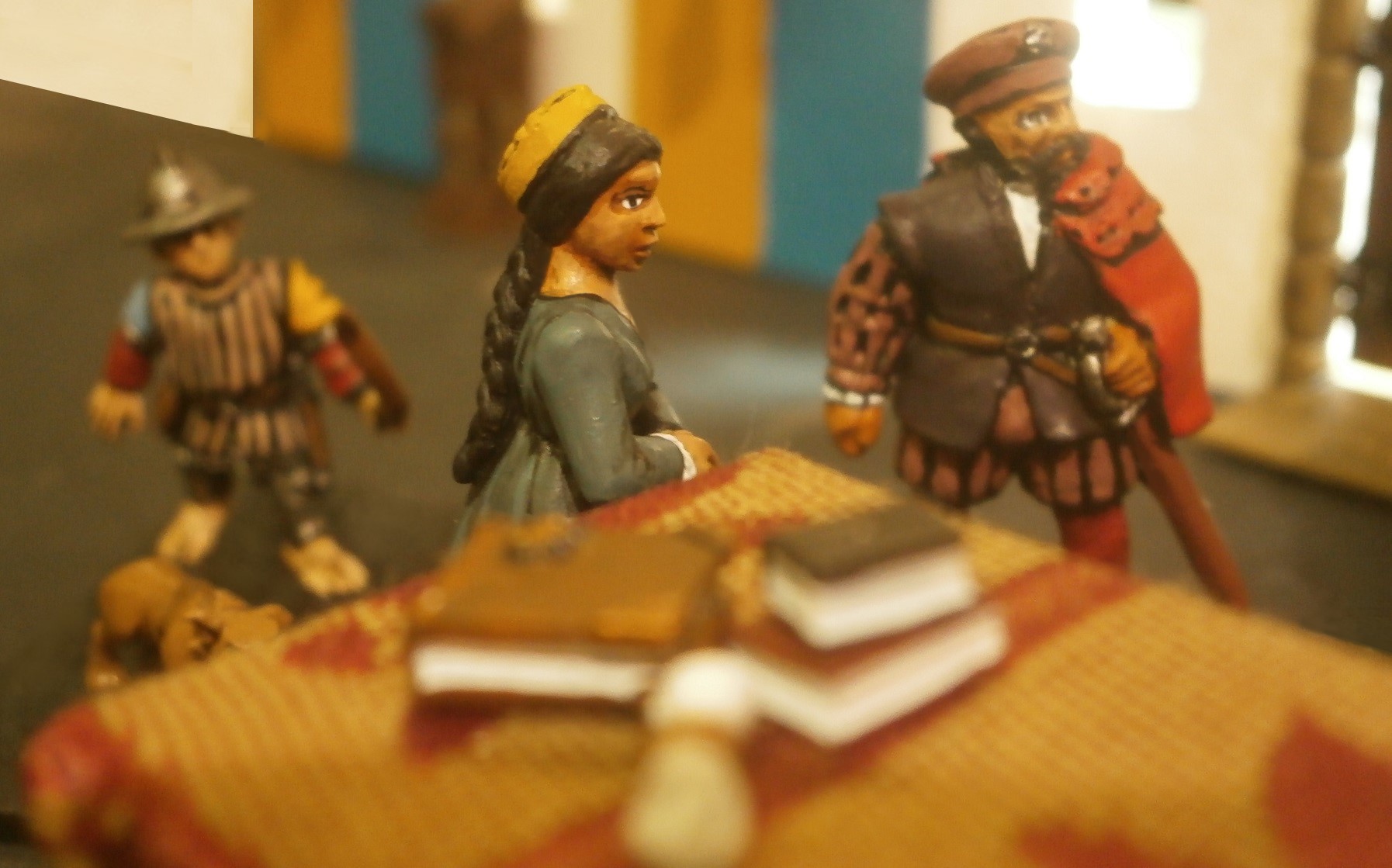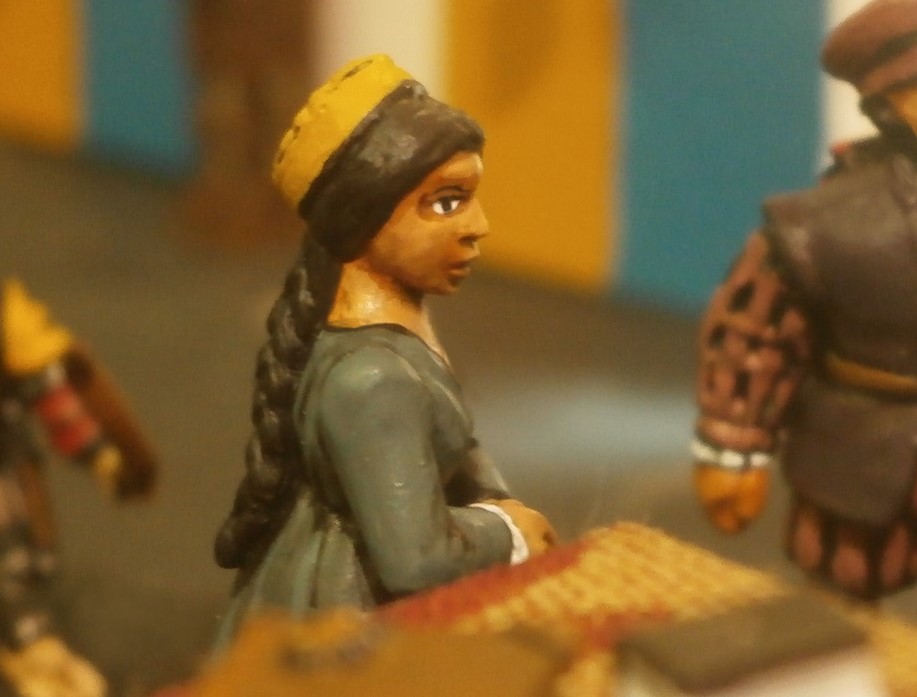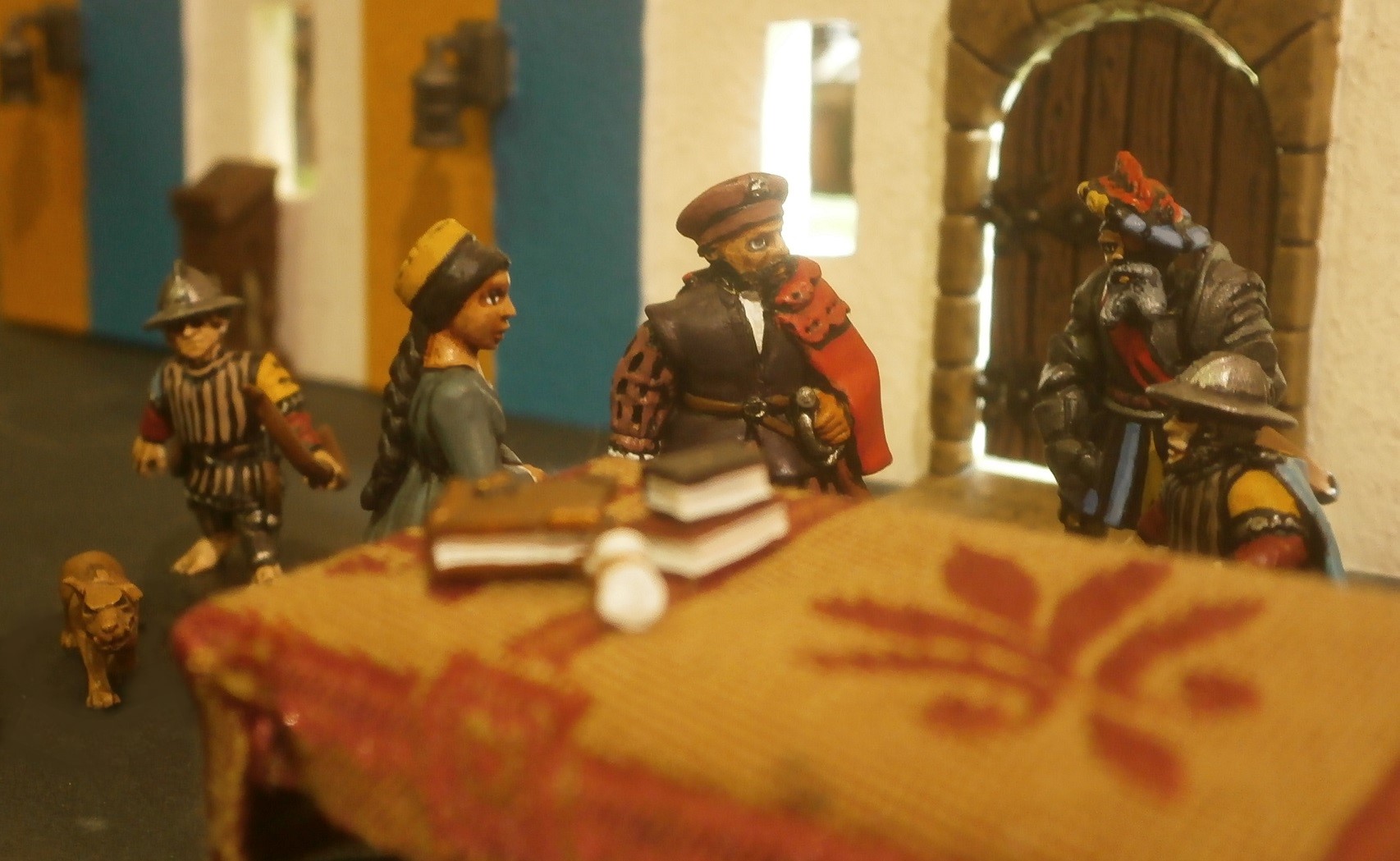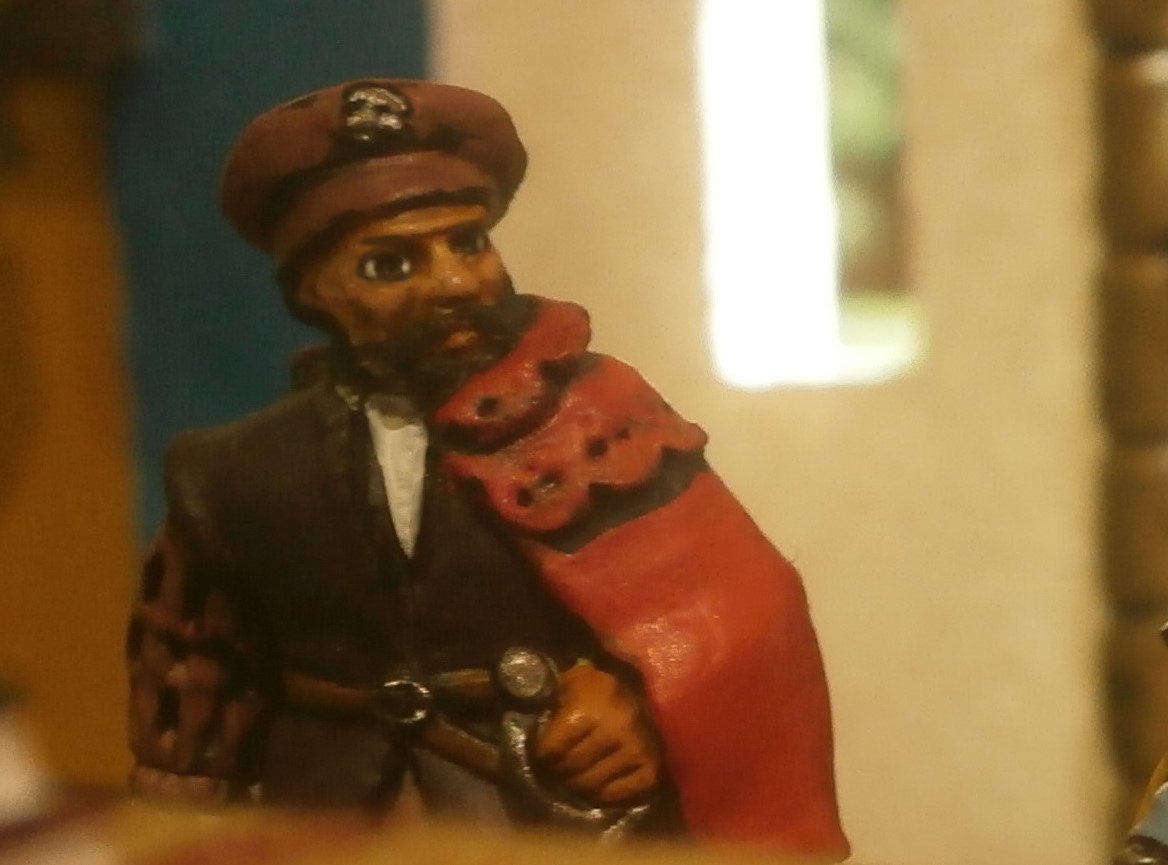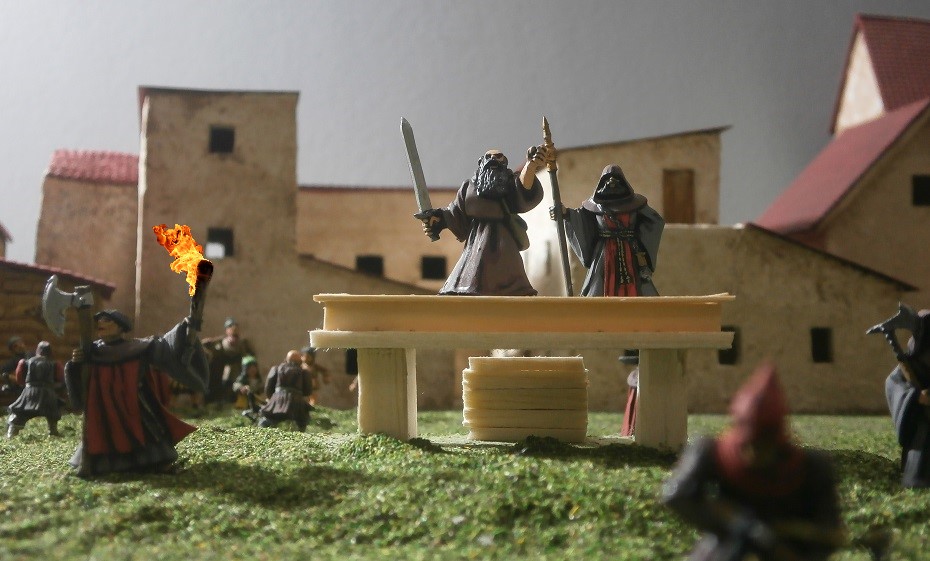And now back to the present day. Dizzying, eh?
...
Eyes and ears, of different kinds
Part One: Somewhere in Tettoverde Forest, Autumn, 2404
The spellsinger, Ascal Arconvale, could see that High Lord Veluthil was dreading the reports, for they might reveal something much worse than that which he already feared.
Was the rat-men army even greater in size than the most bloated of previous estimations? If so, the enemy might be willing to sustain the cruel losses that encroachment into the forest realm would inevitably incur, knowing they could nevertheless retain sufficient strength to gain victory in the final battle. Did the rat-men possess more of their terror weapons? Merely one such engine could fatally poison the very heart of the forest and bring about its complete ruin, transforming the sylvan realm of Tettoverde into a desert. Had the enemy already begun corrupting the forest’s denizens, twisting them into servants of evil? Or were they introducing potent pestilences to moulder the trees and fatally infect the fauna.
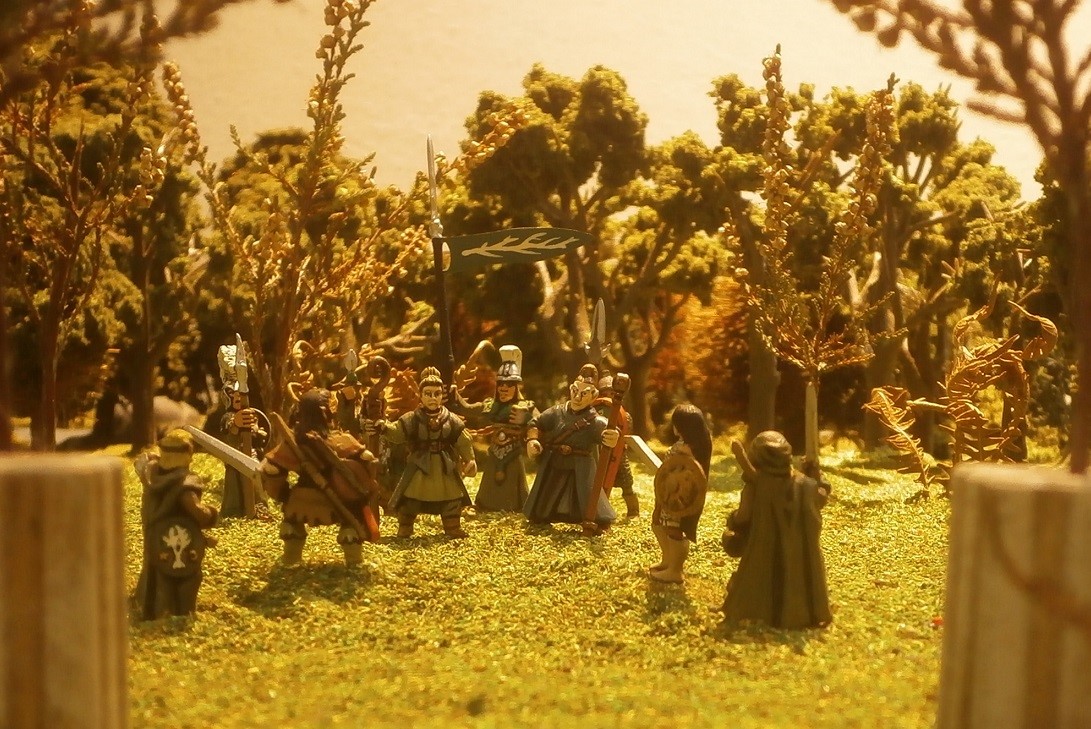
Apart from their novel war-engine, all these things the rat-men had attempted before, in ages past. There was no wickedness they would not stoop to, no danger they would not hazard (at least, when it came to their own servants’ lives). Theirs was a twisted, cunning genius, if grasping and impatient, which lured them down cruel and destructive paths. They loved only their own lives and power, looking upon all other creatures with disdain, even disgust. To them, every
thing was to be consumed or possessed, having worth only in so far as it could benefit their own selfish lusts and ambitious cruelties. There was no destructive novelty so hazardous or dangerous that they would not attempt to harness it fully, going to the extreme, and what they had done near Campogrotta proved they clearly still possessed this predilection.
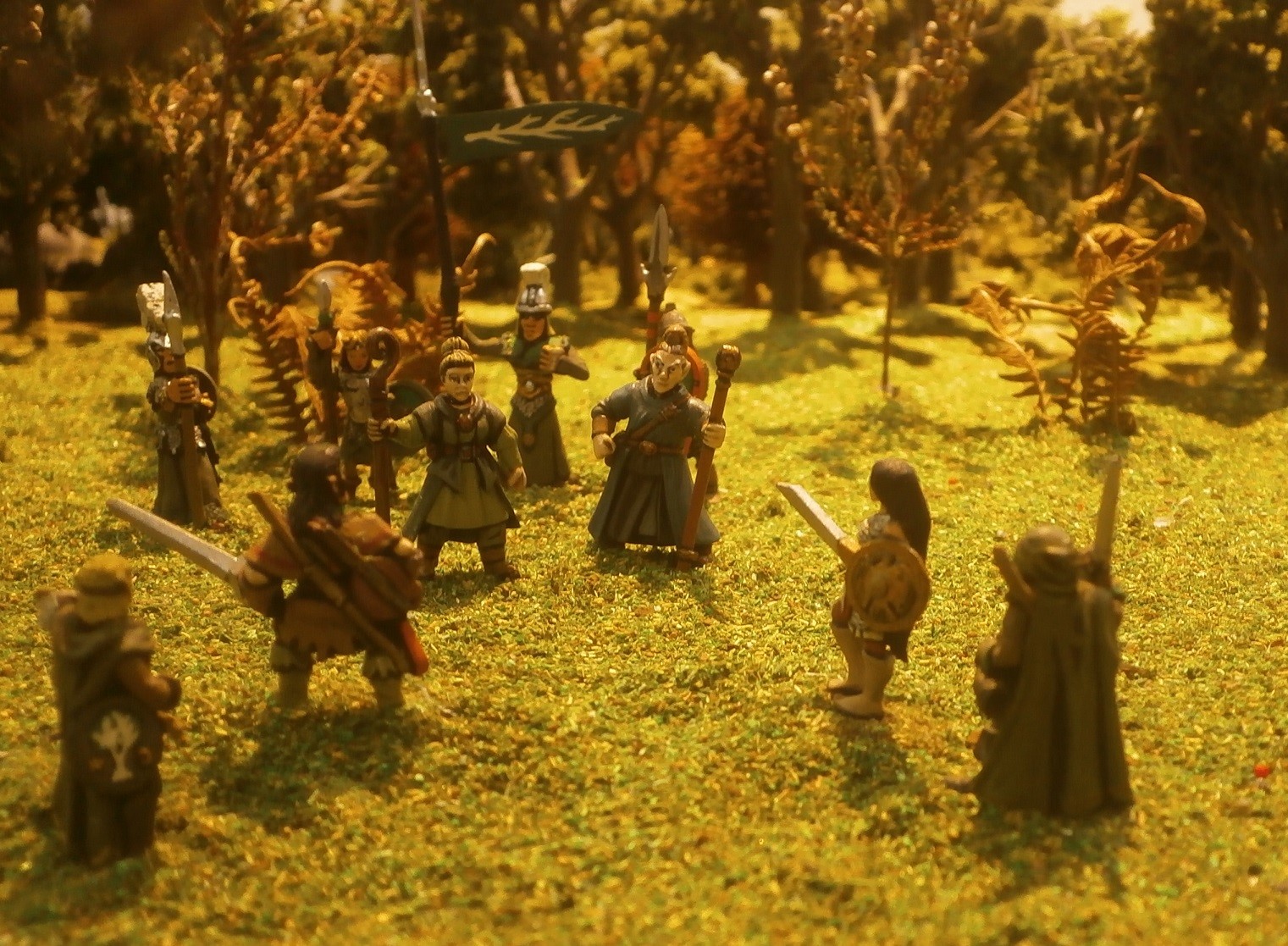
Cioran Brightmoon, commander of the Waywatchers, and Captain Hedre Eedwillow of the River Watch, had come to deliver their reports. Two weeks before, Lord Veluthil sent servants to all sides of the Campogrottan realm: on boats, on foot, on horseback and even flying upon war-hawks. He admitted to Ascal that by doing so the rat-men would surely learn that they were being watched, but he considered it far more important right now to know as much as possible concerning the enemy’s strength, disposition and plans, than to remain hidden. Upon consideration, Ascal thought it was no bad thing that the enemy knew they were being spied upon, intently and from all about, for it might make them think twice about encroaching further into the forest. Despite being thoroughly wicked and as cruel as devils, the rat-men were also craven cowards. When the forest was angered, as it indeed was after the poisoning of its north-western reaches, it took on a terrible countenance and became very dangerous to strangers.
After the formal greetings such an audience required, and upon Lord Veluthil’s instructions that they should both endeavour to be thorough and concise, Captain Hedre delivered her report first.
She had ventured west along the River Ancar to learn that any who may have dwelt there had long since gone, with only a handful of signs of more recent habitation, perhaps little more than campsites where travelers had stayed but one or two nights. Upon approaching the city of Campogrotta, she encountered not just the first ratmen in any real numbers, but also several engines within range of the river, one of which spat an unnatural lightning which boiled the waters wherever it touched into an ill-coloured steam. Knowing it would be suicide to remain, she ordered her vessel rowed away.
Having nothing more to report, it was Cioran’s turn. He had more to say, for he and his waywatchers had crept much closer to the city, some few even going within the walls in the darkest hours of the night, and lingered longer.
“The city swarms with them, my lord, as one might expect of their kind. Counting them is no easy task, indeed quite impossible, for they scurry about incessantly, and from a distance look much alike. But they are army, and nearly all we spied were warriors.
They have placed guards throughout the city…
… at every portal, whether door or gate …
… and at every junction and bridge, with still more guarding the poor souls they have enslaved. We caught only glimpses of their war machines, for they are within the city walls …”
Lord Veluthil raised his hand to silence Cioran, asking, “Within the walls? Are you certain of this?”
“Yes, my lord. They have several large artillery pieces, kept in the city’s squares with guards and attendants a-plenty.” Glancing over at Hedre, he added, “We too saw one upon the walls close to the river.”
Although others would struggle to notice, Ascal could see a hint of relief in Veluthil’s face, and she knew why. If the machines were kept close to the ratmen, in the very heart of the city, then they could not be akin to the terror engine, for that had poisoned the very ground over which it had travelled and destroyed all life in every place it rested. If these engines were within the city, attended by many, then many would be suffering.
And yet, Lord Veluthil was clearly not completely re-assured, for he enquired further.
“Were the enemy in any way suffering weakness or illness, or showing signs of injury?”
“Not that I could see, my lord.”
“And the engines’ attendants and guards – were they like unto the rest of the army? Garbed in the same manner? Or were they masked, and swathed in robes and leather?”
“Some, my lord, had masks, but not all and not many. Others elsewhere were also masked, even away from the engines. It seems to be a fairly common practise among their kind. There were robed warriors patrolling the roads about the city in strength, but they wore no masks.”
Cioran had always been thorough, and Ascal knew he would not be feigning knowledge he did not possess.
“Did you ascertain the enemy’s purpose?” enquired Lord Veluthil. “Are they making preparations to leave?”
“They gave no sign of such preparations, my lord. But they are present in strength, and well-armed.”
“How so?”
“They most commonly carry heavy bladed polearms, somewhat akin to halberds …
… but considering how many also carry shields, these must be employed like spears. They act as any garrison would: eating, sleeping, watching. I myself saw one cooking up some kind of pottage in a great cauldron …
… the stench of which was foul, for despite the boiling in of herbs and weeds the fact that the fleshmeat had turned could not be concealed. I dread to think it, but I doubt it was the flesh of an animal.”
“Beyond the usual activities of garrison soldiers, they have placed strange totems about the city, bearing rags or brass icons, even cymbals, and sometimes a cluttered mess of several such things. The purpose of these I could not ascertain …
… for the ratmen do not seem to pray before them or show any form of respect. They do not muster at them as they might regimental standards, nor use them to mark boundaries of some kind, although such could be possible, I suppose, without being obvious to any but their own kind. They have no cavalry of any sort, but they have some beasts, and the city swarms with rats, some as large as cats or even bigger, flitting around frantically in packs.”
“Have they sent out any scouts?” asked Ascal. “Or foraging parties? And are there any signs at all they intend to march forth at some point?”
“What few venture out do not go far,” answered Cioran. “As for supplies, they appear to have sufficient for their current needs within the city itself. My best guess, giving all that I have seen, is that they are waiting. For whom or what, there is yet no sign.”
“My lord, they suffered casualties when their weapon exploded,” said Ascal. , now addressing Lord Veluthil.
“And likely lost more in the fighting before and after that event, in the taking of the realm. Despite their current strength, they themselves might well consider their army too weak to pursue further conquest, especially if they intend to leave a force behind to hold their newly acquired possession. Considering their past behaviour, their need to swarm against their foes, it seems likely they are awaiting reinforcements.”
Lord Velthuthil nodded gravely. “And when they receive them, what will they do next?” he asked.
Ascal presumed it was a rhetorical question. If the enemy were awaiting reinforcements, that would be bad enough. But should they bring another engine capable of the poisonous destruction of the first, then the situation was dire, and the need for action urgent. Ascal held her tongue, however, for there was little she could offer by way of reassurance. Beyond simply risking everything in an attempt to attack and defeat the foe immediately, when such sacrifice might prove unsuccessful, even unnecessary (if the foe had no intention of advancing into the forest), she could think of no plan of action beyond biding time and hoping for an opportunity.
If the rat-men presently believed themselves to be weak, then considering their historic spinelessness when faced with real challenges, perhaps the elves’ best course of action was to attack as soon as possible? But fighting outside of the forest would put Lord Veluthil’s army at a great disadvantage, especially assaulting a walled city. On the other hand, waiting for the rat-men to enter the shadow of the trees might prove too late to defeat them, especially if they had more
terror weapons.
Ifs and buts a-plenty, thought Ascal. Such was ever the way of war. She was glad Lord Veluthil bore the burden. She had only to obey.
Caught up in these rather unpleasant thoughts, Ascal had not heard Cioran’s last words – a fault she sought to rectify immediately.
“We did find the tunnel’s mouth, which they must have used to approach the city from the south,” he was saying. “Large enough for engines, and presently abandoned. It looked to have been recently made, though within a hundred yards or so was what appeared to be a more ancient passageway, passing deep into the ground, in complete darkness. I considered exploring further, but already several of our number had become too sick to journey onwards – an affliction which began when we crossed the river on the salvaged vessels. The air within the tunnel seemed to exacerbate their illness. So we left and returned to the forest proper. I ordered the sick remain in the vale of Corcalen, there to be tended, while I came to you my lord.”
Again, Lord Veluthil nodded, and the company fell silent. At last, he spoke,
“There is much to consider, and to weigh. I will listen to what the warhawk riders have to say before I decide our next moves. In the meantime, consider the matter yourselves, for I may ask for further counsel.”
…
Part Two: Somewhere in Campogrotta, Autumn, 2404
Farrgrin was not exactly happy this task had fallen to him, despite knowing that if he was now considered worthy enough to speak directly to Seer-Lord Urlak Ashoscrochor then his own status had surely improved. His only previous encounters with Lord Urlak had been when handing missives to clerks, when he had simply been in the Grey Seer’s vicinity, not expected to speak at all, and certainly not to Lord Urlak. He was more nervous now than he had been when out with the scout-spies, knowing the enemy was both near and watching.
His heart was racing, his throat dry, even his vision had blurred. He shook his head, as if to rid it of the fog. As his surroundings refocused, he realised Lord Urlak was staring right at him!
“Well, speak-explain. What have you learned?” demanded Lord Urlak.
Despite how obvious it was, it still took Farrgrin a moment to understand it was he himself who was being addressed.
“Elves, Lord and Master, great and noble. By … by which I mean to speak-say, not that the elves are great and noble, but you, mighty lord, great and …”
“Cease and stop your blather-babble. Answer quick and to the point. You have but one-single chance, here and now, to satisfy me, or I shall find someone who can and will, and you shall learn quick and painful what it means to disappoint me.”
Farrgrin sensed an increased malice in the yellow clad warriors of Urlak’s bodyguard regiment. They lurched almost imperceptibly forwards, their clawed hands gripping their weapons’ hilts and shafts a little tighter.
“We have seen-spied elves. Sk … skulk-hiding in the green leaves. Watching, spying.”
“And counting, no doubt. I myself know of the sky hawks, yes, for I saw-spied them with mine own eyes over the city. But you saw more. Where and what?”
“At the edge of the green-trees, near-close to the bridge at Tarano. Not many but a few, with spears and bows and green-cloth cloaks.”
“On the far side of the river-water?” enquired Lord Urlak.
“Great and noble lord, no, no. On this-here side, where the forest-trees grow between the west-road and the river.”
“Then you were able to capture-catch them, yes? With the river behind to prevent their escape-flight.”
“We would and could, high and mighty master, if the trees had not been so thick-close, and the elf-things so slippery-quick, and had there been more than four of us. The trees there, they are no copse-grove, but many and more, for the forest itself crosses the water, then on to a width of nearly a mile and more than a league long.”
“A satisfyingly long list of excuses, I am certain sure, and all delaying your answer. You did not catch them?”
Farrgrin dreaded answering, for there was a hint of criticism and disappointment in Lord Urlak’s tone, and it did not do to upset one’s master. But as they had no elves to offer up, he could only speak truthfully.
“No, no, your high and mightiness.”
He was surprised when Lord Urlak’s next words were neither threatening nor cruel, yet a part of him knew it would have been foolish to expect such. Lord Urlak was wise and therefore had the measure of his servants. Only a fool would expect so few to catch fleet-footed elves in their own forest.
“Tell me, did they cross the river-water by the bridge?”
“No, great lord. We questioned the guard-soldiers there. Only our warriors have crossed - nothing and no-one else, neither way and for many a day.”
“Then they can cross the waters some other way,” mused the grey seer. “The forest, you said - a mile by a league? Large, and big enough to hide an army?”
“Such a thing could stand within, but I assure and promise you, your mighty highness, there was no army there.”
“Yes, yes. But if they wanted-chose, they could hide one there. Perhaps the trees ought to be burn-destroyed, so that none remain north of the river, leaving nowhere for them to creep and hide.”
No-one answered, as they knew Lord Urlak was merely thinking aloud, and would only have been annoyed by someone speaking.
He turned to look at the claw leader also present.
“And you, and your scouts, whither-where did you go?”
“Great lord, we crossed the bridge, south and south-east, to the very edge of the poisoned land. There we scour-searched, along each and every path, old and new, looking for signs of passage, and enemy-foes.
“And you found such?”
“We saw horse-riders, a dozen or so, who fled-escaped upon seeing us.”
“How many were you?” asked Lord Urlak, a hint of mockery in his tone.
“Six and me, all ready, all keen.”
“And you think and believe the riders fled because they were afeared of you? Yes?”
The claw-leader’s eye twitched, and his tail flicked involuntary. His lips curled in fear to reveal all his teeth as he spoke.
“I would never and not claim such a thing, great and mighty mightiness, only that they rode fast and passed. Away and not towards. They loosed no arrows; threw no spears.”
“They rode where they wanted to ride, simply spying you as they did so.”
“Yes, noble lord, yes. Too far away and too quick for us reach them.”
Lord Urlak shushed the claw-leader with a gesture of his finger.
“Riding errands, hither and thither. Carrying messages and dispatching spies to creep and sneak. There’s an army somewhere, I am certain-sure. But will they emerge from the forest’s-shadow? Have they come to assault-attack, or just to watch and wait?”


